Supporting Organisations

APSA China





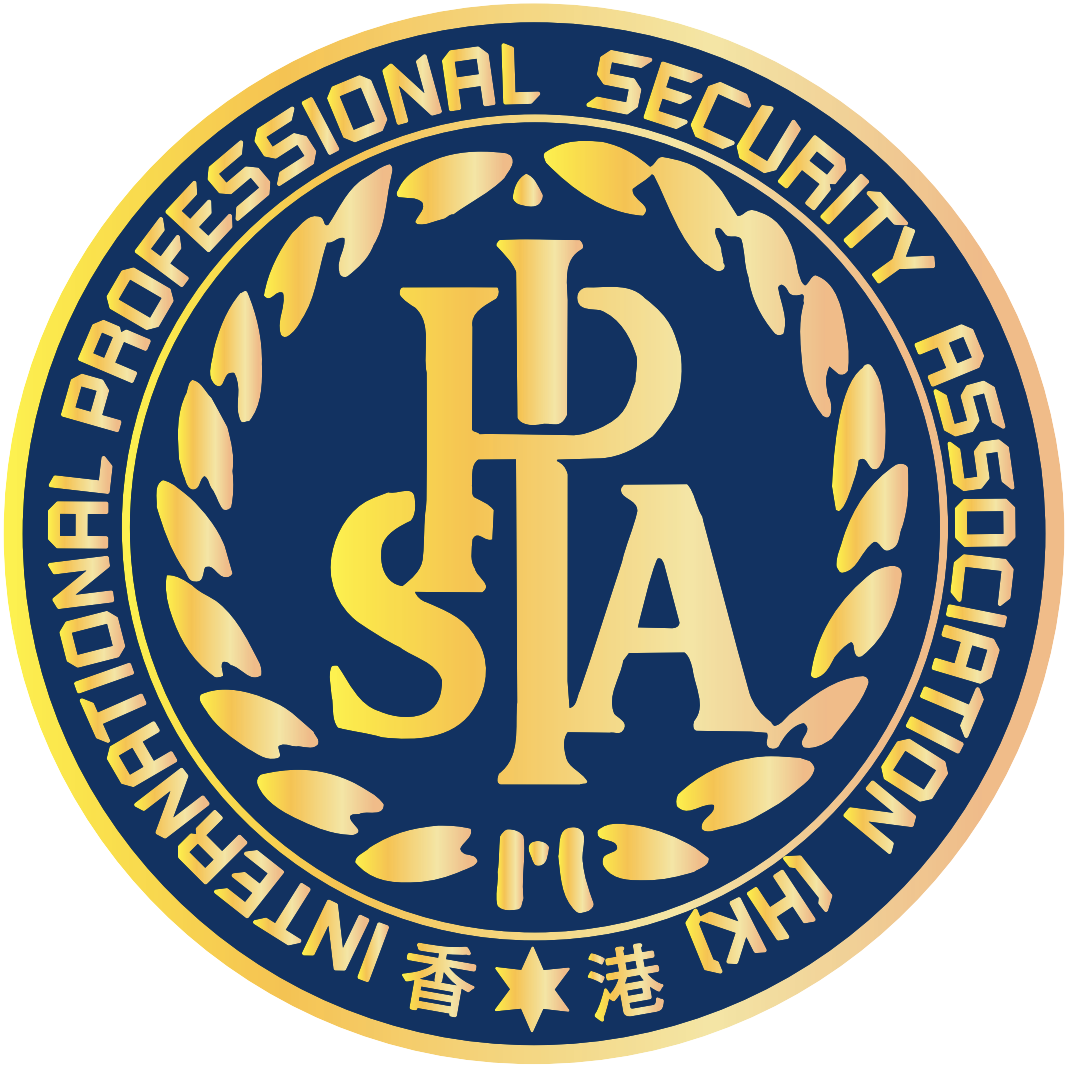

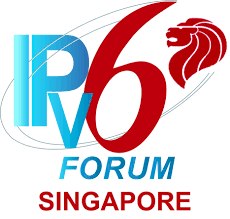




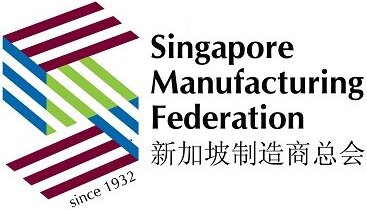
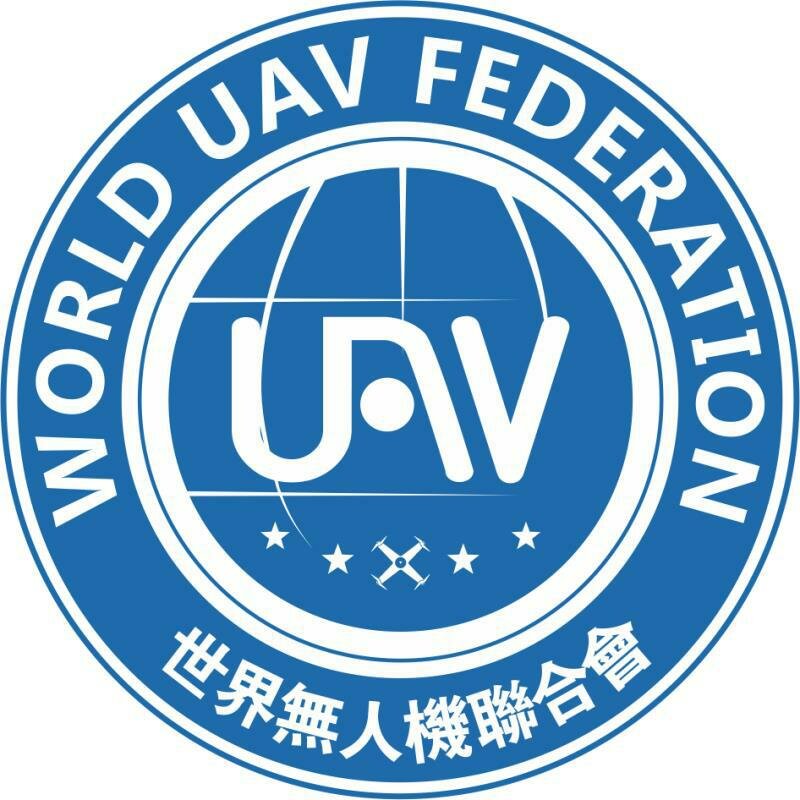
















EC-Council Group
International Council of E-Commerce Consultants, also known as EC-Council, one of the world’s largest cybersecurity technical certification body. ECC operates in 145 countries globally and is the owner and developer of the world-famous Certified Ethical Hacker (CEH), Computer Hacking Forensics Investigator (C|HFI), Certified Security Analyst (ECSA), License Penetration Testing (Practical) programs, among others. We are proud to have trained and certified over 220,000 information security professionals globally that have influenced the cybersecurity mindset of countless organizations worldwide.

Haptic
HAPTIC R&D CONSULTING is a consulting of global technology and engineering company providing innovative tech solutions and commercializes them.
On HAPTIC.ro platform you’ll find the most updated Market Research Reports and Products from various industries.
Tech news and Events/Expo/Conferences updates.
For more info please visit our website www.haptic.ro or contact us: [email protected]

MediaBUZZ
As the first ‘pure’ digital publisher in Asia Pacific, MediaBUZZ covers the digital age in the region since 2004. Its publication Asian eMarketing has been designed to empower marketers in the vibrant, ever-changing digital marketing environment. Circulated weekly to more than 60,000 top management and marketing decision-makers, the useful and informative articles support e-marketers in finding a sound marketing strategy and thriving business success. Visit http://www.mediabuzz.com.sg
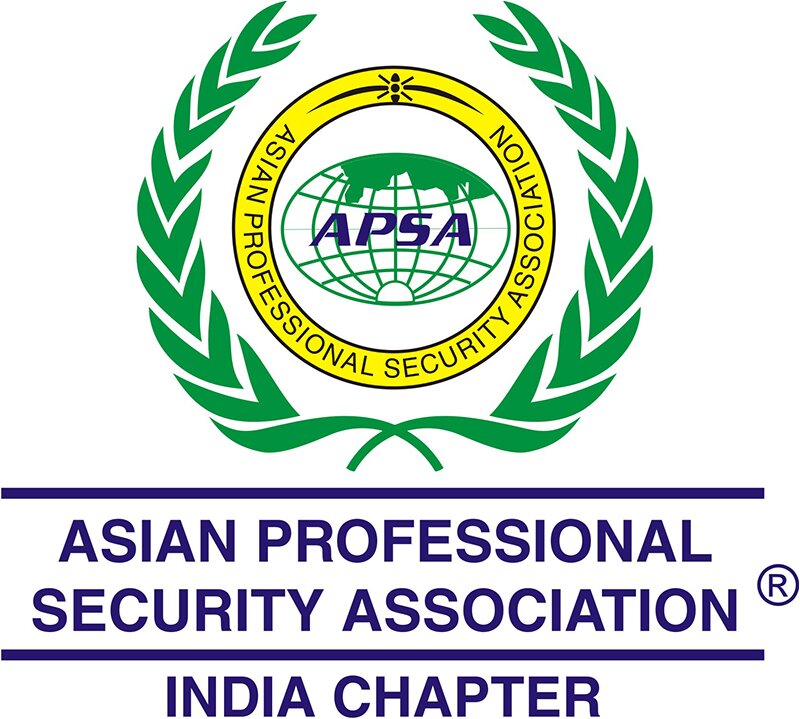
Asian Professional Security Association (APSA)
The Asian Professional Security Association (APSA) is the leading professional association of security practitioners in the Asian region and in India. APSA represents Professionals, Companies and Organizations involved in consulting and providing products and services pertaining to all sectors of the protection industry. APSA is dedicated to increasing the effectiveness and productivity of security practices by developing educational programs and materials that address broad security concerns. It Provides to its Corporate, Individual members and the business community at large with complete access to full range of programs and materials, APSA leads the way for advanced and improved security performance for products and services and works closely with the Government and Chambers of Commerce to ensure that the views and concerns of its members.

CIISCM
CIISCM focuses on providing Security Professionals recognition through membership designations and accreditation of elite Security Training Programs. Convergence of Head of Security at Roundtable Forums, Conferences, Seminars and Networking Sessions encouraging new wave leadership Exchange are the focal points of the institute.
As an independent organization, the Institute provides unbiased accreditation for training courses across the globe. The Institute is also dedicated to promoting the role of security and crisis professionals, and as such will continue to advocate for our members through lobbying efforts with governments, industry bodies and human resource professionals to improve recognition of our members’ services and qualities.
This synergized platform has outreach strength of well over 7000 security professionals worldwide to indulge, partake, discuss debate and expound on current risk issues and challenges.
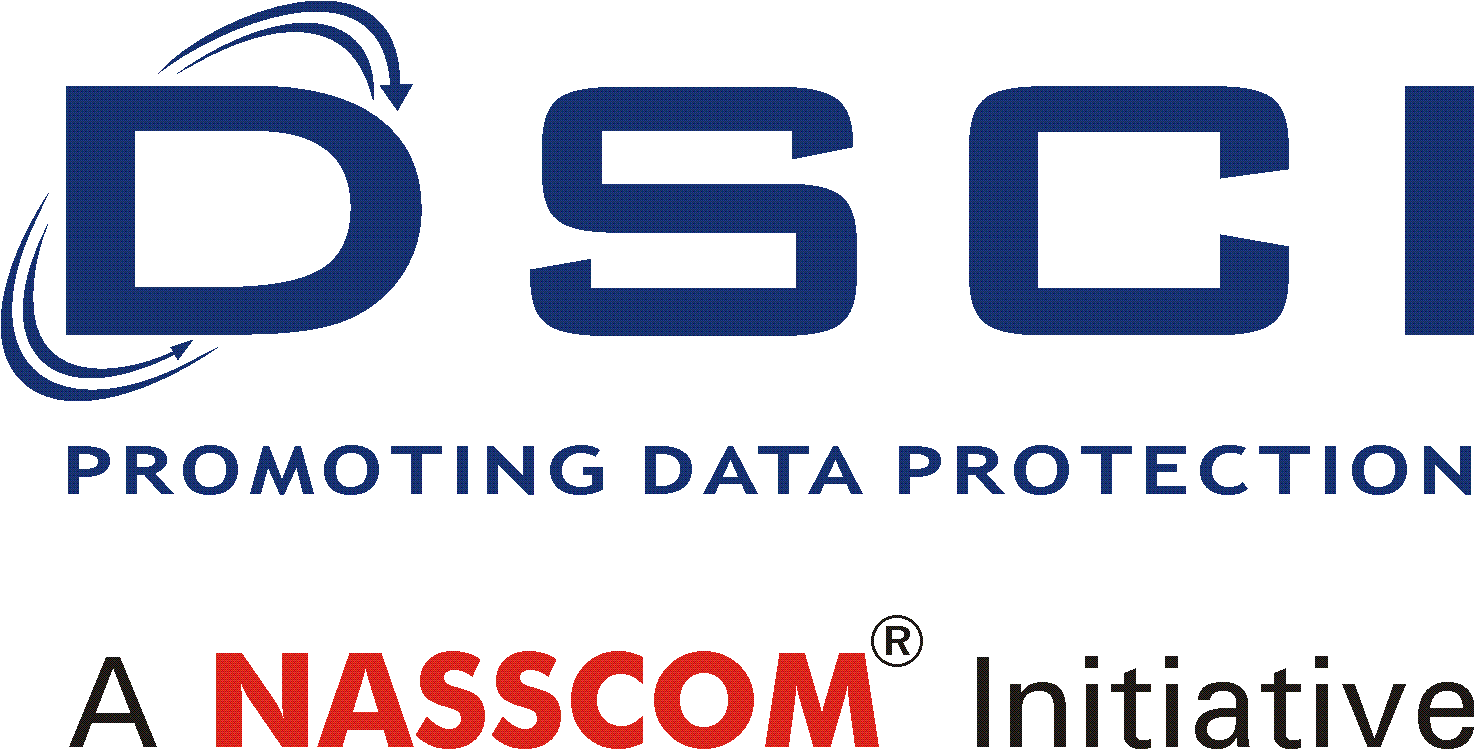
Data Security Council of India (DSCI)
Data Security Council of India (DSCI) is a premier industry body on data protection in India, setup by NASSCOM®, committed to making the cyberspace safe, secure and trusted by establishing best practices, standards and initiatives in cyber security and privacy. DSCI brings together governments and their agencies, industry sectors including IT-BPM, BFSI, Telecom, industry associations, data protection authorities and think tanks for public advocacy, thought leadership, capacity building and outreach initiatives.

FindBiometrics
FindBiometrics is the leading industry resource for all information on biometrics identification and identity verification systems and solutions. We have the latest daily news from the global biometric and identity management business community, a comprehensive vendor list, informative articles, interviews, exclusive videos, links to biometric associations and a calendar of events.

MySecurity Marketplace
MySecurity Marketplace is a dedicated marketplace connecting industry and enterprise professionals to the latest events, education, technology and media platforms across a global security domain

Australian Security Magazine
The Australian Security Magazine is the country’s leading government and corporate security magazine. It is published bi-monthly and is distributed to many of the biggest decision makers in the security industry. It is a highly respected and sought after publication, incorporating investigative journalism, provoking editorial and up-to-date news, trends and events for all security professionals.
![]()
Asia Pacific Security Magazine
My Security Media rapidly expanded into the Asia Pacific Region with its sister publication – the Asia Pacific Security Magazine. It is published bi-monthly – on the alternate month to the Australian Security Magazine – and its content complements the Australian Security Magazine with a strong focus on events. It is available online to read by all and upon every issue release a direct link is sent to a database of subscribers who are industry decision makers.

Australian Cyber Security Magazine
The Australian Cyber Security Magazine was launched in agreement with the Australian Information Security Association (AISA) to be focused on AISA’s 3,000 members, nationally and forms part of AISA’s national cyber security awareness and membership communication platform. It is published and distributed to many of the biggest decision makers in the cyber security industry. It has become a sought after publication, incorporating investigative journalism, provoking editorial and up-to-date news, trends and events for all cyber security professionals.

Chief IT
Technology channel partner ecosystem with a natural focus on Big Data, Internet of Things and fast emerging technologies

Drastic News
Dedicated channels for all things Drones, Robotics, Autonomous Systems, Technology, Intelligence and Communications.

Digital Forensics Magazine
Digital Forensics Magazine is a quarterly magazine from the world of digital forensics; it is the leading magazine with a global audience. The content features peer reviewed, journal quality research, in an easy to read magazine format covering comprehensive technical features, product and book reviews, the latest news, what’s happening legally and in depth “from the lab” feature articles.

MalaysiaSAFE
MalaysiaSAFE is in its sixth year of publication and proudly maintains its position as the only security and fire safety products magazine in Malaysia. Our stated mission is to educate end-users about the latest technologies, trends and best practices in security and fire safety, so as to create a safer environment throughout Malaysia. For more info, visit www.malaysiasafe.com

Cyber Security Review
Cyber Security Review is designed to promote dialogue and provide a platform for information exchange and cooperation between stakeholders, industry, academia and security experts worldwide. CSR assists in sharing knowledge, skills and expertise of the international cyber security community, and helps to identify the emerging threats and facilitate the development of coherent policies and robust capabilities. Please visit: www.cybersecurity-review.com

Critical Infrastructure Protection Review
Critical Infrastructure Protection Review is the go-to destination for the latest news, insights and expert knowledge, and designed to assist governments, public and private sectors in improving security and resilience of vital critical infrastructures, strengthening their preparedness to withstand and recover from the physical and cyber attacks. Please visit www.criticalinfrastructureprotectionreview.com

RoboticsTomorrow.com
RoboticsTomorrow.com is an Online Trade Magazine featuring Products, Companies, News, Articles and Events for the Industrial Automation, Robotics and Unmanned Vehicle industries. With an emphasis on the state of the art and on the horizon technologies that have strong prospects of commercialization, our philosophy is to create an outlet where the industry can share information and report on itself.

SourceSecurity.com
SourceSecurity.com is the world’s leading security industry publication, with an audience of over 180,000 visits monthly. Securityinformed.com is specifically dedicated to the US and Americas security market. In addition to its unique and unrivalled comparative database of security products comprising over 18,000 products, including CCTV cameras, IP cameras, access control systems, intruder alarms and integrated security systems, content includes news & analysis, latest applications, and a directory of security companies and events. The site also features in-depth coverage of products and applications in vertical markets such as airport & ports, retail and industrial & commercial security. Dedicated areas for IP security and biometric security recognize the emergence and growth of these technologies, while experts from the industry contribute their valuable insights on business and technology trends. With its depth and breadth of content, SourceSecurity.com is the definitive resource for the security industry.

The Tele Data
THE TELE DATA is an Informatic Centric Website focused mainly on the telecommunications & IT Industry Online. It is a B2B Platform mainly focus on latest telecommunication & IT News, Press Release, Industry related updates, Events, and Conferences. With The Tele Data, you can get all information that happens in the Telecommunication & IT Industry.

Smart Insights
Smart Insights, by Intelling: a blog about the Secure Transactions industry.
Smart Insights covers the smart card and secure transactions industry, its businesses, its technologies, its markets as well as its technology suppliers. Smart Insights covers all the major trends in the industry, it encompasses worldwide business, standardization bodies …
Smart Insights is brought to you by Intelling, the secure transactions industry expert. Intelling proposes services in communication, strategy, marketing and market intelligence, with a strong focus on all markets relating to the secure transactions industry.
More information at www.smartinsights.net and www.intelling.com

SecuringIndustry.com
Anti-counterfeiting and supply chain security news from SecuringIndustry.com
SecuringIndustry.com is a free-to-access information service that covers the issues surrounding supply chain and brand security. Our aim is to provide practical advice and intelligence to help manufacturers define and pursue their own strategies for tackling crime including counterfeiting, product diversion, adulteration and theft.

Cloud Security Alliance
The Cloud Security Alliance (CSA) is the world’s leading organization dedicated to defining and raising awareness of best practices to help ensure a secure cloud computing environment. CSA harnesses the subject matter expertise of industry practitioners, associations, governments, and its corporate and individual members to offer cloud security-specific research, education, certification, events and products. CSA’s activities, knowledge and extensive network benefit the entire community impacted by cloud — from providers and customers, to governments, entrepreneurs and the assurance industry — and provide a forum through which diverse parties can work together to create and maintain a trusted cloud ecosystem.

Association of Information Security Professionals
The Association of Information Security Professionals (AISP) was registered with the assistance of the Singapore Computer Society (SCS) and the strong support of the Infocomm Development Authority of Singapore (iDA) in February 2008. It was officially launched on 17 April 2008 by Dr Vivian Balakrishnan, Minister for Community Development, Youth and Sports.
AISP aims to be the pillar for Information Security Professional & Profession in Cyber by:

Defsec Media
Defsec Media publishes the premier business magazines Line of Defence, New Zealand Security and Fire NZ – publications for the New Zealand defence, security and fire protection sectors. Defsec also publishes the Border Management magazine and website – a platform of specialist news and analysis for the international border management sector.

Developing Telecoms
Developing Telecoms is the web portal for mobile and telecoms in emerging markets worldwide. We keep visitors up-to-date with opportunities, technologies, products and services that are transforming communications and empowering communities. Our influential audience covers the decision making chain from ministers and c-level executives to senior technical, marketing and operational managers, researchers, advisers, consultants and integrators. With 16,000 monthly visitors and 26,000 weekly newsletter subscribers Developing Telecoms is the most widely referenced and trusted global information source about telecoms in emerging markets used by operators, service providers, governments and large enterprises throughout Africa, Asia, Central and Eastern Europe, Latin America and the Middle East.

GeoConnexion International
GeoConnexion International is the leading business-to-business monthly for users of spatial professionals across the globe. It covers applications of GIS, GPS and remote sensing within industry sectors, such as telecoms, emergency services, public safety, government, utilities and retailing.
View the magazines: https://www.geoconnexion.com/publications/
Sign Up for free GeoConnexion Newsletter: http://www.geoconnexion.com
Email: [email protected]

SecurityLink India
SecurityLink INDIA is a niche monthly magazine on Security (Physical & Electronic, Cyber, & Homeland Security), Fire and Safety, and is the leading magazine in its genre in India.
We aim to enhance public awareness through knowledge sharing and leveraging the strengths of the Security & Fire Safety Industries to create a safe and crime-free environment.
SecurityLink India is distributed in digital (online flip) version as well, to a large database. The e-newsportal www.securitylinkindia.com carries more than what is covered in the print. The portal has global reach and has an average monthly traffic of nearly 100 thousands.
SecurityLink India is the best reach to the Indian market.

IEEE
IEEE is the world’s largest technical professional organization dedicated to advancing technology for the benefit of humanity. IEEE and its members inspire a global community through its highly cited publications, conferences, technology standards, and professional and educational activities. There are more than 430,000 IEEE members in over 160 countries around the world. IEEE members are engineers, scientists, and allied professionals whose technical interests are rooted in electrical and computer sciences, engineering, and related disciplines. Through its global membership, IEEE is a leading authority on areas ranging from aerospace systems, computers and telecommunications to biomedical engineering, electric power and consumer electronics.
IEEE sponsors more than 1,800 annual conferences and events worldwide, curating cutting-edge content for all of the technical fields of interest within IEEE. Often the central source for standardization in a broad range of emerging technologies, the IEEE Standards Association has a portfolio of over 1,300 standards and more than 600 standards under development. This includes the prominent IEEE 802® standards for local, metropolitan, and other area networks, including Ethernet and Wireless LAN (commonly referred to as Wi-Fi®).

Japan Network Security Association (JNSA)
JNSA (Japan Network Security Association) is a non-profit organization dedicated to enlightening the importance of network security to Japanese society, setting up a place to solve emerging various security issues, and furthermore, supporting for Japanese companies wishing to enter overseas markets.

The MULTOS Consortium
MULTOS is the most robust, industry-backed, smart device operating system delivering high-security and innovation. Over 1 billion MULTOS devices have been shipped to 50 countries and 3500 businesses, including national governments, banks, and corporates. Applications include digital identity, biometrics, and embedded devices. For further information, visit www.multos.com

BioMetricUpdate.com
BiometricUpdate.com is the leading news property that publishes shareable breaking news, analysis, and research about the global biometrics market. We provide the most original reporting and market research in the sector, vis-a-vis the Web and an exclusive daily newsletter, that focuses on global developments in biometrics technology, including: fingerprint identification, voice, iris, and facial recognition, civil and criminal ID and video surveillance. Our news coverage places special emphasis on national security, privacy and regulatory issues, along with examining the latest applications and advances in biometrics. Our global audience of 600k+ readers includes original equipment manufacturers, service providers, governments, law enforcement agencies, corporate buyers and industry professionals.

Police Aviation News
Police Aviation News the International circulation on-line news organ for the airborne emergency services sector. 25-30 page magazine free download each month from two websites www.policeaviationnews.com and www.policeaviationnews.info 2-year archive for research purposes on each site.


The Asian Banker
The Asian Banker is a leading provider of strategic intelligence and builder of platforms on the financial services industry, established since 1996. The company offers a unique combination of the skills of researchers and writers to develop a keen perspective on strategic issues and drivers in the industry through four key division entities: editorial, research, forums and training. Visit The Asian Banker’s homepage at www.theasianbanker.com.
![]()
Europol
Europol is the European Union’s law enforcement agency. Our main goal is to achieve a safer Europe for the benefit of all the EU citizens.
Headquartered in The Hague, the Netherlands, we support the 28 EU Member States in their fight against terrorism, cybercrime and other serious and organised forms of crime. We also work with many non-EU partner states and international organisations.
Large-scale criminal and terrorist networks pose a significant threat to the internal security of the EU and to the safety and livelihood of its people. The biggest security threats come from:
The networks behind the crimes in each of these areas are quick to seize new opportunities, and they are resilient in the face of traditional law enforcement measures.

South Asia Defence & Strategic Review
South Asia Defence & Strategic Review (defstrat.com), a leading magazine in the region, aims at promoting objective analysis and information flow on Geostrategy, Military Affairs and Military Technology. Our events go beyond the traditional experience to enhance knowledge and networking opportunities. Our combination of publications, seminars and workshops provide unrivaled learning and opportunities in the field of defence and strategy.

ASIS International Singapore
Founded in 1955, ASIS International is a global community of 35,000 security practitioners from virtually every industry in the public and private sectors, and organizations of all sizes. ASIS International (Singapore Chapter) is part of ASIS International’s Region 13B which also includes Philippines, Thailand, Malaysia, and Indonesia. There are over 300 ASIS members assigned to the Singapore Chapter, which actively promotes the certification of security professionals through the Certified Protection Professional (“CPP”) and Physical Security Professional (“PSP”) programmes.
For more information about ASIS, please visit ASIS’ website at http://www.asisonline.org or the Singapore Chapter’s website at http://www.asis-singapore.org.sg.

Biometrics Institute
The Biometrics Institute is an independent membership organisation with offices in Sydney, Australia and London, UK. It provides an impartial international forum for biometric users and promotes the responsible and ethical use of biometrics. It has developed Privacy Guidelines for its members and has several expert and sector groups who produce best-practice guiding information. It holds four biometrics conferences per year plus several training courses and networking functions.
To date the Institute has over 240 member organisations from around the world, representing nearly 1000 individuals.
Email: [email protected]
Web: www.biometricsinstitute.org

CPO Magazine
CPO Magazine (or Chief Privacy Officer Magazine) delivers news, insights and resources to help data privacy, protection and cyber security leaders make sense of the evolving landscape to better protect their organizations and customers.

China IP
As the professional media in the IP industry, China IP has multimedia platforms, such as Chinese and English magazines, website, Weibo and WeChat official account. In the past 14 years since its establishment, the company has been committed to building a comprehensive IP media platform, striving to realize the efficient dissemination of the concept and value of IP worldwide,reporting developments of Chinese IP industry and serving IP professionals in enterprises.

TelcoProfessionals
TelcoProfessionals(TP) is an interactive, content rich, blog- and video-centric online community, and business exchange, developed exclusively for the Telecom and Media
industry. We are dedicated to individuals working in the industry globally, as a place they can find and help each other get ahead. TP includes a full Telecom & Media events
listing, blogs from Thought Leaders, videos of the people shaping the industry’s future. TP allows you to network directly with over 110,000 like-minded unique viewers from
206 countries. To enhance your professional profile and network for future business opportunities, or to visit our jobs portal, join us today on www.telcoprofessionals.com.

Ministry of Home Affairs
MHA (collectively known as the Home Team) works in close partnership with the community to keep Singapore safe and secure. Our Home Team officers work round the clock to keep our country and people safe amidst an increasingly complex security environment. The Home Team is constantly innovating to respond to security challenges and to strengthen partnerships with the community.
Find out more at www.MHA.gov.sg

Supply Chain Safety & Security Association
Supply Chain Safety & Security Association (SCSA) was founded by a group of professionals from supply chain management, security management and information technology management in April 2002. We aim to address the awareness towards emerging security threats on the supply chain industry, such as counterfeit and dangerous goods.

CLocate
Clocate.com is a leading international directory for worldwide conferences and exhibitions. Clocate.com is equipped with a unique and comprehensive search that helps you find easily any event in any category or location. Each event includes detailed information, like, description, dates, location, map, prices, link to the official event’s website and more…
If you search for a conference or exhibition in areas such as Industry and manufacturing, Health and medicine, Technology and IT, Business and finance, sciences, education, services (banking, insurance, tourism, Hospitality and more), government, environment, life style and arts, you’ll find it in Clocate.com.

Authentic Solution Providers’ Association (ASPA)
Authentication Solution Providers’ Association (ASPA) is a self-regulated, non-profit organization of authentication solution providers. Formed in 1998 with the objective to fight fakes products in various sectors, it is one of its kind association in the world primarily focused on the adoption and advancement of authentication technologies and solutions for Brand, Revenue and Document Protection. ASPA members protect over 15,000 brands worldwide through the identification of genuine products and documents. ASPA is creating awareness to fight fake / duplicate & counterfeit products which are harmful to consumer, industry, economy and society at large. ASPA works closely with global & regional authorities such as International Hologram Manufacturers Association (IHMA), International Tax Stamp Association, Counterfeit Intelligence Bureau (CIB – Interpol), FICCI CASCADE, CII and others.
Regulating Big Data
What are the privacy and protection implications to public safety and security?
The collection, processing and analysis of data is increasingly transitioning from governments to private organizations. These organizations focus on developing strategies for revenue generation through the use and ownership of the data. Industry is self-regulating and defining the rules regarding information sharing and access. This has driven many regions to consider forms of regulation through improved controls. The endeavour has been challenged by big data corporations and elements of the community as attacks on the fundamental rights of the privacy of the individual. So how should governments and law enforcement work with big data, ensuring privacy and protection of individuals, and at the same time allowing for timely sharing of information that will prevent or disrupt events that affects public safety and security?
Drones
How to stop drone intrusion in three easy steps?
Drone activity has increased exponentially as drones became more easily accessible and affordable. Events in Gatwick have highlighted the potential disruptive nature of drones, jeopardizing public safety and airway security. With more drones operating every day, there have been some creative and sometimes dangerous attempts to disable drones. This co-creation lab will look at the options of prevention and disruption of drone intrusions to ensure that the public safety and security is maintained.
Partnerships
How do police build collaborative partnerships to achieve better preventative outcomes for public safety?
Public private partnerships: how can they be developed and nurtured into the future in pursuit of mutually beneficial public safety and security outcomes, in an environment of trust and transparency? What currently works well and what needs to change to allow for partnerships to be engrained into all agencies that work together? What partnerships need to be developed for the future as we drive to preserve public safety and security?
Protecting Children
On line safety and security of our children – How can we prevent and disrupt crimes against children in the virtual world?
Children are particularly vulnerable to the exploitation of online predators because they rely heavily on networking websites for social interaction. The openness of the internet coupled with the digital divide between children and caregivers can leave children exposed to online harm. What tools, services and applications are currently available that can aid law enforcement in identifying children at risk, preventing and disrupting crimes against children and ensure that children are safe from exploitation and abuse?
Artificial Intelligence (AI)
Can AI provide savings and improve outcomes in public safety and security?
AI based applications (smart applications) have demonstrated benefit in the rapid assessment of large quantities of data. From a policing perspective there are savings in the number of people it takes to evaluate and assess the relevance of information using these enhanced systems. It poses the question, can a computer replace the intuitive mind of a police investigator effectively to improve public safety and security outcomes? What capabilities exist and do we have the confidence to trust that they will not get this wrong? Examples of the use of AI in law enforcement are emerging rapidly in the use and analysis of large data sets to quickly identify relevant and timely avenues of inquiry. But what is the future of AI application, and could our current activities grow into something more extensive?
The Connected Car
Threats and opportunities of unmanned, semi-autonomous and autonomous systems – What are the implications for modern society?
Arguably the most significant benefit to automated vehicles is the potential for safer transportation. When machines can eliminate human error, the ability to control the flow of traffic is greatly increased.
With growing private investment in this market we have to consider the extent of information that is captured, where is it stored and who has access to this information? What are the vulnerabilities in the system that can be exploited by criminals? Who is to take responsibility for accidents caused by self-driving technology?
ISIL/Daesh 2.0
Further development and the sharing of identifiers including biometrics – Are we jointly prepared for returning foreign terrorist fighters (FTF)?
Biometric identifiers allow police across the world to improve the global detection of travelling FTF and other individuals linked to terrorism. The unique identifiable attributes provided by biometrics facilitate the match of available terrorist profiles to potential suspects in the field in a timely and effective manner. How can the currently implemented sharing strategies be improved to prepare us for ISIL 2.0?
Data Fusion
Integration of organizational data with private and public data sources, social media and open source information – What can be achieved?
Policing has undergone profound changes in the recent years, and the evolution of public-private partnerships is among the most significant of these changes. What can be achieved with current capabilities to link data sets across our communities? With the ultimate aim of providing the right information to the right person in time to make a well informed decision, is investigative analytics achievable in our current environment? How is this executed while ensuring that the privacy of individuals is maintained?
Future Capabilities and Cultures
How do police build future capabilities and cultures within their organizations?
Although the principles of policing remain a constant, the world in which the police operate is undergoing dramatic shifts. Adaptive and agile, law enforcement is introducing positive cultures and inclusive leadership, but also increasingly perceiving innovation as a value, and absorbing variety of new technological options. So how can contemporary organisation take advantage of these paradigm shifts and position themselves to change their practices and processes effectively in an evolving environment?
Counterfeits
How can we use blockchain technology to better detect and track counterfeits?
From handbags to electronics to pharmaceuticals and even identification documents the counterfeit industry worldwide is estimated to be a 1.2 trillion dollar business and it is set to grow even further. The estimated death toll from fake pharmaceuticals and food and beverages is now believed to be one million people worldwide. Blockchain is an innovative technology that will allow industry and law enforcement to work together to enforce Supply Chain security by tracking every movement of products from manufacture, transport and finally into the hands of consumers. Several large companies have started to develop Blockchain technology with the goal to integrate it with border authorities. The introduction of this technology will increase the protection of the supply chain from the infiltration of counterfeit goods. The focus of this co-creation lab is to look at where we are now and how blockchain or some other technology may be used to ensure public safety and security from counterfeit products.
3D/4D Printing
Do we realize the impact of the safety and security landscape?
3D printing is slowly but surely creeping into the mainstream and with its endless potential, it got people excited. Today, 4D printing is emerging as a further extension of additive manufacturing that has real commercial applications. Will the ability to print anything in our home be the end of manufacturing and supply chain activities? How will our community monitor and mitigate the risks associated with the printing of weapons and materials that could breach copyright? What impact may this have with respect to public safety and security?
Training Delivery for the Future
How can mobile applications improve the access and quality of training now and in the future?
Mobile phone applications are integral part of everyday life, including multitude of learning apps available at the click of a button. The implications for international law enforcement education are clear: easier access to training material, wider audience and better prepared officers. However, differences in technological capabilities at the international level present challenges to an effective implementation of a global law enforcement education app. What solutions are there that can facilitate training for international law enforcement?
Border Security
How will future border controls improve the reliability of individual screening, safety of travel between countries and help to eliminate the threats of domestic attacks?
Secure and optimized border management is a complex operational process, requiring border agencies having a complete picture of their border operations in real-time. The advancement of technology and capabilities created remarkable opportunities for the fusion and integration of information with international airlines and shipping companies at borders. What is the future of border agencies? How do we improve control measures in smart countries?
Deepfakes
How can police prove that what people see actually did happen to ensure the integrity of a judicial process?
Deepfakes are claimed to be the newest way false information is spread, and has been receiving some media coverage around election manipulation and the use of innocent persons being portrayed in revenge porn. But they also pose significant threat to integrity of collected evidence such as cctv and body camera feeds. It has been claimed that seeing is believing but what happens when you can not only add or delete images but also manipulate them to portray an event that did not occur? Are currently used digital signatures enough for police who have to produce acceptable evidence in court? How can we identify or authenticate video and audio recordings to ensure that they are not deepfakes?
Community Participation
How can we improve community participation in creating a safe and secure environment in jointly tackling complex challenges of the future?
How can the community be better engaged in the public safety and security roles and functions? We have seen the rolling out of applications that facilitate the reporting and the mechanisms to share video, geolocation data, and personal information of an event, alerting emergency services depending on the incident. Vandalism, cyber bullying, attempted burglary or theft: many applications enable citizens to create their own criminal investigation file and submit it to the law enforcement. What are the other ways technology is aiding community participation? What will be the next generation of community-oriented solutions and what challenges lie ahead?
5G Network
What are the opportunities and the challenges of the 5G mobile network?
With higher data rates, reduced latency and increased device connectivity 5G will effectively remove speed, responsiveness, and capacity as constraints on wireless innovation. The connectivity is enabling the new generations of IoT in autonomous vehicles, smart homes and cities but as the countries prepare for 5G, what many still do not understand is how it all works and what opportunities it will bring. So how can law enforcement, security and emergency services capitalize of the 5G network to ensure public safety and security of their communities?
Financial Crime
Tackling organized crime is all about the money – How can we improve the outcomes through sharing data from banks and financial institutions?
Financial institutions globally hold extensive information surrounding fraud and the movement of suspicious financial transactions. When it comes to identifying and investigating transnational crime syndicates, financial intelligence has extensive utility to law enforcement and security agencies, the same way as information held by policing agencies are invaluable to the banking sector. With the emergence of cryptocurrency and cyber related organised crime, it is about time to revisit perceptions of anti-money laundering and the joint responsibility of disrupting and mitigating the risk of transnational and organised crime.
Partnership with Big Data
How should this be structured and developed for the future?
Timely access to information enable law enforcement to make informed decisions and act to prevent, disrupt or respond to a crime. But it is becoming more and more challenging, with the potential to become more of an issue as more organizations join the virtual information eco system. This lab will discuss accountabilities or data ownership and the issue of prompt sharing of information for the greater good, and seek solutions to build stronger, trusting and enduring partnerships that will mitigate the risk of not knowing what others do, that can save our citizens lives.
Marine Crime
Technologies to detect marine pollution crime – What can be done?
With 8 million items of marine litter entering the oceans every day, marine pollution crime poses significant threats to human, environmental and economic security, negatively impacting sustainable development. The recent INTERPOL global operation codenamed 30 Days at Sea, with 58 participating countries and over 800 marine pollution violations reported worldwide, highlighted the key role played by technologies in detecting offshore marine pollution offences. Such technologies include drones, AIS and satellite imagery, side looking airborne radar (SLAR), electro-optical infrared cameras (EO/IR), infrared/ultraviolet line scanner (IR/UV), night vision cameras, sulphur sensors, vessels tracking software and applications. This operation allowed INTERPOL to identify not only countries with significant expertise in the application of these technologies to marine pollution enforcement, but also the high demand of these technologies and the related “know how” from several developing countries. INTERPOL World provides a unique opportunity to bridge the gap between the offer and the demand, linking the law enforcement community and the private and scientific sectors.
Virtual and Augmented Reality
What are the applications in policing and are there any potential for its abuse?
The use of virtual and augmented reality is no longer a science fiction or a tool for gamers. The industry is actively applying VR to solve real world problems and challenges, and policing is one of the sectors benefiting from it through capability development to crime scene analysis. What exactly is available to law enforcement, security and the emergency service and how could it be used in the public safety and security environments to fully realize VR’s potential?
Smart Cities
Is law enforcement a thing of the past? What is the future of law enforcement with the emergence of smart and safe city technology?
Smart technology can make cities safer and ultimately more livable. Smart Cities offer a wide range of possibilities how city services – including policing – could be delivered. On the other hand new technologies pose critical risk to security, creating new vulnerabilities that often remain underestimated. What is going to happen to law enforcement of the future, when the combined data, connectivity of devices will provide potential for “no human needed” approach? What functions of law enforcement will become obsolete and which ones will be enhanced in a smart city?
Darknet
How will the Darknet of the future look and operate?
The darknet, often referred to as the dark web, is the place where people offer unscrupulous solutions, where neither the perpetrator nor the implementer of the service will wish to be identified, but also a place where entities store and sell resources containing nothing even remotely sinister. What is the future of this censorship-free world – will it become more digitally opaque or far more mainstream? And is law enforcement equipped to deal with its evolution?
DNA & Biotechnology
Biotechnology, gene editing and the advancement in DNA technology – What are the applications in policing and is there any potential for abuse?
As we overlay more and more data on genetic information, we move from evidence to intelligence and DNA can be highly persuasive. How do we manage genetic predictions in a law enforcement intelligence framework? How do we manage expectations of police, lawyers and the courts as this moves into operational use, and avoid wasting investigative resources on false leads? How can we train and engage with external expert genealogists and geneticists, and what can we learn from their experience with adoptions or paternity cases? Will this technology ultimately lead the world’s policing agencies towards predicting the ‘criminal gene’?
Predictive Capabilities
How can predictive capabilities change our perspective, and responses to public safety and security issues?
Integrated public safety solutions: incident analysis and mapping software helps law enforcement agencies visualize threat real time. Predictive software is supposed to help achieve clear and unambiguous communications, and provide tools to adapt to rapidly changing situations. How to turn data into reliable solutions? What are the boundaries with this capability?
Machine-Based Decision Making
Ethics of machine-based decision making – What decisions are we comfortable for a machine to make?
Superior to human decision in terms of speed and accuracy, increasing use of AI in decision making sparked a debate about the degree of trust we put in technologies. This lab will discuss the relationship between technology and police autonomy: what decisions will be made by machines and how can we ensure that these decisions do not circumvent the safety and security of individuals? What is the potential for algorithms to make incorrect decisions about individuals? How new technology and techniques lead to unexpected conundrums, and how ethical and societal debate must catch up?
Blockchain
Blockchain innovation for national security – Opportunity, threat or evidence?
The innovation potential of Blockchain is infinite given its immutability and resilient characteristics. At the same time, we are all aware that Bitcoin, the first successful Blockchain application, has been used by criminals to fuel several illicit market places. How can law enforcement benefit of the opportunity, fights against the threat and use the digital evidence in case this technology facilitates crimes?
Illicit Wildlife Trade
Cyber-enabled illicit wildlife trade – How the Internet and anonymous networks are used to facilitate illicit marketplaces?
A current law enforcement challenge and problem – we need your help to solve it. The internet is the world’s biggest marketplace, open all hours for buyers and sellers to exchange goods. Largely unregulated, anonymous and virtually unlimited in reach. It offers endless opportunities for criminal activity, including the illegal trade in protected wildlife. This is the problem, what needs to be done to tackle this challenge?
Geolocation of Individuals
Finding, tracking and monitoring individuals that present a risk to our communities in the real and virtual worlds, and can these systems be integrated?
Digital surveillance: geolocation of users from a multitude of devices and applications became our every -day reality. As with any technology, geolocation has a double-edged nature: it can aid and transform law enforcement but also put us in danger by revealing private information. To what extent can scientists and companies who collect such information anticipate future uses and make them clear to participants and customers? How can safety and security sector benefit from new geolocation tools without infringing privacy rules and regulations?
Cyber Disruptors & Drivers of Change
What perspectives are there for 2030?
Cyberspace presents challenges that all governments and organizations must plan for. How can we work together to identify the indicators of a possible disruption and counter future attacks? How will the advances and convergence of emerging technologies shape a new era for law enforcement, where human and machine are tightly coupled together for various activities? How should our cyber framework and workforce competencies change to deal with these challenges?
Internet of Things (IoT)
Internet of Things or Internet of Threat – Will the evolution of smart devices be an opportunity or a threat?
In our homes, business and communities, IoT is becoming commonplace within a society eagerly adopting the next generation of connected devices. Is IoT development opening up new vulnerabilities in the virtual ecosystem due to a lack of cyber security controls in the design of these products? What needs to be done to ensure that public awareness of the risks is well understood?
Horizon Scanning
Safety and security organizations – What will the future bring us?
What lies ahead for public safety and security industry? Let’s talk about the future and highlight the possibilities.
Privacy
Privacy of the future – Will there be any?
In a world of advancing technology, a culture of privacy by design needs to be considered. How can the standards that we collectively desire be incorporated into future policing capabilities? What values are we willing to give up for public safety and security? Will we continue to have rights over the use of our personal information? How will our rights to privacy be challenged in the future?
Brain/Computer Interfaces
What are the applications for public safety and security organizations?
We are seeing more integration and technology within health field to support people with a disability. Will we ever integrate a human into the world wide web, so that we can think of a search and it will be undertaken. What are the issues of people becoming part of the virtual ecosystem?
Architectural Processes and Internal Innovation for Policing
What are the architectural roles and processes required to enable agile responses, and how to quantify the benefits delivered by INTERPOL’s policing capabilities?
INTERPOL needs to remain a responsive actor to change, able to identify and respond to changes in the crime and law enforcement environment, in order to continuously meet member countries’ needs. In this lab, we will discuss the architectural roles and processes required to enable agile responses and how to quantify the benefits deliver by INTERPOL’s policing capabilities.
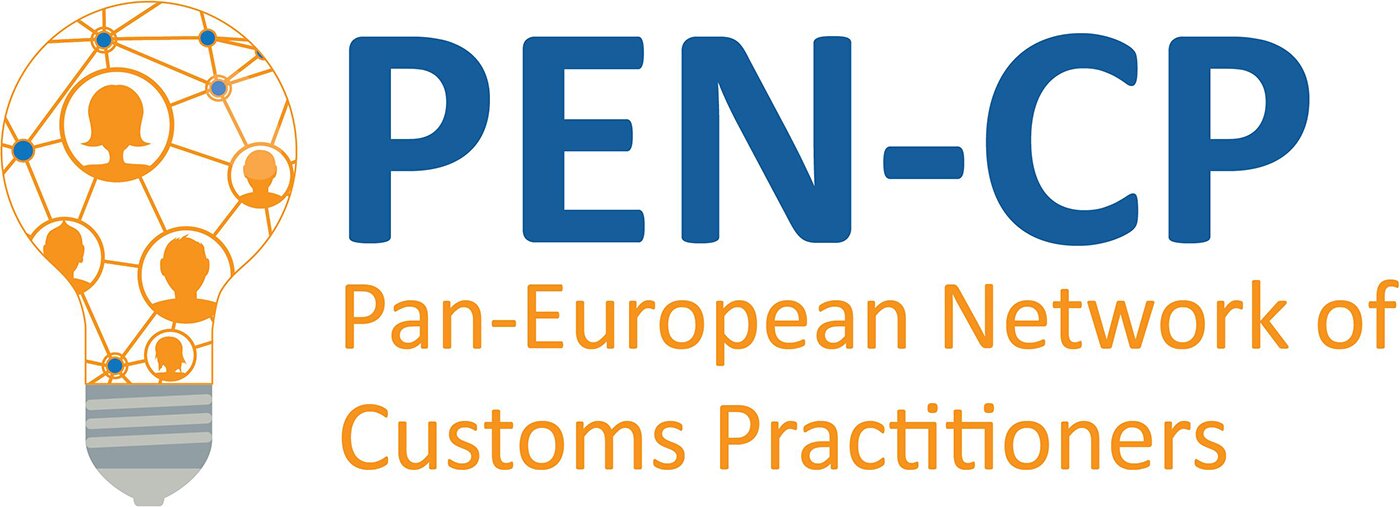
PEN-CP
Pan-European Network of Customs Practitioners
The Pan-European Network of Customs Practitioners (PEN-CP) is a Horizon 2020 funded EU-project, coordinated by the Cross-border Research Association.
The goal of PEN-CP is to create a sustainable environment that connects European Customs Administrations with innovators and solution providers in the context of three key topics: Customs risk management & big data; Detection technologies; and Laboratory equipment.
Website: https://www.pen-cp.net

Association of Crypto-Currency Enterprises and Start-ups, Singapore (ACCESS)
Association of Crypto-Currency Enterprises and Start-ups, Singapore (ACCESS) was founded in 2014. ACCESS envisions Singapore as a premier global hub for businesses driven by digital currencies and blockchain technologies. The organization believes in the transformative potential of cryptocurrencies and blockchain, and with responsible use and proper regulatory support, ACCESS sees digital currency applications and distributed ledgers benefitting everyone. The group aims to foster an open and clear dialogue between the country’s cryptocurrency and blockchain businesses and the larger society, educate the public about the benefits of the new technology, and to provide a united public voice and platform for the Singapore cryptocurrency and blockchain community.

International Compliance Association
The International Compliance Association (ICA) is a professional membership and awarding body open to compliance professionals at all stages of their career. As part of our ongoing commitment to setting the standard, we provide a wealth of knowledge, tools, resources and practical support.
We are the leading provider of professional, certificated qualifications in anti-money laundering; governance, risk and compliance and financial crime prevention. An internationally recognised organisation, our qualifications are awarded in association with Alliance Manchester Business School, the University of Manchester.
Our global community has members across 130 countries. Being a member demonstrates a commitment to the highest standards of practice and conduct, enhances your professional reputation and employability and significantly protects and improves the performance of your organisation.
Recognition. Community. Knowledge. The benchmark of excellence.
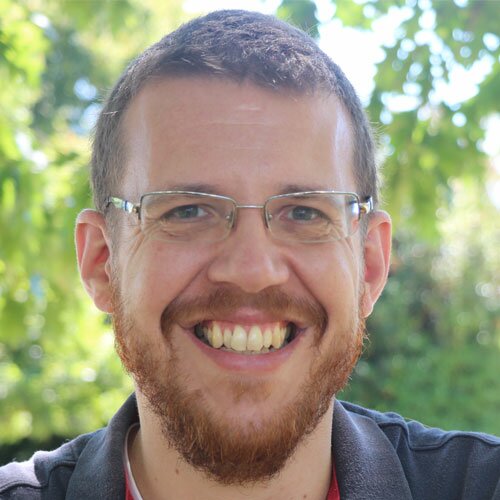
Dr David ROBERTS
Reader in Biodiversity Conservation, Durrell Institute of Conservation and Ecology
University of Kent
United Kingdom
Dr Roberts has been conducting research on the illegal wildlife trade for 10 years, particularly cyber-enabled wildlife trafficking. Before moving to the Durrell Institute of Conservation and Ecology at the University of Kent in 2010, he spent over 8 years at the Royal Botanic Gardens, Kew, as an orchid specialist, include providing expert opinion on the trade and training wildlife inspectors. Since moving to DICE, he has worked on various aspects of the wildlife trade from livelihoods through to the first studies on wildlife trade on the darknet. In relation to wildlife trafficking Dr Roberts has worked on characterising the extent and structure of the trade, through the use of codewords across different countries, to the development of software to record enforcement officers’ decisions and machine learning for rapid identification. He is a member of the UK Government’s Advisory Group on Illegal Wildlife Trade, fellow of the Oxford Martin School’s programme on Illegal Wildlife Trade and sits on the UK police force’s Cyber Enabled Wildlife Crime Priority Delivery Group and is the academic lead on Interpol/IFAW’s Global Wildlife Cybercrime Action Plan.
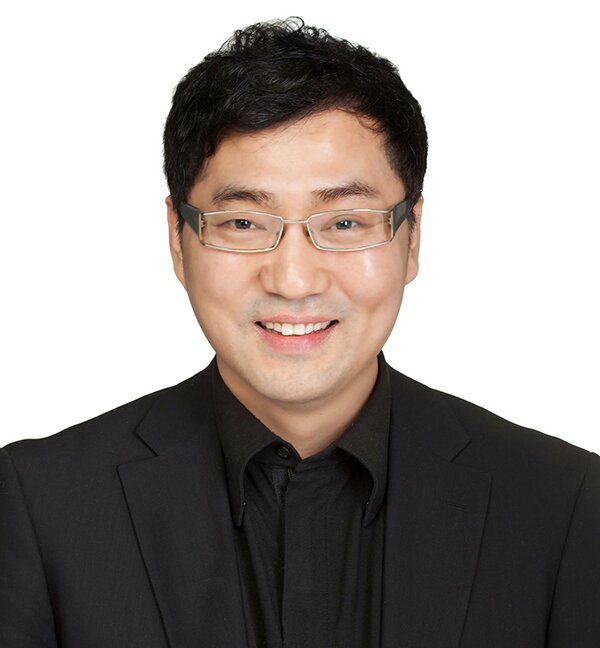
Dr Kyung-Shick CHOI
Cybercrime Investigation & Cybersecurity Program Director
Boston University
United States
As the Cybercrime Investigation and Cybersecurity Program Director at Boston University, Dr. Choi oversees the graduate programs in Cybercrime Investigation and Cybersecurity. In addition, Dr. Choi is the President of the Center for Cybercrime Investigation and Cybersecurity, a federal level non-profit organization.
As an international cyber-criminologist, Dr. Choi has been invited as a cybercrime expert for various cybercrime conferences. The Korean Institute of Criminology, in cooperation with the UNODC, invited him to facilitate the UN’s Virtual Forum against Cybercrime as an instructor. He was further invited as a guest speaker to the International Symposium on Cybercrime Response in Seoul, South Korea. Dr. Choi has also spoken at a 2017 Latin American law enforcement symposium as a keynote speaker to the AMERIPOL X Summit in Santiago, Chile, as well as XVIII International Criminal Investigation Symposium sponsored by the U.S. Embassy, Medellin, Colombia in 2018. He was also invited by a State Representative as a cybercrime and cybersecurity expert to testify in support of a cybersecurity bill for the Massachusetts Statehouse.
Dr. Choi has been rigorously conducting his own academic research, focusing on the intersection of human behavior and technology and how criminal justice can respond effectively to the challenges of cybercrime.
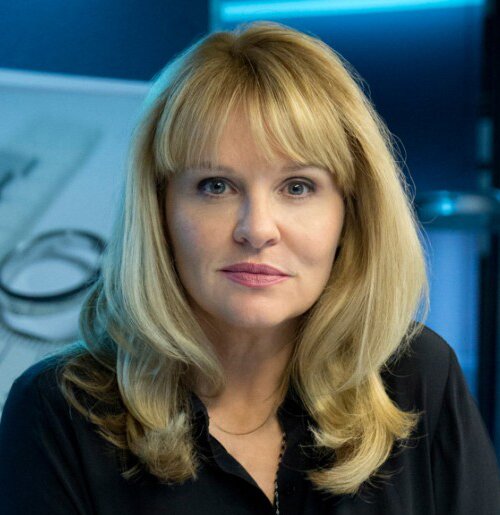
Dr Mary AIKEN
Cyberpsychologist and academic advisor
Europol’s European Cyber Crime Centre (EC3)
United Kingdom
Dr Mary Aiken is an Honorary Professor in the Department of Law & Criminology at the University of East London. She is a Fellow of the Society for Chartered IT Professionals and a Global Fellow at the Wilson Center, a leading US institution for in-depth research and dialogue to inform actionable ideas on global issues. She is an Academic Advisor to Europol’s European Cybercrime Centre (EC3) and a member of the INTERPOL Specialists Group for Crimes against Children. Her current research interests include Internet psychology, AI, Fintech, human factors in cybersecurity, organized cybercrime, online behavioral profiling, youth protection & age verification online.
In 2016 Mary was named as one of the top 50 most inspiring women in technology in Europe. In 2017 she was inducted into the Infosecurity Europe Hall of Fame, in recognition of her contribution to the information and cybersecurity sector. Mary’s work as a Cyberpsychologist inspired the CBS primetime television series CSI: Cyber. Her recent book, ‘The Cyber Effect’ was selected by the Times as a ‘book of the year’ in the Thought category, and was listed in the top twenty science books by Nature the International Journal of Science.

Jon ROUSE
Detective Inspector
Queensland Police Service
Australia
Detective Inspector Rouse has 35 years’ service with the Queensland Police Service in Australia. In 1996 Jon commenced investigating crimes against children and in 2001 he commenced at Task Force Argos where he implemented Australia’s first operation to proactively target internet child sex offenders.
He has instigated multiple national and international investigations targeting child exploitation criminal networks and has delivered training to law enforcement officers in Australia and across the world.
Jon is currently the Sub Group Chair of the INTERPOL Covert Internet Investigators Group and is a Director with The Society for the Policing of Cyberspace (POLCYB). He is the recipient of four Commissioners Certificates for his operational leadership and two Queensland Police Excellence awards for Child Protection Prevention.
In May 2018, Jon accepted the ‘Champion for Children Award’ in New York from the International Centre for Missing and Exploited Children for his dedication for over 24 years to fighting and investigating crimes against children.
Jon was awarded the Queensland Australian of the Year for 2019.
He is the recipient of the Queensland Police Medal, the National Service Medal, the Exemplary Conduct medal, the National Police Medal and the Australian Police Medal.
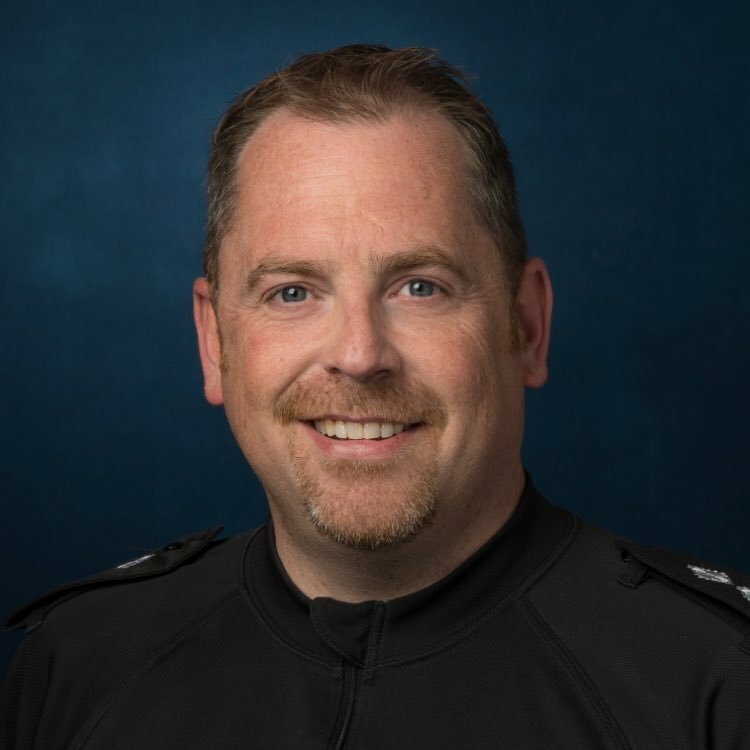
Justin BURTENSHAW
Superintendent Head of Protective Security and Firearms
Sussex Police
United Kingdom
Justin has been a police officer with Sussex Police for 22 years. He has achieved the rank of Superintendent and is currently head of Protective Security and Firearms for Surrey and Sussex Police. He is also the Gatwick Airport Commander overseeing the policing of Gatwick Airport. Justin was the Gold commander during the drone attack on the airport in December 2018. Justin led the policing response to the incident and is now working with airports across the UK in target hardening against drones.
Justin is both a Strategic and Tactical firearms Commander and was the Gold Commander for the Shoreham Air Disaster where 11 people were killed by an Air crash during a display at the Airshow. As one of the first on scene he led the response and recovery phase of the incident.
Justin has worked in various roles across his career including, emergency response, prevention, investigations and Operations.
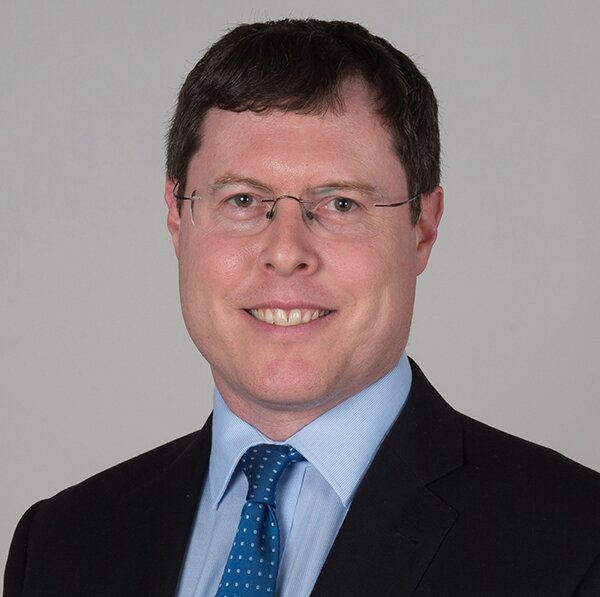
Nathan SCUDDER
PhD Candidate, Faculty of Science and Technology
University of Canberra
Australia
Nathan Scudder is a PhD candidate at the University of Canberra, Australia where he is researching the legal and policy implications for law enforcement of moving from traditional forensic DNA towards forensic genomics. His research considers the privacy and ethical dimensions, and public trust arguments, around making predictions from crime scene DNA. It also considers new intelligence tools using public genetic genealogy databases to track suspects.
Nathan is a lawyer, and coordinates policy engagement for the Australian Federal Police. He has worked for the AFP for twenty years, including as quality manager and in operations coordination at the Australian Federal Police forensic laboratory.
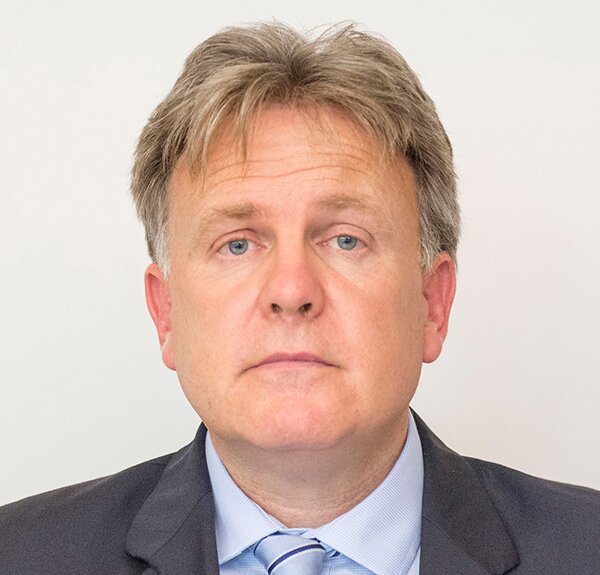
Patrick STEVENS
Director of Counter-Terrorism Unit
INTERPOL
Belgium
With 25 years policing experience, Patrick Stevens was appointed Director of INTERPOL’s Counter-Terrorism unit in September 2016.
A Chief Commissioner with the Belgian Federal Police, from July 2008 Mr Stevens served as their liaison officer to the USA, Canada, Mexico and Bahamas. During this time he was a member of the International Association of Chiefs of Police (IACP) Counter-Terrorism and Cyber Crime and Digital Evidence Committees. He was IACP’s International Vice President from October 2015 to October 2017.
From 2002 to 2008, Mr Stevens was the Head of the Central Counter Terrorism Unit within the Belgian Federal Police where his responsibilities included the development, implementation and evaluation of the national security plan for terrorism.
During this time Mr Stevens was the Belgian representative at Counter-Terrorism meetings hosted by INTERPOL as well as at the High Level Expert Meetings within Europol. He also participated in the COSPOL (Comprehensive Operational Strategic Planning for the Police) terrorism project and contributed to CEPOL’s Common Curriculum Counter Terrorism. He also chaired the Belgian private-public cooperation working group on terrorism.

Professor Kwok Yan LAM
Professor, School of Computer Science and Engineering
Nanyang Technological University
Singapore
Professor Lam is a Professor of Computer Science at the Nanyang Technological University (NTU), Singapore. He is currently the Executive Director of the Strategic Centre for Research in Privacy-Preserving Technologies and Systems (SCRIPTS), and Director of NTU’s SPIRIT Smart Nation Research Centre. He served as the Program Chair (Secure Community) of the Graduate College of NTU 2017-2019. Professor Lam has been a Professor of the Tsinghua University, PR China (2002-2010) and a faculty member of the National University of Singapore and the University of London since 1990. He was a visiting scientist at the Isaac Newton Institute of the Cambridge University and a visiting professor at the European Institute for Systems Security. In 1997, he founded PrivyLink International Ltd, a spin-off company of the National University of Singapore, specializing in e-security technologies for homeland security and financial systems. In 2012, he co-founded Soda Pte Ltd which won the Most Innovative Start Up Award at the RSA 2015 Conference. In 1998, he received the Singapore Foundation Award from the Japanese Chamber of Commerce and Industry in recognition of his R&D achievement in Information Security in Singapore. Prof Lam received his B.Sc. (First Class Honours) from the University of London in 1987 and his Ph.D. from the University of Cambridge in 1990. His research interests include Distributed Systems, Multivariate Analysis for Behavior Analytics, Cyber-Physical System Security, Distributed Protocols for Blockchain, Biometric Cryptography, Homeland Security and Cybersecurity.

Richard VAN HOOIJDONK
International keynote speaker, crime and technology trendwatcher & futurist
The Netherlands
Van Hooijdonk’s inspiration sessions have been attended by over 500,000 people worldwide and he is a regular guest on tv and radio. With his international research team, he investigates technology trends and the social impact of these trends across many sectors and industries. Research findings are published on a weekly basis in the form of compelling articles, e-books and whitepapers. His bestselling book ‘The world of tomorrow’ will soon be published in several other languages.
Richard van Hooijdonk was born in 1968. He sat on the boards of various international organisations and founded a number of startups. He is a lecturer at European universities and holds over 300 keynotes per year on how the future affects companies, organisations and entire industries. He also leads Trendforce.one, a company in which more than 40 employees research the future. Richard van Hooijdonk works as a trendwatcher & futurist for the European Commission, the National Police Corpse, the Royal Netherlands Air Force, the Royal Netherlands Army and many other organisations that deal with global (digital) security.
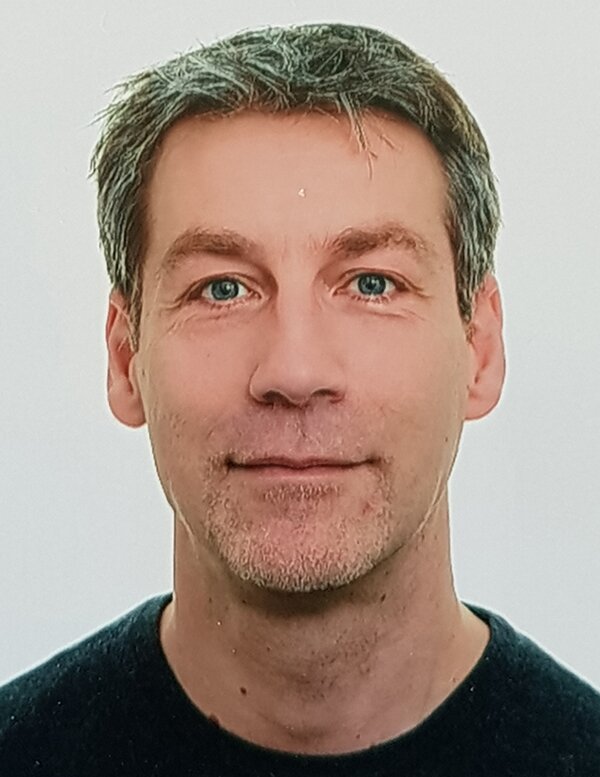
Yves DRIESEN
Chief Superintendent Judicial Police
Belgian Federal Police
Belgium
As a chief superintendent at the Belgian federal judicial police, since 2009 Yve has been responsible for (special) operations, the coordination of police investigations and international police cooperation in the north-eastern district of Flanders.
Since 2016, Yve has been cumulatively the national driver of the program ‘policing the future’. Scope of this program is the increasing impact of technology on (organized) crime. The federal judicial police needs to be aware and must be capable to respond adequately. Technological skills need to be acquired and deployed in the organization. New investigative methodologies, means and a flexible structure must be put in place
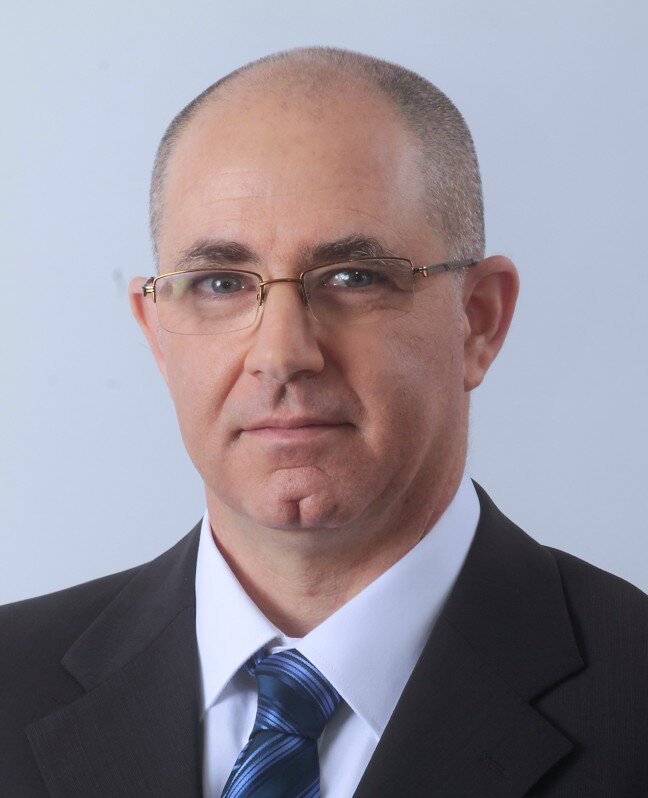
Ami BRAUN
Vice President, Cyber Technologies and Solutions
AddOn APAC Innovative Solutions
Israel
Ami Braun is the Vice President for Cyber technologies and Solution of AddOn APAC innovative solutions (AOA). Before joining AOA, Ami was the Vice President for Product and Business development in Cyberbit where he was responsible for strategic alliances, product development and handling major accounts. Prior to joining Cyberbit, Ami served as Vice President for Cyber Solutions at Comsec group and was responsible for business and technology strategy development for Comsec’s cyber solutions. Prior to joining Comsec, he held various positions in Elbit Systems LTD, among them Vice President for business development of Elbit Security Systems, Senior Director for Intelligence and cybersecurity at Elbit System Land division, General Manager of NessBit (joint venture of Elbit Systems and Ness Technologies) and Senior R&D director of intelligence and cybersecurity group. Before joining Elbit Systems, Ami was a chief software architect at Elron Telesoft – NCC. Before joining NCC, Ami served as an officer in the IDF in several operational and technological positions. Ami quit the IDF in 2001 and holds the rank of Colonel (reserve). He holds a Bachelor of Science degree in Electronic and Computer Engineering from the Ben-Gurion University.
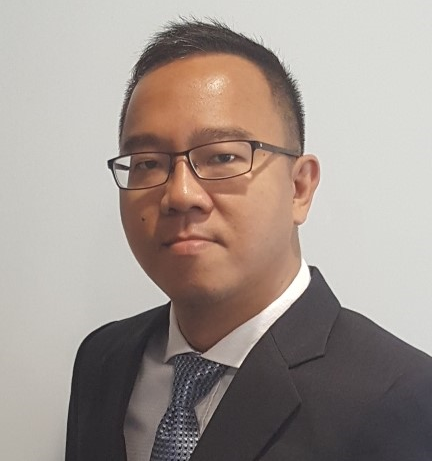
Augustine CHIEW
APAC Lead, Public Safety
Huawei Technologies Co Ltd
Singapore
A firm believer in the power of information, networking, collaboration and leveraging technology as an enabler, Mr. Chiew is a Global Senior Public Safety Expert in Huawei. He advocates a holistic integrated approach for public safety through capitalizing on the opportunities brought about by digital disruptions. Prior to joining Huawei, Mr. Chiew spent 17 years in the Singapore Police Force (including two stints in the Singapore Ministry of Home Affairs) and 3.5 years as a consulting executive in a leading global firm that provides strategy, consulting, digital, technology and operations services.
During his time in Policing, Mr. Chiew held various appointments including senior investigation officer, commanding officer, assistant director of planning, senior assistant director of operations management; and senior deputy director of international cooperation and partnerships. Throughout this period, Mr. Chiew was involved in multi-disciplinary project teams looking at public safety transformation including the deployment of operational and technical systems covering command and control, communications, video surveillance and data analytics. Mr. Chiew was also active in international cooperation and collaboration, working closely with many international police forces and law enforcement agencies. He was the Vice-Chairman of the INTERPOL Global Complex for Innovation Working Group (2012-13) and the Chairman of the INTERPOL Expert Group on Cybercrime (2012-13).
In Consulting, Mr. Chiew operated at the intersection of technology and public safety. He contributed to public safety assets development and undertook lead roles in projects looking at transformation and modernization of police and border management services. Mr. Chiew was involved in workflow and process optimization; strategic workforce planning, including target operating model and service delivery design. A change management practitioner schooled in large scale transformation project delivery, Mr. Chiew has also helped organizations manage the risks and challenges associated with new system implementation across extended timelines, including the smooth transition of impacted stakeholders.
Based in China, Mr. Chiew is currently the Huawei Lead Public Safety Expert for APAC. With his deep policing experience and understanding of public safety workflows and processes, Mr. Chiew works closely with governments to deploy Safe City Solutions throughout the region. These include Singapore, Indonesia, Philippines, Thailand and Hong Kong amongst others.
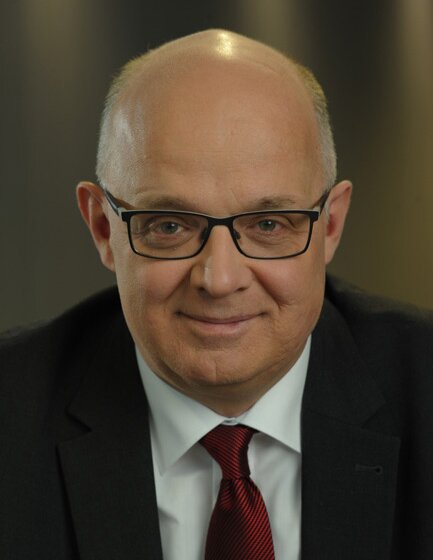
Berndt KOERNER
Deputy Executive Director
European Border and Coast Guard Agency, Frontex
Austria
Berndt Koerner was born on 21 April 1961. He graduated in Law at the University in Graz. He started his professional career in 1991 as a civil servant working in the Aliens Department in the government of the province of Burgenland. In 1994, Mr Koerner became a legal expert in Austria’s federal chancellery. Two years later, he joined the Ministry of Interior, where he was a member of a team preparing Austria’s accession to Schengen. At the ministry, Mr Koerner worked with Austria’s neighbors on improving border control, leading to the signing of bilateral agreements and opening of new border crossing points. He later headed the Ministry of Interior’s department responsible for general security matters and then the department responsible for migration, visa matters and legal aspects of border control.
During the Austrian EU Presidency in 2006, Mr Koerner chaired the Council Working Groups “Schengen evaluation” and “Frontiers”. In 2010, he joined the Council of the EU, where he worked as a seconded national expert for Schengen evaluation until 2013. For nearly two years before taking up his post at Frontex, Mr Koerner served in Albania as an expert on Integrated Border Management at PAMECA IV, an EU funded technical assistance project that assists key Albanian law enforcement agencies by offering expertise drawn from EU Member States.
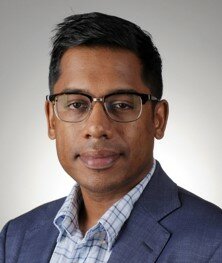
Dr Shashi JAYAKUMAR
Head, Centre of Excellence for National Security (CENS), S. Rajaratnam School of International Studies (RSIS)
Nanyang Technological University
Singapore
Dr Shashi Jayakumar assumed the appointment as Head, Centre of Excellence for National Security (CENS) on 1 April 2015, and the appointment of Executive Coordinator, Future Issues and Technology on 1 Aug 2017.
Dr Jayakumar was educated at Oxford University where he studied History (BA 1997, D.Phil, 2001). He has published in various peer-reviewed journals and edited volumes on topics relating to medieval history (the focus of his doctorate). He was a member of the Singapore Administrative Service from 2002-2017. During this time, he was posted to various Ministries, including the Ministries of Defence, Manpower, Information and the Arts, and Community Development, Youth and Sports. He was from August 2011-July 2014 a Senior Visiting Research Fellow at the Lee Kuan Yew School of Public Policy. His research interests include extremism, social resilience, cyber, and homeland defence. He is currently completing a major book project relating to local (Singapore) politics (forthcoming, National University of Singapore Press, 2019).
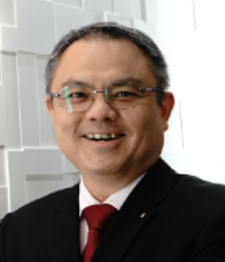
Hong-Eng KOH
Global Chief Public Safety Scientist
Huawei Technologies Co Ltd
China
Mr. Koh leads a global team of public safety scientists, experts and business architects in Huawei to support this major business segment. His team engages top public safety agencies globally to help them with high level ICT design to better counter evolving threats. With nearly 30 years of policing experience in both operational and ICT, Mr. Koh is a thought leader in Public Safety & Justice on the use of ICT in enabling and even differentiating agencies for a safer city and nation. Mr. Koh is a well sought after speaker internationally and is well regarded in evangelizing the “It takes a Network to Fight a Network” principle in countering crime, terrorism and disaster. In 2014, he created the “Social-Enabled Policing” concept: policing in the age of social networking and crowd-sourcing. In 2016, Mr. Koh authored the paper, “The Road to Collaborative Public Safety”; it’s the concept of Public Safety in the age of Digital Transformation. With his frontline policing experience and deep ICT knowledge, Mr. Koh helps customers to better understand their future challenges, trends, requirements and best practices.
Mr. Koh received a scholarship from the Singapore Police Force (SPF) and graduated from the National University of Singapore with an Honors Degree in Mathematics. He joined SPF after graduation and held various appointments including senior investigation officer, head of crime prevention and community policing, police spokesman, and divisional head of operations and training. His last appointment was as head of the Computer Systems Division. Outside his work in Huawei, Mr. Koh is a Vice President of the Society for the Policing of Cyberspace (POLCYB), an international nonprofit society that promotes global partnerships with international criminal justice and corporate agencies to combat and prevent cyberspace crimes. He is also on the expert panel of the Geneva based Global Initiative Against Transnational Organized Crime. From 2014-2016, Mr. Koh was a visiting researcher at the China Public Security University. In 2014, Mr. Koh was voted by the USA based Security.World as the world’s top 12 market influencers in physical security and video surveillance. Mr. Koh also obtained his MBA with Distinction from the University of Leeds (UK) and a Specialist Diploma in eCommerce from the Nanyang Polytechnic (Singapore).
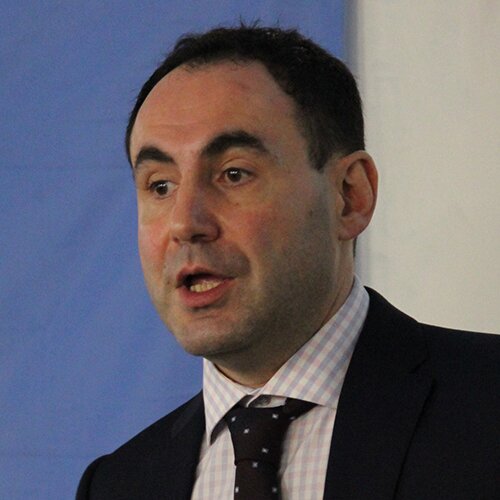
Irakli BERIDZE
Head, Centre for Artificial Intelligence and Robotics
United Nations Interregional Crime and Justice Research Institute (UNICRI)
United Nations
Mr Irakli Beridze is heading the UNICRI Centre for Artificial Intelligence and Robotics with the objective to enhance understanding of the risk-benefit duality of AI through improved scientific and technological coordination, knowledge collection and dissemination, awareness-raising, global outreach activities from the perspective of crime prevention, justice and security.
Since 2014, he initiated and managed the first United Nations Programme on Artificial Intelligence and Robotics. He also initiated and organized number of high-level events at the United Nations General Assembly, and other international organizations. He found synergies with traditional threats and risks as well as identifying solutions that exponential technologies such as AI can contribute to the achievement of the United Nations Sustainable Development Goals (SDGs). He is responsible for initiating and organizing training, educational and mentoring programmes worldwide on AI and Robotics for wide range of stakeholders.
Irakli is a member of various international task forces and working groups, advising governments and international organizations on numerous issues related to international security, scientific and technological developments, emerging technologies, innovation and disruptive potential of new technologies, particularly advances in automation, on labour markets and on the jobs of the future. He is frequently lecturing and speaking at the leading forums worldwide on the subjects related to technological developments, exponential technologies, artificial intelligence and robotics and international security.
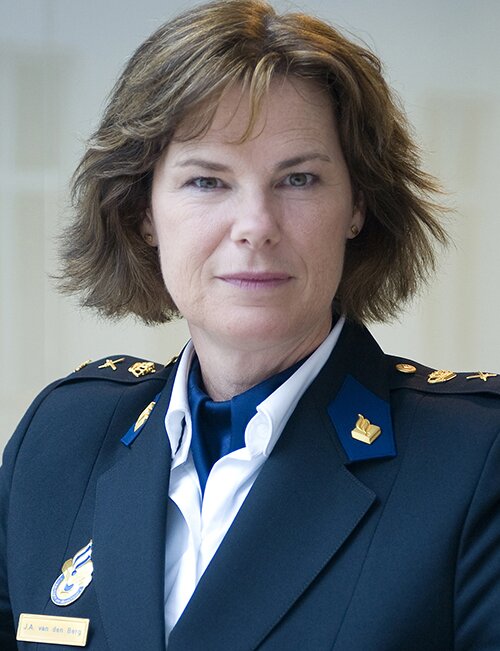
Jannine VAN DEN BERG
Chief Constable, Central Division
National Police and INTERPOL Executive Committee Delegate for Europe
The Netherlands
Ms Jannine van den Berg took on her present position as Chief Constable of the Central Division of the Netherlands Police, after working since 2013 as Deputy Commissioner for the newly formed national police. The National Police of the Netherlands consists of 10 Regional Divisions, 1 Central Division and the Police Services Centre (PDC). In addition to its own independent tasks, the Central Division also carries out specialist tasks in support of the Regional Units and amongst others supporting and coordinating major operations; combating organised (inter)national crimes (National Detective Squad), mounted police, sniffer dogs, forensic expertise; VIP protection; police work on the motorways, the railway network, on them water and in the air; combating all forms of serious violence and terrorism (Special Interventions Division).
Ms Van den Berg has been with the police since 1986 after studying with the Netherlands Police Academy. Her first position was assigned senior police official for the city of Utrecht. She held various leading positions with the Regional police services. Among others: Squad Commander and Section Commander Riot Squad, Director of Criminal Investigation and Information in the Hague and Chief Constable in the Haarlem area. She was representative of the Works Council and Regional Consultations for a police union for intermediate and senior police officers and is presently chairperson of the Interpol European Committee.
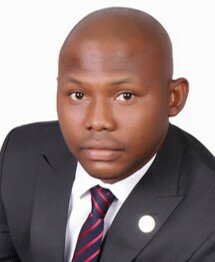
Jerry Innocent AKUBO
National Technical Officer and Drone Expert
Nigeria Police Force (NCB Abuja)
Nigeria
Hinged on the four walls of Law Enforcement since the inception of his career till date Jerry started working with the Nigeria Police Force since 2003 as a Technical officer attached to the Inspector General of Police.
In 2007 he was deployed to the INTERPOL Section of the Nigeria Police Force to manage the technical expansion and implementation of OASIS Africa Project sponsored by the German Government to strengthen the NCE and extend the INTERPOL 24/7 database to relevant Law Enforcement Agencies within Nigeria. Jerry was subsequently recommended by the Nigeria Police for the position of National Technical officer for INTERPOL NCE Abuja and in 2010 this was fully granted. In the subsequent years, Jerry built strong practical expertise on the use of drone technology to detect crime investigate crime and interrogate crime both on and offshore.
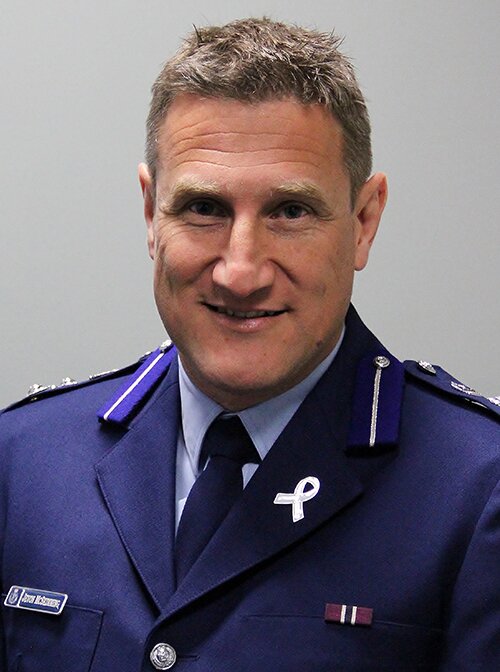
Jevon MCSKIMMING
Assistant Commissioner
New Zealand Police
New Zealand
Assistant Commissioner Jevon McSkimming, in charge of Service Delivery for New Zealand Police, responsible for the organization’s Infrastructure environment and Service Delivery. Prior to this he was the Chief Information Officer where he managed ICT Services for New Zealand Police. Jevon joined Police in 1996.
Starting his career in Auckland he completed front-line, Communications and Maritime roles before shifting to the far south as a rural and provincial sole charge officer.
An opportunity to re-write rural officers work terms and conditions saw him move to Wellington and was followed by transfer to the Royal New Zealand Police College to run the promotion courses for Sergeant and Senior Sergeant ranks. As Deployment Manager for Wellington District Jevon and his team played a key role in the model and process design for the New Zealand Police Prevention First Strategy.
Jevon’s interest in Service extends to the way Police consume its property portfolio and how they relate to police vehicles and ICT as a system that works together. The overarching strategy is about making great places to work, providing the communities technologies, services and buildings which allow Police to maintain a high level of confidence of the public.
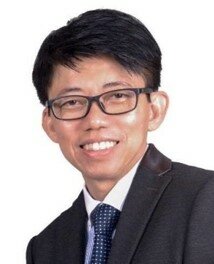
Walter LEE
Evangelist and Government Relations Leader
NEC Corporation
Singapore
Walter Lee is the Evangelist and Government Relations Leader at NEC Corporation. He provides leadership in advocacy and strategic partnerships with government agencies and strategic partners across the world for co-creation of innovative solutions for smart and safer cities. Prior to this, he was the Head of Innovation Management Office at NEC Global Safety Division.
Walter represents NEC at various UN Development Programme workshops and ASEAN technology forums for smart and safer cities.
He was the CEO of the e-Cop Group of Companies, Senior Vice President at the Agency for Science, Technology and Research, Singapore and Vice-President/Head of Consulting at IDC Consulting Asia Pacific and member of the IDC Worldwide Consulting Management Board. Walter was the Vice-President and Head of E-Commerce for the SIA Group.

Wee Lee LEE
Director, Cybersecurity
PwC
Singapore
Wee Lee is a Director with the Risk Assurance Practice of PwC Singapore. He spent 12 years in the Singapore Armed Forces in various command and staff roles, followed by 8 years in the Military Security Department (MSD) focusing on security policy, regulations, operations and assessment. During his time in MSD, he led the review of the use of mobile devices in the Ministry of Defence, with the department receiving the “Excellence in Public Service Award 2014 – Best Practice Award (Regulation)”. He then spent 3 years in ST Engineering in strategic planning and risk assessment for cyber security, with a focus in industrial control systems. In 2018, he participated in the review of operational and security vulnerabilities of Singapore’s existing electricity and gas transmission / distribution system. He also led a study to assess the security and operational aspects of mobile devices for Singapore’s new generation electronic road pricing system. In 2019, he conducted risk assessments of the industrial control systems within water plants for a water agency in Singapore. Wee Lee is a Certified Information Systems Security Professional (CISSP).
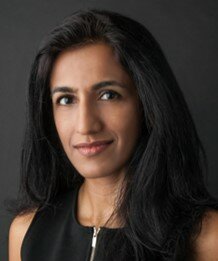
Dr Ayesha KHANNA
Co-Founder and CEO
ADDO AI
Singapore
Dr. Ayesha Khanna is Co-Founder and CEO of ADDO AI, an artificial intelligence (AI) solutions firm and incubator. She has been a strategic advisor on artificial intelligence, smart cities and fintech to leading corporations and governments. Ayesha also serves on the Board of Infocomm Media Development Authority (IMDA), the Singapore government’s agency that develops its world-class technology sector to drive the country’s digital economy and power its Smart Nation vision.
In 2017, ADDO AI was featured in Forbes magazine as one of four leading artificial intelligence companies in Asia and Ayesha was named one of South East Asia’s ground breaking female entrepreneurs by Forbes magazine in 2018. Her clients have included SMRT, Singapore’s largest public transport company; Singtel, Singapore’s largest telco; SOMPO, Japan’s largest insurance firm; Habib Bank, Pakistan’s largest bank; and Smart Dubai, the government agency tasked to transform Dubai into a leading smart city.
Ayesha is also the Founder of 21C GIRLS, a charity that delivers free coding and artificial intelligence classes to girls in Singapore, and founded the Empower: AI for Singapore national movement, which aims to teach all youth in the country the basics of artificial intelligence.
Prior to founding ADDO AI, Ayesha spent more than a decade on Wall Street developing large scale trading, risk management and data analytics systems. Ayesha was co-founder of the Hybrid Reality Institute, a research and advisory group established to analyze the social and economic impact of accelerating technologies. She directed the Future Cities Group at the London School of Economics, and has been a Faculty Advisor at Singularity University.
Ayesha has been named one of Singapore’s leading female entrepreneurs and a leading Asian fintech influencer by Fintech Asia. She also served on the Singapore Ministry of Education’s Steering Committee on future skills and applied learning for emerging industries. Ayesha has been recently profiled for her work in artificial intelligence in leading publications including Neue Zürcher Zeitung (Switzerland), Focus Magazin (Germany), Corriere della Sera (Italy), Dagens Næringsliv (Norway), Lëtzebuerger Journal (Luxembourg), Computer Sweden (Sweden), Information Age (Nordics), Peak (Cover Story, Singapore), and In The Black (Cover Story, Australia).
Ayesha is author of Straight Through Processing (2008) and co-author of Hybrid Reality: Thriving in the Emerging Human-Technology Civilization (2012). She has been published and quoted on technology, innovation and smart cities in The New York Times, BusinessWeek, TIME, Newsweek, Forbes, Harvard Business Review, Strategy+Business, and Foreign Policy. She has presented at major financial, technology and other industry conferences, provided high level government briefings, chaired symposiums such as AI Asia, and spoken at TEDx events.
She is an advisor to the startups Octa (a chatbot for young travellers) and Arro (a delivery robot for sports).
Ayesha has a BA (honors) in Economics from Harvard University, an MS in Operations Research from Columbia University and a PhD in Information Systems and Innovation from the London School of Economics.

Kristin KVIGNE
Police Commissioner, Head of the Policing Department
National Police Directorate
Norway
Ms. Kvigne is a graduate of the University of Oslo with a degree in Law. She has previously worked for the Child Protection Service and the Norwegian Directorate for Immigration. She served as a prosecutor for the Oslo Police District for six years until she began working for the National Police Directorate, International Police Cooperation Section. She worked at INTERPOL’s General Secretariat in Lyon, France from 2006 until 2009 as Assistant Director for the THB unit. During this period, she was also Acting Director of the department of Specialized Crime and Analysis for a period of one year. On return to Norway in 2009, Ms. Kvigne became Assistant National Police Commissioner and head of the International section, and from 2012 until 2013, she was Acting Commissioner head of the Police Department at the National Police Directorate. In May 2013, she was appointed head of the Police Immigration Service, a position she held until august 2016 when she took up her current post as head of the Police Development Department in the National Police Directorate. Ms. Kvigne also held the position as Acting Deputy National Commissioner from November 2018 until April 2019.
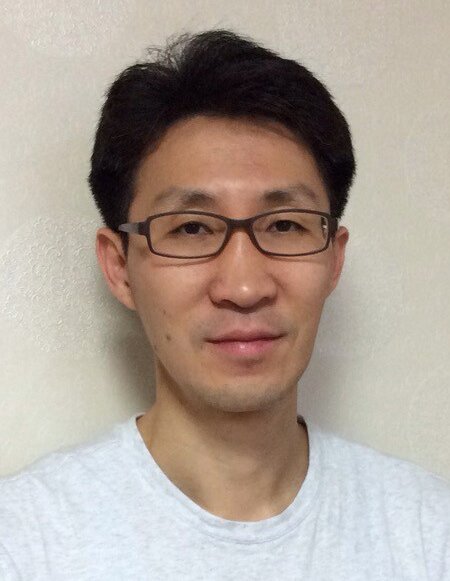
Dr Seungwon SHIN
Associate Professor, School of Electrical Engineering
Korea Advanced Institute of Science and Technology (KAIST)
Republic of Korea
Seungwon Shin received the B.S. and M.S. degrees in electrical and computer engineering from KAIST and the Ph.D. degree in computer engineering from the Electrical and Computer Engineering Department, Texas A&M University. He is an Associate Professor with the School of Electrical Engineering, KAIST (South Korea). Before joining KAIST, he spent nine years at industry, where he devised several mission critical networking and security systems. His research interests span the areas of software defined networking security, Internet of Things security, Botnet analysis/detection, and Darkweb analysis/measurement.
He has published more than 60 research/technical papers and 21 of them have been published at major notable conferences/journals (3 NDSS, 2 ACM CCS, 2 ACSAC, 2 DSN, 2 WWW, 2 IEEE TIFS, 2 IEEE/ACM TON, 2 RAID, 2 INFOCOM, 1 RTSS, and 1 IMC). His research work FRESCO (NDSS 2013) has been selected as the finalist of CSAW best applied security paper award, and his recent work DELTA (NDSS 2017) has won the best SDN solution showcase in SDN world congress. Recently he has published the Darkweb related research works at top-tier conferences, such as NDSS and WWW.
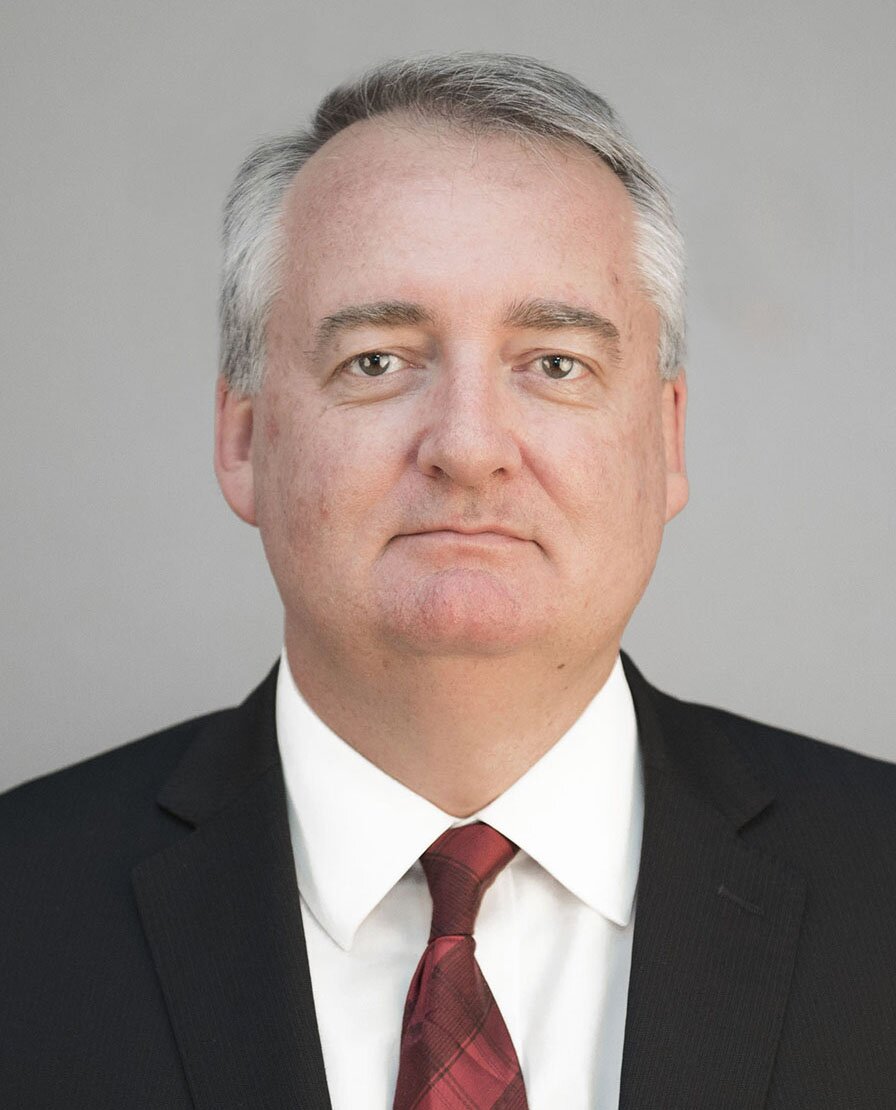
Tim MORRIS
Executive Director Police Services
INTERPOL
France
Seconded to INTERPOL in April 2015. Prior to this, served for 30 years with the Australian Federal Police. During his career, he worked in a variety of fields, including organised crime, counter narcotic operations, anti-money laundering, overseas liaison, counter terrorism, international operations, intelligence and high tech crime operations.
Appointed as the AFP’s first Director of Counter Terrorism (This included heading the Bali bombing investigation). Industry experience: Vice President of risk for a US multi-national based in Singapore. This regional position was responsible for risk and security across the Asia Pacific.
Involved in numerous change management projects. He has also enjoyed substantial involvement in international aspects of policing including the Asia Pacific Group on Money Laundering, Virtual Global Task Force and more recently chairing the Five Eyes Law Enforcement Group – Intelligence Advisory Group. Most recently, he was in responsible for the AFP’s cybercrime, child exploitation and technical surveillance programs.
The position of Executive Director Police Services reports directly to the Secretary General of INTERPOL and has direct responsibility for the delivery of counter terrorism, organised crime, cybercrime, support and outreach programs.
Holder of a Bachelor of Social Science (Justice Studies), Post Graduate Certificate of Business and a Masters of Intellectual Property Law. Awarded the Member of the Order of Australia in 2003 for his leadership of the Bali bombing investigation and the Australian Police Medal in 2010 in recognition of distinguished service.

Christian KARAM
Executive Director, CISO APAC
UBS AG
Singapore
Christian is the Chief Information Security Officer for APAC at UBS AG. Christian also oversees globally cyber threat intelligence, vulnerability management, threat modeling, reporting and analysis to provide the bank with risk awareness that inform and enable the timely understanding, mitigation and response to threats. Also in his role, Christian conducts security research and excellence activities in thought leadership specifically in the area of security and cybercrime.
Prior to joining UBS, Christian was the head of the cyber research laboratory and the lead cyber threat researcher at INTERPOL. He developed the activities in the fields of global cyber threat research, future trends analysis, cyber intelligence and R&D within the INTERPOL Global Complex for Innovation (IGCI). Prior to joining INTERPOL, Christian was an independent security researcher, penetration tester, and security consultant for several private sector firms.
Christian is a member of the INTERPOL Global Cybercrime Experts Group, a member of the BlackHat Review Board, an advisory member for the RSA ESAF and an accomplished public speaker covering highly rated security conferences, governmental events and think tank forums.
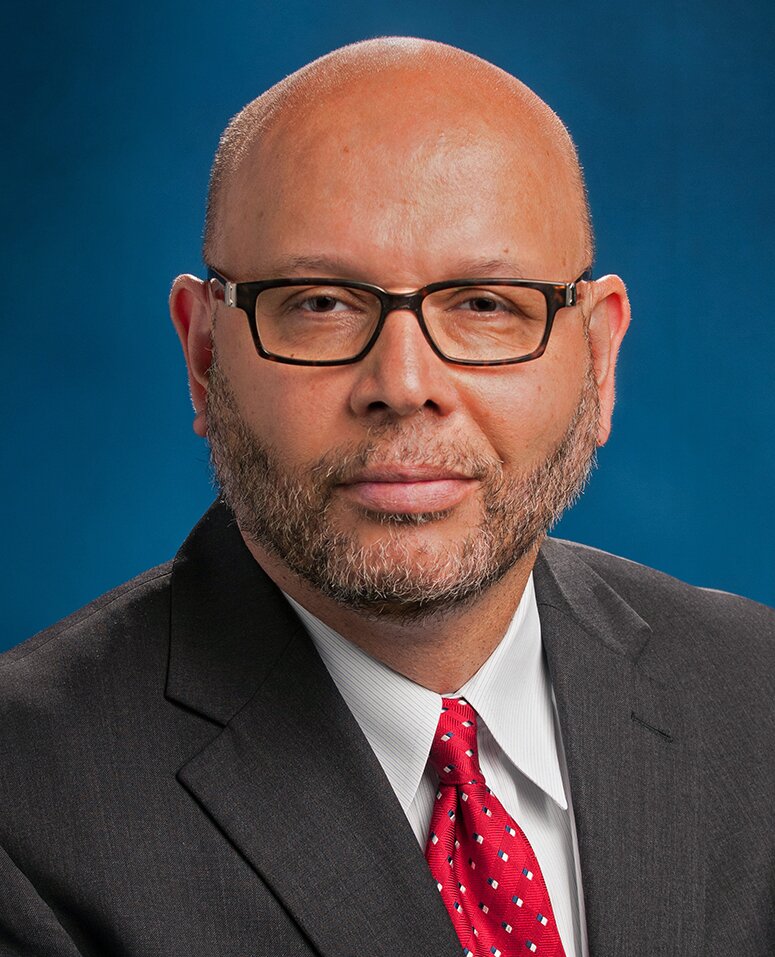
Wayne TOWSON
Senior Director, Global Security, Threat Intelligence and Information Sharing
Abbott Laboratories
United States
Wayne Towson is a seasoned technologist with a current role as a Senior Director within Abbott’s Global Security team responsible for threat intelligence and information sharing. Mr. Towson began his career with Abbott on April of 2017. Prior to arriving at Abbott Mr. Towson was the Chief Information Officer with INTERPOL Washington. Mr. Towson worked at INTERPOL Washington for twenty-two years with over sixteen years in Information Technology. The primary focus as CIO was integrating INTERPOL Border Security and Law Enforcement Systems and Cybersecurity and Law Enforcement Information sharing.
Mr. Towson is a graduate of the University Maryland, and holds a MSc in Information Technology Software Engineering and Cybersecurity Policy, Mr. Towson now resides in Chicago, Illinois.

ISACA Singapore Chapter
ISACA is an independent, non-profit, global association that provides practical guidance, benchmarks and other effective tools for all enterprises that use information systems. ISACA was previously known as the Information Systems Audit and Control Association, ISACA now goes by its acronym only.ISACA defines the roles of information systems governance, security, audit and assurance professionals worldwide. The COBIT framework and the CISA, CISM, CGEIT, and CRISC certifications are ISACA brands respected and used by these professionals for the benefit of their enterprises.
ISACA Singapore chapter is one of the 215 local chapters of ISACA that offer an opportunity to share a broad range of professional expertise from diverse business communities. ISACA Singapore chapter has more than 2000 registered members, the chapter is one of the very large local ISACA chapters in ASIA. The chapter sponsors local educational seminars and workshops, conduct regular chapter meetings, and help to further promote and elevate the visibility of the IS audit, control, and security/cybersecurity professional. ISACA Singapore also engages with local polytechnic as well as universities to spread awareness and equip fresh talent with the basic knowledge of information systems governance, security, audit, and assurance.

Singapore Cybersecurity Consortium
The Singapore Cybersecurity Consortium is a platform for engagement between industry, academia and government agencies to encourage use-inspired research, translation, manpower training and technology awareness in the area of cybersecurity. It is funded by National Research Foundation (NRF) and anchored at the School of Computing, National University of Singapore (NUS).
The Consortium membership is open to Singapore-incorporated companies with interest and expertise in cybersecurity. The Consortium brings them in close interaction with government agencies and research institutions across Singapore through activities such as Technology Talks, Cybersecurity Camp, Wild and Crazy Ideas Day, and regular Special Interest Group meetings to exchange knowledge and explore R&D cooperation opportunities. Resulting joint projects could be considered for seed funding by the Consortium.
For more information, please visit us at https://sgcsc.sg

Biometrie-Online.Net
Biometrie-Online.Net is a website in French language focused in biometric technologies. It is a platform for understanding biometric market and applications: physical & logical access control, law enforcement, border security, banking & finance, security, identity verification…
Biometrie-Online.Net provide: free information on biometrics: solutions, articles, industry news, legislation, useful links, related events calendar, press releases…
Biometrie-Online.Net also manage the biometric social network group on LinkedIn [ Biometrics Network & Forum ]

GS1 Singapore
GS1 Singapore is part of the not-for-profit GS1 organisation based in Belgium, Brussels with offices in 112 countries and is affiliated to the Singapore Manufacturing Federation.
GS1 Singapore has more than 2,000 member companies across multiple sectors and is working with organisations and public agencies to promote and drive adoption of standards, helping Singapore companies improve their competitiveness, operational efficiencies and supply chain management.
GS1 standards leverage on technology tools such as Barcoding, RFID and EDI, etc. to facilitate interoperability and provide supply-chain structure to industries including Retail, Food and Beverage, Healthcare, Transport and Logistics, Technical Industries and Financial Services, locally and globally.
Find out more at www.gs1.org.sg
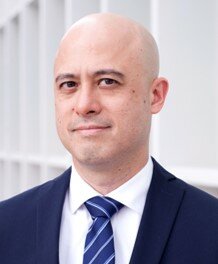
Dr Graham ONG-WEBB
Vice President, Head of the Future Technology Centre
ST Engineering (Formerly Research Fellow, RSIS)
Singapore
Dr Graham Ong-Webb is Vice President, Head of the Future Technology Centre, at ST Engineering. He was formerly a Research Fellow residing in the Executive Deputy Chairman’s Office at the S. Rajaratnam School of International Studies (RSIS), Nanyang Technological University, where he covered the Future Issues and Technology portfolio focusing on Industry 4.0 technologies. Graham has published in the Journal of Strategic Studies, The Journal of International Studies, Jane’s Intelligence Review, and World Defence Systems. He was previously Chief Operating Officer of the Future-Moves Group; Senior Consultant at Control Risks; and Managing Editor and Research Analyst at Jane’s by IHS Markit. A Commonwealth Scholar, Graham completed a multi-disciplinary PhD at the Centre for Science and Security Studies, King’s College London. He also read for this Master of Science in International Relations at the London School of Economics and earned a Bachelor of Social Science (with High Honours) in Political Science from the National University of Singapore.

Anton SHINGAREV
Vice President for Public Affairs
Kaspersky Lab
Russia
In his current role as Vice President of Public Affairs of Kaspersky Lab, Anton coordinates the company’s worldwide public policy agenda by managing both the company and the CEO’s cooperation and communications with national and international governmental bodies (UK, EU, etc.) and international public institutions and organizations (the United Nations, the World Economic Forum in Davos, Europol, INTERPOL, etc.), including coordinating participation in government-level events, programs and projects, and negotiating contracts and strategic alliances.

Christopher BRAND
Director and Country Manager
Axon Public Safety Northern Asia
Hong Kong
Chris is the Director for Axon Public Safety in Northern Asia and is based in Hong Kong, serving various law enforcement agencies within the region.
He is a Result-driven IT executive specializing in law enforcement technology and digital disruption. Chris has a proven track record of implementing innovative technology solutions and programs to deliver measurable improvement in operational efficiency and effectiveness within police agencies worldwide.
Chris Joined the Northern Territory Police Force (Australia) in 2001 and also served with the Australian Federal Police enjoying a long and successful career. His specialty areas include Body Worn Cameras, Facial Recognition, Unmanned Aerial Vehicles, and Conducted Electrical Weapons.
While serving with Police, he worked in the areas of General Duties, Intelligence, Investigations and Executive Leadership.
Chris is the recipient of several Police Commissioners Medals and many other awards and accolades from the digital world for innovation in law enforcement.
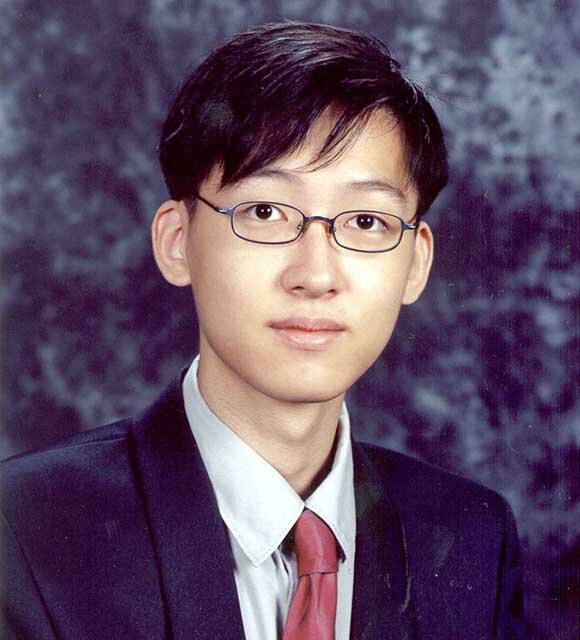
Dongwook KIM
Networks Technical Specialist
GSM Association
Republic of Korea
Dongwook Kim is a Network Technical Specialist in the Future Networks Programme of the GSMA. In the programme, he is responsible for facilitating the deployment of 5G for GSMA’s members and identifying innovations that can improve the economics of the network. He was the main editor of “Road to 5G: Introduction and Migration” whitepaper and is currently coordinating discussions on selected issues that involves the balance of market requirements and technical feasibility.
Before joining the GSMA, Dongwook worked as a research engineer in the department of technology strategy at KT, overseeing and formulating strategies in networks and next generation media. He represented KT in ITU-T in standardizing 5G and championed QoS (Quality of Service) work under the Focus Group on IMT-2020.
He holds a B.A. in Physics and M.Eng. in Management Science from Korea Advanced Institute of Science and Technology (KAIST). He is currently Ph.D. candidate in the Graduate School of Innovation & Technology Management at KAIST, specializing in management of innovation in the Information and Communications Technology.

Ged GRIFFIN
Senior Research Advisor, Centre for Disaster Management and Public Safety
University of Melbourne
Australia
Ged has been a member of Victoria Police Force for approximately 33 years and he has performed duties in general operations, disaster management, marine policing, criminal investigations, intelligence and counter terrorism operations. He has performed a wide range of international roles including duties at the UN Serious Crimes Unit (Timor Leste) and the Victoria Police Contingent Commander during peace keeping duties in East Timor.
Ged was involved in establishing the Victoria Police Counter Terrorism Coordination Unit and was the project manager responsible for introducing a digital radio network for Victoria Police.
Ged took leave from Victoria Police to establish and manage the Centre for Disaster Management and Public Safety at the University of Melbourne. He was a Visiting Fellow at the Australian Institute of Police Management and in 2017 he established the International Critical Control Room Alliance.
His qualifications include a Master of Arts (Police Practice), a Master of Professional Education and Training, a Graduate Certificate in Police Management and a Graduate Certificate in Criminal Intelligence. Ged actively researches new and evolving technologies that impact on police operations and is regularly invited to conferences around the world to speak about his work. He is currently completing a PhD at Melbourne University in regards to the next generation emergency management systems and procedures.

Gokul Krishna SRINIVASAN
Chief Technology Officer
Third Space Automation Oy
Finland
Gokul Krishna Srinivasan is the CTO of Third Space Automation Oy, a Finnish startup working on ground breaking technology related to autonomous aerial systems. He leads a team of 16 experts with a diverse background varying from full stack developers, to aerospace and robotics and AI experts.
In his previous role, Gokul was leading the computer vision team for a UAV startup, focusing on Intelligence, surveillance and reconnaissance applications. He was also involved in imparting STEM education for kids K through 12, and teaching robotics and AI to children with special needs. Prior to that, he also gained corporate industry experience from working for GE as a robotics engineer.
With a Master’s in robotics and electrical engineering, followed by an MBA, Gokul has been an active member of European AI Alliance, and CONFEDERATION OF LABORATORIES FOR ARTIFICIAL INTELLIGENCE RESEARCH IN EUROPE, AKA, CLAIRE, contributing to the ethics, policies and regulations in implementing AI for robotics and aviation industry.
As a passionate and responsible aviator, he is a licensed RPAS pilot and actively contributes to UAM/UTM policies and regulations at the capacity of a subject matter expert and has directly contributed to 4 patents that are currently under review.

Michael O’CONNELL
Vice President and Executive Advisor
NEC Corporation
United Kingdom
Executive with wide international expertise, diplomacy and cultural awareness.
Michael O’Connell has led a variety of organisational models within International, Governmental and Law Enforcement environs. Now active in Industry with NEC Corporation, developing enhanced technology led innovation between public / private sectors to address government and public safety concerns.
With over thirty years of policing expertise including holding the position of Director Operational Support and Analysis at INTERPOL headquarters in France, he is a specialist in threat / risk mitigation, big data, intelligence and analysis, threat identification, crisis response and disaster recovery. With wide ranging experience in tackling global / national security, organised crime, cyber and terror threats he also developed and implemented global border security solutions utilising best in class biometrics and technology, leading to threat reduction outcomes and protection of critical infrastructures.
He is the recipient of many international awards for his service to policing including:

Oleg GOROBETS
Security Evangelist
Kaspersky Lab
Russia
Oleg Gorobets has worked in the IT field for more than two decades. A former technology journalist and editor, Oleg also has extensive practical experience as an IT systems manager and administrator. As head of Kaspersky Lab’s Technology Positioning Unit, he was an evangelist for the company’s technologies and threat research expertise and a regular speaker at global events. He now brings this extensive experience to empower Product Marketing as a Senior Global Product Marketing Manager, while continuing serving as company’s spokesperson and security evangelist.
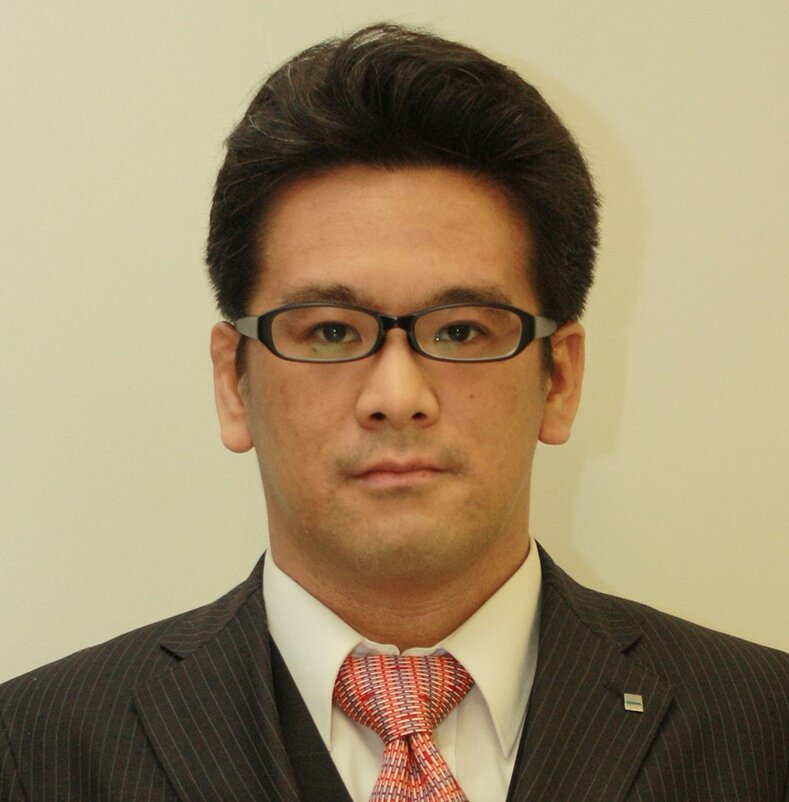
Tadahiko ITO
Research Engineer, Intelligent Systems Laboratory
SECOM Co., Ltd.
Japan
Tadahiko Ito is Research Engineer at SECOM CO., LTD., Intelligent Systems Laboratory. He studied the cryptography at University of Tsukuba for 10 years. His study was focused on theoretical proofs, elliptic curve cryptography, and quantum key transfer.
He joined SECOM CO., LTD., Intelligent Systems Laboratory in 2012. His main research field is cryptographic technologies and long-term key management. He had worked for building public root certificate authority, and also deploying cryptographies on IoT devices. His current focus is a cryptographic and security transition plan toward quantum computers era. He is also present at CA/BForum and IETF meetings.
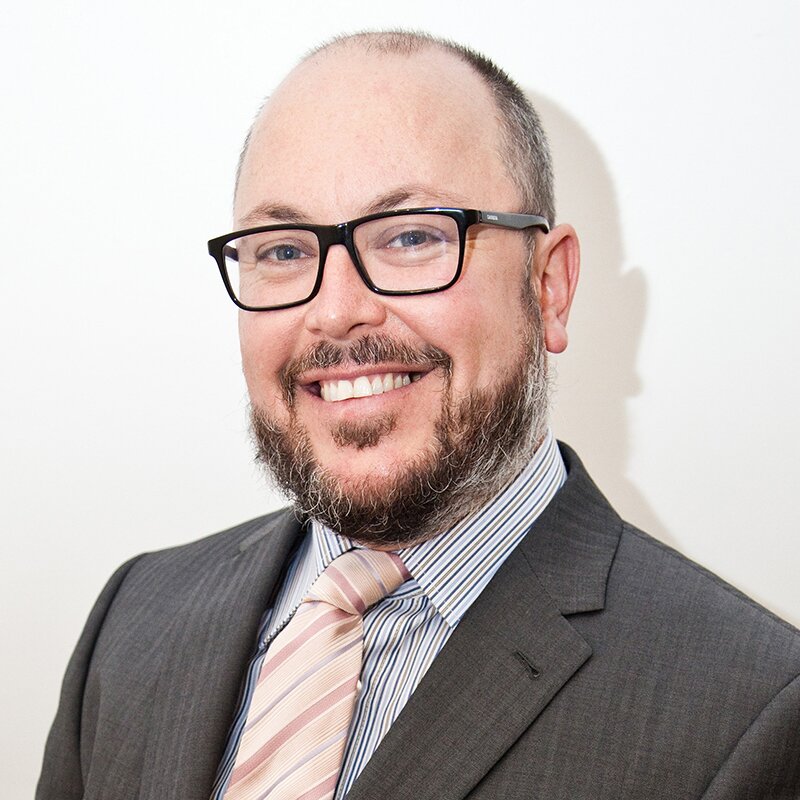
Dr Adam HENSCHKE
Senior Lecturer, National Security College
Australian National University
Australia
Adam is an applied ethicist, working on areas that cross over between ethics, technology and security. He is a senior lecturer at the National Security College (NSC) at the Australian National University. His research concerns ethical and philosophical analyses of information technology and its uses, military ethics and on relations between ethics and national security. He has published on surveillance, emerging military technologies and intelligence and cyberspace. He is also interested in moral psychology, experimental philosophy and their relations to decision making and policy development.

Paul REEDY
Forensic Advisor to INTERPOL
United States
Mr. Reedy is an Australian forensic scientist who commenced as a drug analyst and toxicologist in Australia’s capital. In 2002, after working in science and innovation policy, Mr. Reedy commenced with the Australian Federal Police, less than four weeks after the first Bali bombs exploded, to lead the Computer Forensic Team (CFT). This was the beginning of a transformational period for the AFP as Australia met the rapidly emerging challenge of international terrorism. He later went on to manage the whole of the AFP’s forensic capabilities. The CFT, and forensic science more broadly, were fundamental to the AFP’s ability to meet these challenges, particularly the growth in digital evidence which required innovative organisational responses. International engagement and sharing of forensic knowledge were critical aspects of the AFP’s mission. In 2013, Mr. Reedy and his family moved to Washington DC to be part of the startup known as the DC Department of Forensic Sciences (DFS) which reflected a new approach to forensic science for the United States. He is a member of the Organising Committee for triennial INTERPOL International Forensic Science Managers Symposium and author of the symposium’s review of digital evidence. Mr. Reedy recently moved to the private sector.
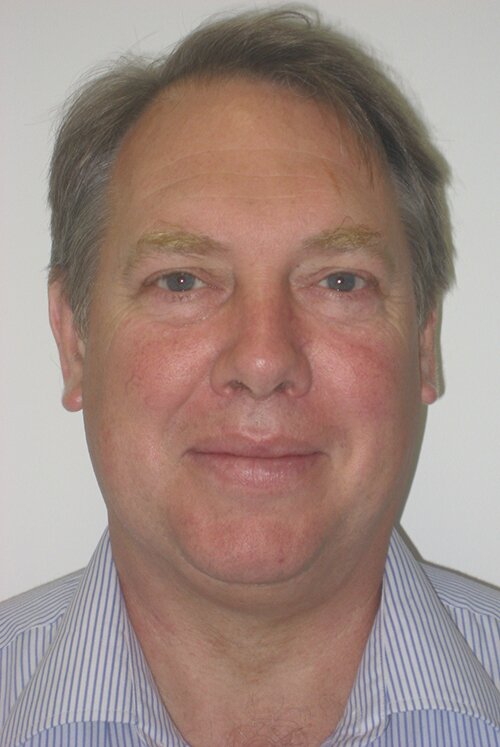
Peter BROWN
Change Manager, National Criminal Intelligence System Program
Australian Criminal Intelligence Commission
Australia
Peter was a sworn police officer with the Victoria Police Force for 18 years from 1989. He completed specialist training in investigations and intelligence and was promoted to specialist roles representing Victoria Police interests in the development of national ICT capabilities. In 2006 Peter was seconded to the CrimTrac Agency as the Nationwide Policing Advisor. In 2007 Peter joined the CrimTrac Agency as the Capability Development Manager. In 2011, Peter joined the management of the Australian Criminal Intelligence Commission (formerly Australian Crime Commission) where has taken on various roles focused on the development and deployment of new national ICT capabilities, including the current National Criminal Intelligence System (NCIS) Program.
Peter has facilitated national and international law enforcement events, including most recently a workshop involving senior executives from multiple Australian partner agencies in the development of a new National Maritime Strategy. This facilitation employed an agile approach, encouraging participation and collaboration between the various diverse agencies represented.
Peter holds a Bachelor of Arts (Police Studies), Graduate Certificate (Management) and a Master of Education (Leadership, Policy and Change). He is married, has four children and live in Canberra. As well as sailing, his interests are skiing, golf and travel.
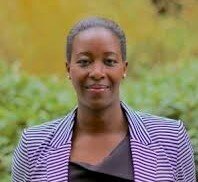
Gikui GICHUHI
Senior Principal Prosecution Counsel
Office of the Director of Public Prosecution (ODPP)
Kenya
Gikui W. Gichuhi is a Senior Principal Prosecution Counsel with the Office of the Director of Public Prosecution (ODPP) Kenya. She joined the Office in 2012 and has been involved in the prosecution of wildlife matters since, an experience of over 8 years. Ms. Gichuhi was one of the prosecutors selected in 2013 to establish a specialized Division to deal with the growing menace of wildlife poaching and trafficking, and spearhead an interagency approach in combating wildlife trafficking. Further, she has experience in prosecuting criminal matters both in the lower and superior courts. As part of the Executive Secretariat in the ODPP she has had experience in formulating policy for the ODPP, engaging development partners in collaborative projects and organizing capacity building efforts with stakeholders.
As a member of the ODPP Standing Committee on Law Reform she is a focal point with the Attorney General’s office and Parliament to review criminal laws and legislation affecting criminal processes in the country. She participated in the development of the UNODC guide on Drafting Legislation to Combat Wildlife Crime and has been a resource person in various regional and international forums. She is currently the Chair of the Standing Committee Intercessional Working Group on Wildlife Cybercrime at CITES.
Ms. Gichuhi has a Bachelor of Law (LLB) Degree from the University of Nairobi, a Master’s in International Law (LLM) from the University of Hull, Master’s in Animal Law from Northwestern School of Law at Lewis and Clark College and has successfully completed the Chartered Secretaries Qualifying Scheme(CSQS) with the Institute of Chartered Secretaries and Administrators-ICSA. She is a believer in the rule of law and the need for effective interagency cooperation within the criminal justice sector.
Chris Cubbage
Director & Executive Editor
My Security Media Pty Ltd
E: [email protected]
T: +61 8 6465 4732
Ms Maria Beatriz Rojo
Appointed marketing agent for Philippines
E: [email protected]
Transnational and Organized Crime (TOC)
Criminals adoption of technology – How can law enforcement keep up?
TOC groups respect no geographical or legal boundaries. Driven by profit and power, they exploit any available opportunities for their means, creating a myriad of threats to vulnerable communities worldwide and to the planet. For example, they utilize social engineering and other strategies, to steal, extort, blackmail and terrorize throughout the techno ecosystem. TOC groups are the early adopters of emerging technologies and commonly use enhanced methods of encrypted communication, anonymous networks and the routing of illicit funds, which poses increasing challenges for an efficient law-enforcement response. How can the law-enforcement community keep up with these rapidly evolving threats and mitigate the actions of TOC groups?

Harald ARM
Director, Operational Support and Analysis
INTERPOL
France
With more than 20 years policing experience with the German Bundeskriminalamt (BKA) and internationally, Mr Harald Arm was appointed new Director Operational Support and Analysis (OSA) in September 2017.
Holding post graduate degrees in economics, police management and public administration, Mr Arm is responsible for the support of law enforcement officers in 24/7 investigations and crisis response, which include police forensics, new identification technologies, police data management, analysis, fugitive investigative support and border management as well as the development of new policing capabilities.
Prior to this role at INTERPOL, Mr Arm led since August 2016 the Strategic Planning Directorate & the INTERPOL 2020 Initiative, coordinating the activities in relation to the implementation of Secretary General Stock’s reform agenda.
Before joining INTERPOL’s General Secretariat, Mr Arm was responsible for the performance and development of strategic IT products in the BKA.

Cheryl CHUNG
Co-Director, Executive Education Department, Lee Kuan Yew School of Public Policy
National University of Singapore
Singapore
Cheryl is the Co-Director of the Executive Education department at the Lee Kuan Yew School of Public Policy, National University of Singapore. Together with a team, she is building the futures research and teaching capabilities at the School with the “Future Ready Singapore” project. From 2015 to 2018, Cheryl headed the School’s Strategic Planning team. As part of her teaching responsibilities, she curates the Lee Kuan Yew School Course, a core module for new Masters students that asks the big questions of public policy, using Singapore as an illustrative case study.
Before joining the School, Cheryl worked in the Singapore Government where she led futures projects across several ministry portfolios for 8 years. She entered the world of public policy futures as part of the pioneer team for the Ministry of Trade and Industry’s Futures Group. There, she led projects exploring the industry development potential of trends such as big data, and 3D-printing. After MTI, she moved to the Strategic Policy Office, under the Prime Minister’s Office, where she co-led the Emerging Strategic Issues Project v2.0 and led research work on the Evolving Role of the State. She also designed, developed, and delivered their in-house training programme, Futurecraft, focussing on foresight communication. Cheryl’s most recent ministry posting was to the Ministry of Transport where she helped to start the Ministry’s futures team and led the development of their policy framework for Autonomous Vehicles.
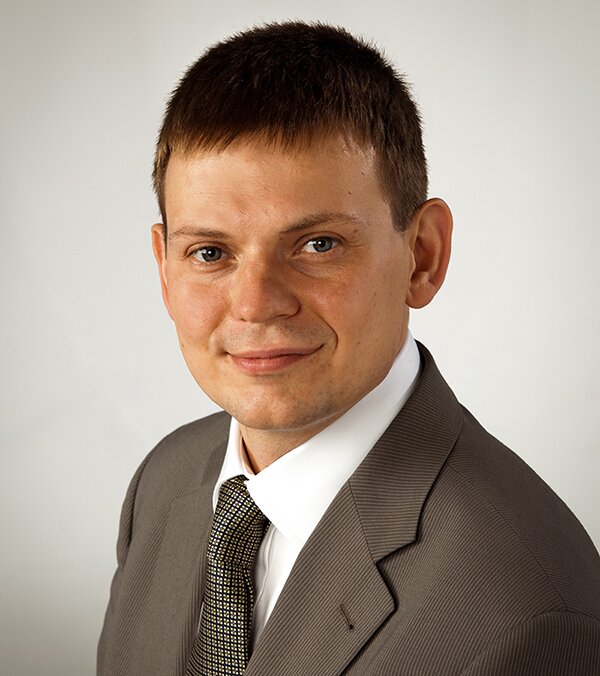
Dr Pavel GLADYSHEV
Director, Digital Forensics Investigation Research Lab
University College Dublin
Ireland
Dr Gladyshev has been working with the Law Enforcement since 1998 when he designed the first cybercrime training course for Irish national police force. He joined University College Dublin as a faculty member in 2005 and directed the development of UCD’s MSc in Forensic Computing and Cybercrime Investigation that became an international success story with over 150 law enforcement students enrolled annually. Dr. Gladyshev founded Digital Forensics Investigation Research Laboratory (DigitalFIRE) in 2007 and established UCD’s MSc programme in Digital Investigation and Forensic Computing for the private sector in 2009.
Dr Gladyshev serves as an invited expert to INTERPOL Global Cybercrime Expert Group and works part-time as a director consultant in the litigation support technology division of Grant Thornton Ireland. He is the cybercrime department editor for the IEEE Security and Privacy Magazine and participates in the production of several other academic journals in the field of digital forensics and cybercrime investigation. In 2014, Prof. Gladyshev was elected to the board of directors of DFRWS.org a US not-for-profit organization dedicated to the promotion of digital forensics education worldwide.

Dr Bernhard HASLHOFER
Senior Scientist, Digital Insight Lab
Austrian Institute of Technology
Austria
Dr. Bernhard Haslhofer works as a Senior Scientist at the Austrian Institute of Technology’s Digital Insight Lab. Previously, he was an EU Marie Curie Fellow at Cornell University Information Science (NY, USA) and a Postdoc at the University of Vienna from where he also received his Ph.D. in Computer Science. He also holds master’s degrees in Economics and Computer Science. He usually works in multidisciplinary settings to which he contributes methods drawn from fields like Machine Learning, Network Analytics, or Information Retrieval and Text Mining. At the moment, he primarily works on novel methods for analyzing the structure and dynamics of cryptocurrency ecosystems, with a special focus on Post-Bitcoin cryptocurrencies such as Monero or Zcash.

Gilles MICHAUD
Deputy Commissioner
Royal Canadian Mounted Police (RCMP) and INTERPOL Executive Committee Delegate for Americas
Canada
Deputy Commissioner Gilles Michaud is a career police officer with more than 33 years’ experience as a proud member of the Royal Canadian Mounted Police.
In November 2018, he was elected to the INTERPOL Executive Committee as Delegate for the Americas Region.
During his service, D/Commr. Michaud acquired a wealth of experience in specialized investigative units under the Federal Policing remit.
As D/Commr. of the Federal Policing Program, he leads the program responsible for investigating the most sophisticated criminal trend and activities that impact Canada and Canadians internationally, including transnational organized crime, national security and cybercrime.
D/Commr. Michaud is committed to excellence in law enforcement leadership and management. He is a graduate of the FBI National Executive Institute’s 39th Session, the FBI National Academy’s 213th Session, and the Leadership in Counter-Terrorism Program administered by the FBI National Academy. He is also a graduate of the Harvard Kennedy School Executive Program in National and International Security and McGill University’s Executive Development Program.
He is the recipient of numerous awards, including the Governor General’s medal for academic achievements, the Queen’s Jubilee and RCMP Long Service medals. In January 2014, D/Commr. Michaud was also appointed Officer of the Order of Merit of the Police Forces.

Mark P. PFEIFFER
Chief Visionary Officer
SAIL LABS Technology GmbH
Austria
Educated in Germany and the United States in economics and aeronautics, he has spent almost two decades consulting in those two fields and works in many nations across the globe, primarily in Europe, Africa, Asia and the Middle East.
His clients include various international government bodies as well as governments and participants of the air transport system.
He is also a contributing member of ACARE (http://acare4europe.org) in the working group on safety and security.
In 2003 Mark Joined SAIL LABS and has since built up the government partner network and business, spanning most of the globe. He encourages and acts as an active link between the research environment of the company and customers, involving them in the development of new products and features.
In 2006 he co-founded the EUROSINT forum as a venue for exchange of ideas and concepts. He currently still holds the chair in technology gaps on board.
His training in the OSINT domain are highly customized to the clients’ needs and he can draw from many years of customer interaction.

Karene SAAD
Head of Strategic and Business Planning
INTERPOL
Canada
Karene Saad holds a Masters of Science (MSc) degree in Applied Organizational Psychology from St. Mary’s University, Canada; and a Doctorate of Philosophy (PhD) in Experimental Psychology from the University of Ottawa, Canada.
She has been working in the law enforcement field for more than 15 years and has held various senior executive positions within the Royal Canadian Mounted Police, Canada. She is currently posted to the INTERPOL General Secretariat in Lyon, France where she leads the Department for Strategic & Business Planning.
Karene has a solid research and strategic background in the security and intelligence field. She has led various teams in the development of a wide range of strategic, policy, intelligence and operational products; including the development of tools that allow for operational and strategic decision making.

Toufi SALIBA
CEO
Toda.Network
United States
Co-authored TODA protocol, a communication layer with cybersecurity by design. Toufi is a globally renowned expert and speaker with special focus on the intersection of Cryptography, and AI. Toufi is a serial technopreneur, built 15 startups, failed 11 times, succeeded 3, some ended up at Google, HP and his last AI startup became an Intel company (not yet an exit). Toufi served ACM global chair PB CC (ACM #1 in computer science globally 100,000 elite members). Toufi is also an invited speaker at several global organizations such as WIC, UN, ITU, AiForGood, KBI, KIF a board member & advisor to several tech ventures, international organizations such as FSR/BPI and F500 companies.
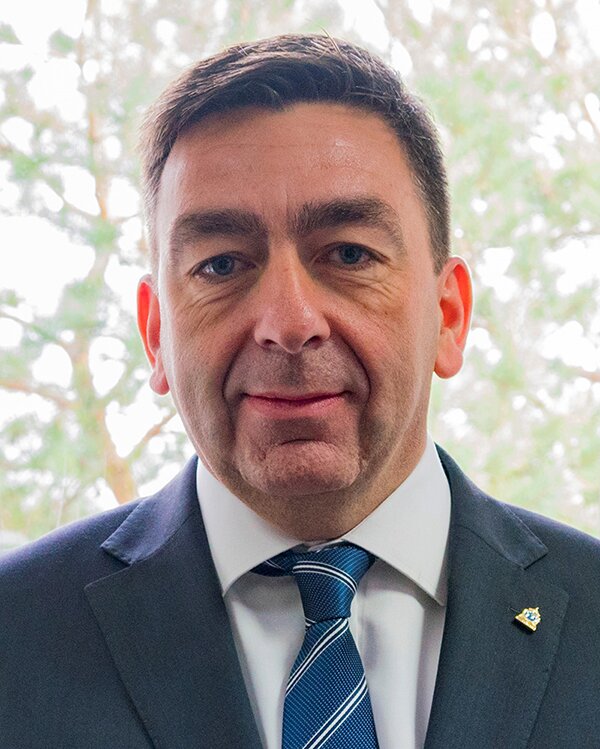
Paul STANFIELD
Director, Organized and Emerging Crime
INTERPOL
United Kingdom
In 2017, Mr. Stanfield was appointed INTERPOL Director of Organized and Emerging Crime responsible for leading and directing the global, strategic and operational response to tackling Criminal Networks, protecting Vulnerable Communities and disrupting Illicit Markets.
Mr. Stanfield joins INTERPOL on secondment from the UK National Crime Agency. He is a seasoned police officer with over 27 years of experience in strategic, tactical and operational matters primarily focused on serious and organized crime. He has trained as a Senior Investigating Officer, Gold Commander for Major Events and Operational Commander for specialist operations.
Mr Stanfield has had several overseas postings in Europe and Africa. This included setting up multi-functional, cross agency crime teams to tackle a variety of national, regional and trans-national security threats, ranging from specialist child protection teams to organized crime and anti-corruption units.
Mr Stanfield has a degree in Applied (Criminal) Investigations, Distinction in Policing (Covert Human Intelligence Source), CMI Certificate in Strategic Management and Leadership and successfully completed the Police International Strategic Leadership Programme.
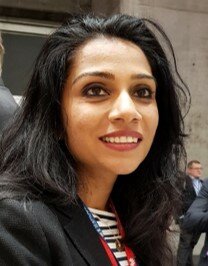
Arshia VARLET
CEO
Third Space Automation Oy
Finland
Arshia is the founder and CEO of Third Space Automation Oy with offices in London, Bangalore and Helsinki. Third Space Automation is an SME creating AI systems in the drones and robotics space. Arshia is an experienced technology professional who has worked in the mobile and IT space with Nokia and Microsoft over the last ten years. Arshia is a member of a number of EU wide initiatives focused emerging mobility systems including the recently formed Urban Air Mobility consortium and the European AI alliance. Arshia is a frequent speaker on topics involving AI and ethics, human-centric intelligent systems and the experience of being a non-technical founder creating deep tech start-ups. Arshia is an avid supporter of women in technology and evangelises the importance of encouraging girls to enter the STEAM stream where arts also play a significant role. Arshia has two children and lives in London.
Cybercrime
How can we change our rules and regulations to allow us to investigate cybercrime and what outcomes could we expect?
A new paradigm, in which government and law enforcement efforts to tackle the cybercrime and disrupting cyber criminals is very intermittent and has been portrayed as ineffective by media and various community interest groups. With a low cost of entry and little risk of prosecution, traditional organized crime groups are turning to cyber as a more attractive option for illicit gains in an environment of reduced risk. Collectively we need to change our approach, and shake off some of the challenges, and limitations that prevent us from effectively tackling cybercrime. An evolution is needed globally to change policy, legislation and regulation to be more effective in this digital age and to protect the e-commerce and global markets. We need to safeguard communities from cybercrime – but we also need to boost societies’ ability to be proactive in their own approach to cyber security. Could we see a global Court for Cyber that defines a framework of operations for an independent global law enforcement agency to address this menace in the future? Or what other strategies should we focus on?

Singapore Logistics Association
Established since 1973, Singapore Logistics Association (SLA) envisions representing Singapore logistics with a mission to promote professionalism and excellence of the logistics industry.
As a trade association and strong fraternity advocate, its membership of 599 business entities offers a diverse scope of logistics and logistics ancillary support services.
SLA fulfills its objects in close collaboration and engagement with logistics companies, academia, trade associations, business partners, government agencies, international organisations and professionals.
SLA contributes to logistics capability building through its training arm, The Logistics Academy, a registered Private Education Institute that offers quality training and lifelong learning for the logistics workforce.
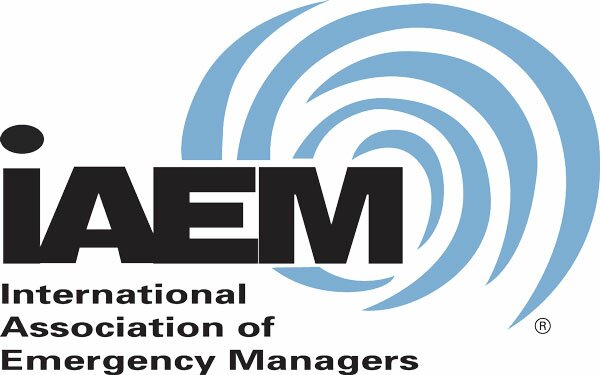
International Association of Emergency Managers
IAEM is a U.S.-based non-profit organization of emergency management professionals representing communities, public-sector disaster officials, private sector enterprises, non-governmental organizations and independent professionals in emergency planning, response and management. IAEM’s Certified Emergency Manager® program is the leading international credential for emergency professionals in the public and private sectors. Please visit www.iaem.org for more details.
Annual membership in IAEM provides access to the largest global network of emergency experts, many of whom can provide advice and assistance. IAEM publishes an electronic and print monthly newsletter and funds annual scholarships in emergency management. IAEM’s Annual Conference & Exhibit occurs in November each year in the United States.
IAEM is pleased to support INTERPOL World 2019 as part of IAEM’s expansion of its membership into Asia.

Asia Blockchain Review
Asia Blockchain Review is the largest initiative for media and community building in Asia for blockchain technology.
It aims to connect all blockchain enthusiasts on a regional scale and facilitate the technological foundation of blockchain through a range of group discussions, technical workshops, conferences, and consulting programs.
Our goal is to cultivate and encourage a collaborative community for our members to gather, share their experiences and endeavors in the blockchain space, and brainstorm the potential uses of blockchain technology.”

ASEANAPOL
ASEANAPOL is an ASEAN National Police, a Secretariat, a database / library, appointed with budget focused on networking and annual communique & operation.
The first formal meeting of the Chiefs of ASEAN Police was held in Manila, Philippines on the 21 to 23 October 1981 to
discuss matters of law enforcement and crime control. This annual meeting was called ASEANAPOL Conference.
The basic requirement to become a member of ASEANAPOL is that the country of the applicant needs to be already a member of ASEAN and needs to apply to the conference.
In 1984, Royal Brunei Police join the conference for the 1st time. In 1996, The Republic of Vietnam National Police join the conference and in 1998, Laos General Department of Police and Myanmar police force join the conference. In 2000, Cambodia National Police join the conference
The current members of ASEANAPOL are Brunei, Cambodia, Indonesia, Lao People Democratic Republic, Malaysia, Myanmar, Philippines, Singapore, Thailand and Vietnam.
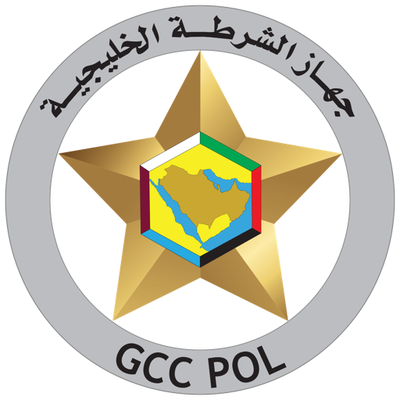
Gulf Cooperation Council Police Organization (GCCPOL)
The Gulf Cooperation Council Police Organization (GCCPOL) is an administrative organization of the General Secretariat for Security Affairs. It aims at developing and strengthening cooperation and coordination in the field of internal security and combating crime in all its forms. It also works to develop security cooperation between the police forces in the GCC countries, in order to protect their people and societies from the dangers of crime. In addition, GCCPOL coordinates with relevant regional and international organizations to exchange expertise.

Kim Jong Yang
President
INTERPOL
Professional Experience
| 2018~2020 | President, INTERPOL Executive Committee |
| 2015~2018 | Vice President, INTERPOL Executive Committee |
| 2012~2015 | Delegate, INTERPOL Executive Committee |
| 2014 | Commissioner, Gyeonggi Provincial Police Agency |
| 2013 | Director General, Planning and Coordination Bureau, KNPA 2012 Commissioner, Gyeongnam Provincial Police Agency |
| 2011 | Head of INTERPOL NCB Seoul Director General, Foreign Affairs Bureau, KNPA |
| 2010 | Director General, National Security Department, Seoul Metropolitan Police Agency |
| 2009 | Director General, Students Guidance Department, KNPU |
| 2007 | Police Attache, the Korean Consulate General in LA, USA 2005 Assistant Secretary, Information and Policy Monitoring Office, Office of the President, R.O.K. |
| 2004 | Chief, Seoul Seongbuk Police Station |
| 2001 | Chief, Ulsan Jungbu Police Station |
| 2000 | Director, Public Security and Traffic Affairs Division, Ulsan Metropolitan Police Agency |
| 1999 | Chief, Gyeongnam Gosung Police Station |
| 1995 | Section Chief, Intelligence Division III, KNPA |
| 1993 | Head, Investigation Division, Pusan Jungbu Police Station |
| 1992 | Head, Anti-crimes Division, Pusan Nambu Police Station |
Education
| 2004 | Graduate School, Dongguk University, Ph.D.(Police Administration) |
| 1996 | Graduate School of Public Administration, Seoul National University(MA) |
| 1985 | Graduated Korea University, BA(Business Administration) |
Qualifications
| 1985 | Passed 29th Senior Civil Service Examination |
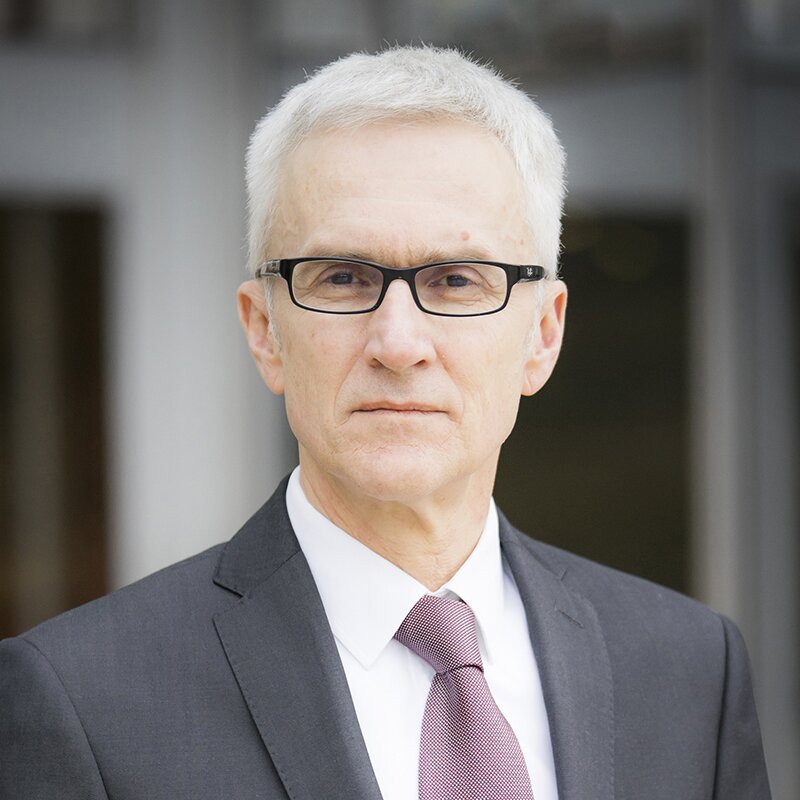
Jürgen Stock
Secretary General
INTERPOL
Jürgen Stock was unanimously elected as Secretary General of INTERPOL in November 2014 to serve a five-year term. Previously a Vice-President of Germany’s Federal Criminal Police Office (BKA), Mr Stock has more than 35 years of policing experience, with more than half of his career in a leadership role.
A proponent of good governance and strategic management, Mr Stock has a proven commitment to international policing through his participation on the boards of several European forums, the Global Initiative against Transnational Organized Crime and the Pearls in Policing think tank.
Mr Stock was a Vice-President of Germany’s Federal Criminal Police Office (BKA) from 2004 to 2014, before which he held several leadership positions within law enforcement development institutions, including Head of the Institute of Law Enforcement Studies and Training of the BKA, and President of the University of Applied Police Science in Saxony-Anhalt.
Following his election to head INTERPOL, Mr Stock launched the INTERPOL 2020 initiative to review the strategy, priorities and activities of the Organization, and became the first INTERPOL Secretary General to address the United Nations Security Council.
As part of the comprehensive reform and modernization agenda of INTERPOL 2020, Mr Stock has implemented some important changes to enhance INTERPOL’s policing capabilities to more effectively tackle the priority crime areas of counter-terrorism, cybercrime, and organized and emerging crime.
Prior to becoming Secretary General, Mr Stock was a Vice-President of INTERPOL’s Executive Committee from 2007 to 2010 and has chaired working groups on financial and strategic development matters. Mr Stock is of German nationality and holds a PhD in Law.
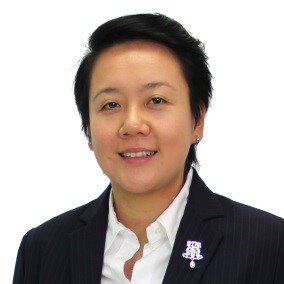
Denise LIM
Partner, Risk Assurance
PwC
Singapore
Denise is a Partner with PwC Singapore working in the Financial Services Industry Practice. She has over 15 years of experience working with multiple financial services clients, particularly Private Banks and Banking and Capital Markets, with specialised Financial Crime Compliance and Advisory skills. She focuses on Anti-Money Laundering (KYC/CTF) and tax related financial crime matters (including FATCA and Automatic Exchange of Information/Common Reporting Standards) as well as fraud risk and market conduct related topics (including Individual Accountability and Conduct).
Denise actively speaks at industry forums on AML/CTF as well as tax evasion related topics and is an active participant in industry working groups. She is an experienced team and project management leader who regularly leads large teams involving multiple international locations and has a great network in Australia and Asia. She spent 8 years in the PwC Australia firm and 2 years in the PwC Japan firm, working with leading banking and capital markets clients, both domestically and globally (specifically US, UK and Asia market). Denise is a member of the Institute of Chartered Accountants Australia and a Singapore Chartered Accountant and is also a certified member of the Association of Certified Anti-Money Laundering Specialists (ACAMS).
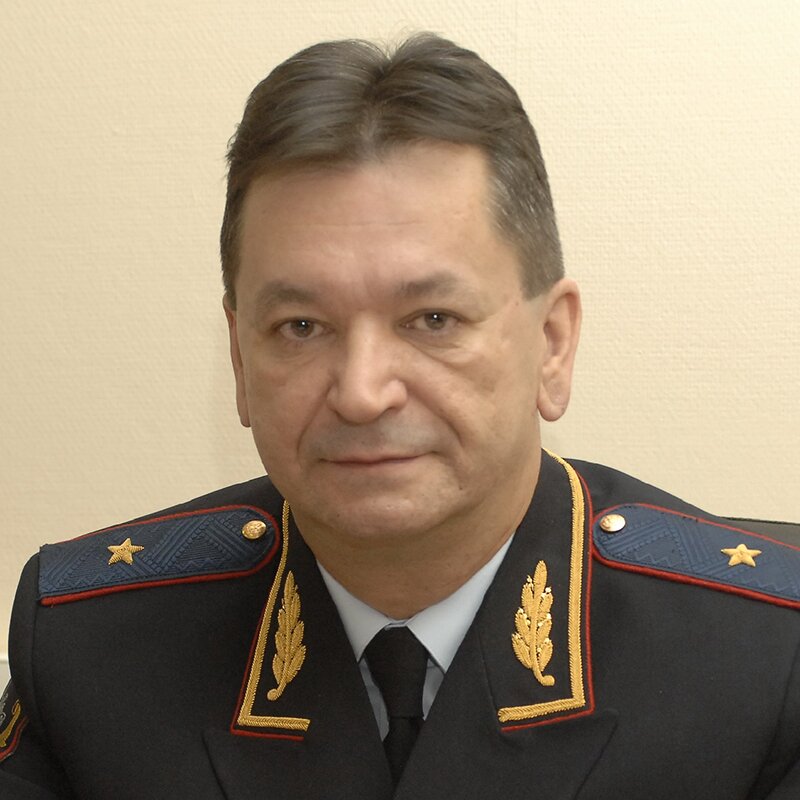
Police Major General Alexander PROKOPCHUK
Head of the National Central Bureau of Moscow and INTERPOL Vice President for Europe
Russia
Alexander Prokopchuk is a graduate of Kiev State University and the Russian State Tax Academy where he obtained his Law Degree. He has a PhD in Economics and is Associate Professor in the Theory of Economics.
A. Prokopchuk held high level positions in the Ministry of Taxation, the Federal Tax Police Service and the Ministry of Interior. During his professional career he developed Russia’s tax administration system, data protection policies and counter tax evasion strategies; specialized in asset recovery, criminal proceedings against tax evasion and in tackling financial and tax crime, corruption and money laundering.
In 2006 A. Prokopchuk was appointed Deputy Head of the Russian INTERPOL NCB, a position which included responsibility for the Russian Europol National Contact Point. In 2011 the Russian President appointed Alexander Prokopchuk Head of the INTERPOL National Central Bureau for Russia. High on his agenda as Head of NCB Moscow is the strengthening of international police cooperation to tackle transnational crime and thus boost national security and public safety. He personally coordinates the involvement of Russian law enforcement agencies in INTERPOL projects and operations.
In 2014 he was elected by INTERPOL’s General Assembly as delegate for Europe to INTERPOL’s Executive Committee, in 2016 – as INTERPOL Vice-President for Europe.

Dr John COYNE
Head of Border Security Program
Australian Strategic Policy Institute
Australia
Dr John Coyne joined ASPI as the Head of the Strategic Policing and law Enforcement Program in February 2015. John is currently the Head of Border Security Program of ASPI. John comes to ASPI from the Australian Federal Police, where he worked on transnational serious organised crime, national security, and counter-terrorism. Over the last twenty years he has been an intelligence professional at tactical, operational, and strategic levels across a range of military, regulatory, national security and law enforcement organisations. During this period he has worked extensively in the ASEAN region, delivering a range of bilateral research projects. His more recent work in this area has focused on enhancing multilateral ASEAN information exchange regarding non-traditional illicit commodity flows. John’s PhD examined strategic intelligence in law enforcement targeting transnational serious and organised crime. He has written and published on a range of border security and intelligence issues. He has been a Winston Churchill Fellow and a Vincent Fairfax Fellow. John’s border security research interests include intelligence, private/ public sector cooperation in the border environment and integration of border security operations.

Dr Andreas DEPPELER
Director, Data and Analytics
PwC
Singapore
Andreas is a Director at PwC Singapore focusing on digital transformation, data governance and risk management of emerging technologies, especially AI, data analytics, robotics and blockchain.
He partners with business and public sector entities in valuing data as a strategic asset and deriving insights from data analytics while protecting individual and community rights to privacy, security and safety. At PwC Singapore Andreas has been collaborating with government, business and academia to build trust frameworks for the data sharing economy. He is also part of global efforts to incorporate accountability, fairness and ethics into AI-assisted decision-making.
Andreas has lived and worked in Singapore since 2016, after 14 years of strategy consulting and banking in Europe and the US. He holds a Ph.D. in Theoretical Physics from Rutgers University and is a CFA Charterholder.
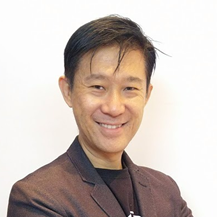
Shane CHIANG
Business Advisor
AntiHACK.me
Singapore
Shane is the Head of Marketing for APAC for HMD Global Oy, a mobile phone company based in Finland that develops Nokia branded phones. The company uses technology to enhance and improve the lives of billions of people around the world and is also a startup that achieved unicorn status within 16 months of launch. The launch reached 80 countries and brought in US$2.5B worth of revenue. Prior to joining HMD, Shane Chiang was previously the VP of Cities and also CMO of Honestbee, a fast pace on demand online groceries, food and lifestyle logistics and concierge services company, delivering within the hour through the use of technology. Shane also spent 5 years at HTC Corporation, a smartphone company as various global and regional lead roles and also part of the Global Marketing & Communications roles based in APAC. He also spent 10 years in China as the EVP of Sales and Marketing for OEM Electric Equipment, a small home appliance OEM/ODM manufacturing company based in China with distribution into Wal-Mart, Kmart, Target, Best Buy, Argos Catalog and Harvey Norman. Shane has over 23 years of sales, marketing and management experience.

Daoming ZHANG
Assistant Director, Illicit Markets
INTERPOL
China
Mr. Daoming Zhang is the Assistant Director for Illicit Markets in the INTERPOL Organized and Emerging Crime Directorate, leading INTERPOL’s Illicit Goods and Global Health Program and Environmental Security Program. As a high-ranking Chinese police officer with more than 25 years of law enforcement experience, Mr. Zhang has been working with INTERPOL for more than 10 years in different positions, previously as Drugs Coordinator, Assistant Director for Asia and South Pacific, and Regional Specialized Officer. Mr. Zhang holds a Master’s degree in law and is a visiting professor at the Chinese People’s Public Security University.
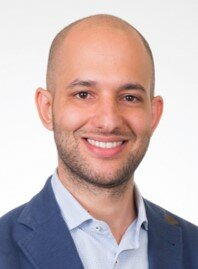
Assaf COHEN
CEO
Anqlave
Singapore
Assaf Cohen is an experience professional with over 15 years’ experience in the IT industry.
He relocated to Singapore 4 years ago, during his work at Verint Systems, to support the delivery of complex mega cyber security projects in APAC region. Verint Systems is a leading global provider of security and intelligence data mining software.
Since the beginning of this year, he’s the CEO of Anqlave, a Singapore based company that focuses on data privacy and data security risks included in the Blockchain and cloud space. Anqlave creates components that helps enterprises to adapt blockchain concepts but yet keep data privacy and solve data security issues included in the public Blockchain today.
He is an active supporter of Blockchain technology and he’s specifically interested in an enterprise applications.
Assaf enjoys traveling, fine food and football.

Lebeoana Jacob TSUMANE
Deputy National Commissioner, Crime Detection
South African Police Service
South Africa
Mr Lebeoana Jacob Tsumane is the Deputy National Commissioner of Crime Detection in South African Police Service.
He matriculated in 1988 at Kgauho High School Bloemfontein and furthered his studies as follows:
Internal Studies He have studied:
Career Position Summary:
Leadership Roles:

Dr Patrick VOSS-DE HAAN
Head of Cybercrime Research
Federal Criminal Police Office (Bundeskriminalamt, BKA)
Germany
Patrick Voss – de Haan joined the Federal Criminal Police Office of Germany (Bundeskriminalamt, BKA) in the year 2000 and is currently in charge of Cybercrime Research and the Central Science Service at the BKA.
His research in Cybercrime focuses on issues that extend beyond the technology level. Among these are, for example, the relevance of artificial intelligence for police and crime, virtual currencies and Darknet marketplaces, the analysis of damages of cybercrime, as well as specific methods such as the application of machine learning for the fight against child pornography. The research currently involves various national and international activities and relies on a close cooperation between police practitioners and scientists within the police as well as experts from the research community and industry.
Patrick is a frequent speaker at national and international police and research events. In the year 2017 he was invited to join the Academic Advisory Network of the European Cybercrime Centre of Europol and in the year 2016 Patrick was awarded the “International Police 9/11 Medal” by the International Airport and Seaport Police for his contributions in the area of science and technology to the fight against crime and terrorism.
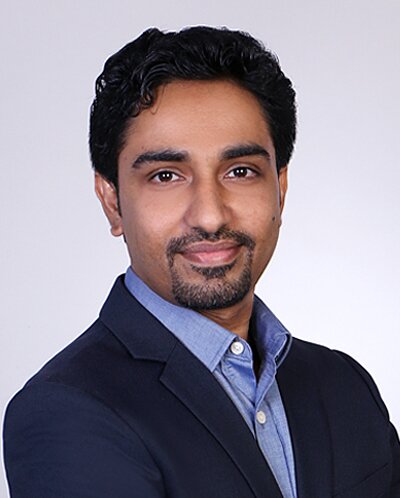
Bijoy BHASKARAN
Lead, Automotive Systems and Autonomous Driving, ASEAN
TUV-SUD Asia Pacific Pte Ltd
Singapore
Bijoy Bhaskaran is a technology evangelist with over 15 years of extensive experience in product engineering, strategy and embedded software development for automotive powertrain Electronic Control Units.
Bijoy joined TUV-SUD Singapore in 2018 as the lead for Autonomous Vehicles team within the Centre of Excellence, Digital Services and has since taken charge of the Autonomous Vehicles topics in the ASEAN region. His team of engineers specialised in autonomous vehicles testing include experts in functional safety, virtual methods and cyber security. The primary focus of his team is to develop methods to assess the operational safety and security of highly automated driving systems and connected vehicles.
As part of his role, he interfaces with different actors in the Autonomous Vehicle ecosystem, including researchers, regulators and AV developers locally as well as globally.
Bijoy is a system engineer and holds a degree in Mechanical Engineering. Prior to joining TUV-SUD, Bijoy worked with Robert Bosch on product development and end-to-end engineering in the field of Automotive Electronic Control Systems and has successfully executed projects across Germany, Brazil, India and China. He is passionate about innovation and has been an active contributor in three patents that are pending review.

Zsuzsanna FELKAI-JANSSEN
Head of Sector and DG Coordinator for Artificial Intelligence, DG HOME and Migration
European Commission
Belgium
Zsuzsanna Felkai Janssen graduated in law in Budapest in the Eötvös Lóránd University in Hungary in 1996. She has a master degree in Commercial and Competition Law from the King’s College London and she has also a master in European Studies in the University of Hamburg.
In 2002, she joined the General Secretariat of the Council of the European Union to assist the accession of Hungary to the European Union as a lawyer linguistic reviser. Since 2011, she has been working at the European Commission in the Directorate General Home Affairs and Migration. She has been in charge of the Schengen Information System, the largest EU law enforcement database, first as a lawyer and afterwards as a Head of Sector. Numerous initiatives have been adopted under her leadership for example in the field of terrorism and biometrics. She has initiated and negotiated the existing legal framework. Since 2018, she is heading a situational awareness sector concerning migration and her team is producing the most important migration situational awareness report of the European Commission in the area of migration. In addition to her migration related tasks, she has been appointed to the DG Coordinator for Artificial Intelligence to coordinate and lead the DG AI related initiatives.
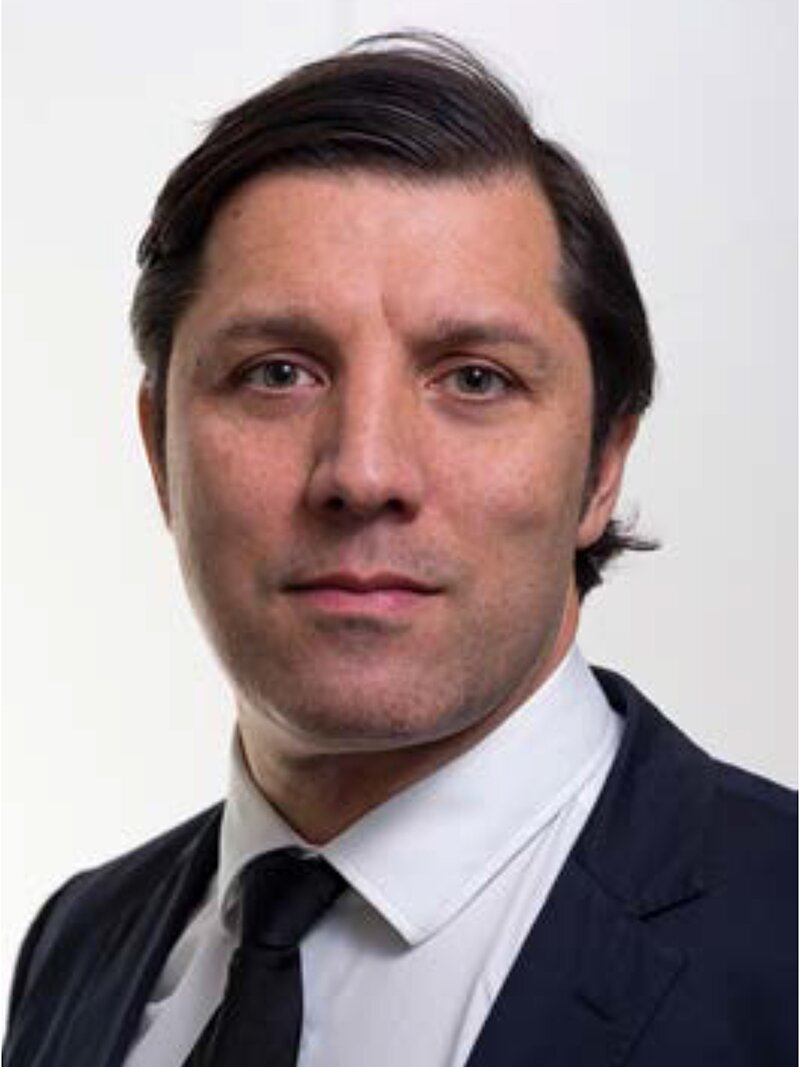
Krishna TANEJA
Director National Security
TNO
The Netherlands
Krishna Taneja (44) is Director National Security at TNO, the Netherlands Organization for Applied Scientific Research. TNO was founded by law in 1932 to enable business and government to apply knowledge. As an organization regulated by public law, TNO is independent. Within the Unit Defense, Safety and Security (100 million budget) of TNO, is Mr. Taneja responsible for development of knowledge in security and technology areas and the development of new applications to advance the national security. In that line, he’s also responsible for the innovations and technology development for security organizations such as the Dutch National Police, the Royal Netherlands Marechaussee, intelligence services, municipalities and ministries.
In 1998 Mr. Taneja joined the Dutch police force, serving in various positions. During his career (more than 20 years) at the Dutch police force, he has worked as a district chef and as a strategic political advisor for the Chief of the Dutch National Police. He is also visiting lecturer in crisis management at the Royal Netherlands Marechaussee and universities Mr. Taneja holds a Master’s Degree in Arts from the Dutch Police Academy and a Master’s Degree in Public Administration for the University of Leiden.

Matias HEILALA
Director, Innovation
PwC
Singapore
Matias has 16+ years of experience in developing and executing growth and performance improvement strategies across multiple industries. He has specialized in the use of data, analytics and research information for insight development, strategic business decision making and digital business leadership. Matias began his career in management consulting working at Accenture and Kaiser Associates for multi-national clients based in Europe, Americas and Asia. He later worked in the telecoms, media and technology industries for Vodafone Group, Comcast/NBCUniversal and the Singtel Group in various regional strategy development, M&A, and corporate development roles. He joined PwC Singapore in 2019 and leads business innovation and development for PwC’s digital innovation office. His industry experience covers telecoms, technology, media/entertainment, consumer goods, industrial products, and healthcare/pharmaceuticals.
Matias has a MSc degree in Economics and Business Administration from the Aalto University School of Business in Helsinki, and a BSc degree in Management from the London School of Economics and Political Science. Matias is originally from Finland, but has also lived in Germany, UK, and Malaysia and has now settled as a permanent resident of Singapore. He is married and has a 4-year old son.

TAN Shong Ye
Partner, Cyber and Digital Trust Leader
PwC
Singapore
Shong Ye has 23 years of experience in IT risk, security, data protection and audit. He has led hundreds of IT risk & security assessment, reviews, audits, testing, training, advisory and implementation assignments in Asia. His clients include the largest organisations in the region, e.g. Citibank, JP Morgan, Bank of China, Stanchart, DBS, OCBC, UOB, Temasek, SingTel SGX, Keppel, SIA, various government ministries/agencies.
He is the chairman of the Audit Committee for a healthcare organisation, member of IT steering committee for Assis Hospice and advisory committee member of School of Infocomm of Republic Polytechnic.
Shong Ye was an adjunct professor at the Singapore Management University. Shong Ye was a part-time lecturer for the IT audit and controls course for the MBA programme of the Nanyang Business School, Singapore. He was also a member of the Singapore IT standards committee, IT governance sub-committee. He is also the chairman of the Audit Committee for a healthcare organisation.
Shong Ye holds an MBA from the University of Chicago, and he is a trained engineer with two Masters degrees from France.

Amelia GREEN
Chief Digital Officer
PwC
United Kingdom
With over 25 years of experience, Amelia is a recognised innovation expert. She has led in excess of 200 executive level innovation initiatives, often embedded at the senior business levels to define and implement digitally enabled strategies, systems, and services with governments, and industry leaders globally. Her experience of working in the Department of the Prosecutor, with the International War Crimes Tribunal led her to realise the importance of the integrity of data.
Building on these foundations, she has become passionate about the power of data to transform. She has led the global omnichannel and enriched data strategies from idea to implementation with Fortune 100 companies, defined ecosystem partnerships to develop new data driven services for governments and global corporations. She built Accenture’s regional Consumer Data Driven Innovation Centre, fostering strategic connections with leading data driven institutions, CERN, IMD, the Future of Intelligence Institute, driving the ethical and responsible use of data in a rapidly changing digital world.

iCIO Community
iCIO Community is an Indonesian community of senior IT leaders and decision makers who come together to share their experience, knowledge and wisdom.
iCIO Community has been officially inaugurated by Rudiantara, Minister of Communication and Information Technology as the first IT community in Indonesia with legal entities. This community aims to social activities to support development of ICTs in Indonesia to extend economic opportunities to millions of people. One common contribution is that it increases productivity and makes government and society work more efficiently by utilizing ICT.
Our Mission is to become a premiere community of IT leaders and decision makers in Indonesia that share and leverage knowledge among members, collaborate to groom effective leadership skills, contribute to national IT capacity building, and partner for economic growth.
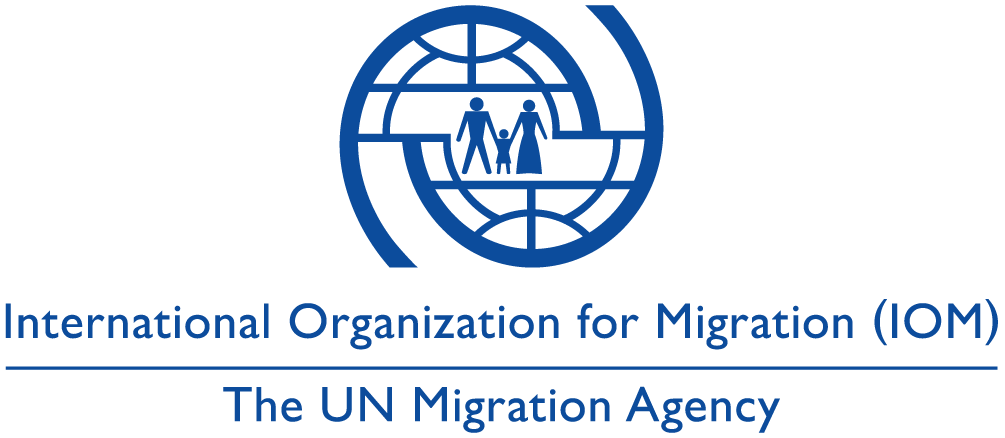
International Organization for Migration (IOM)
Established in 1951, IOM is the leading inter-governmental organization in the field of migration and works closely with governmental, intergovernmental and non-governmental partners.
With 173 Member States, a further 8 States holding observer status and offices in over 100 countries, IOM works to ensure the orderly and humane management of migration, to promote international cooperation on migration issues, to assist in the search for practical solutions to migration problems and to provide humanitarian assistance to migrants in need, including refugees and internally displaced people.
The IOM Constitution recognizes the link between migration and economic, social and cultural development, as well as to the right of freedom of movement. IOM works in the four broad areas of migration management: migration and development, facilitating migration, regulating migration and addressing forced migration.
Cross-cutting activities include the promotion of international migration law, policy debate and guidance, protection of migrants’ rights, migration health and the gender dimension of migration.

Olushola Kamar SUBAIR
Assistant Inspector General of Police Rtd
INTERPOL Executive Committee Delegate for Africa
Nigeria
Born in 1959, Assistant Inspector General of Police Olushola Subair had his tertiary education at the prestigious Université Paris VIII, St Denis France.
He started his Police career in 1986 as a Cadet Officer and rose to the rank of an Assistant Inspector General of Police before his retirement in February 2019. He served the Nigeria police in various capacities both locally and internationally. He worked as Operations officer, Crime officer, officer in charge of Administration at different times. He was also at the Lagos National Central Bureau between 1996 and 2004 and at different times headed the Administration Division, General Crime Division and Planning, Research and Statistics Division of the NCB. He also served as the Administration officer of the Training and Development Department of the Force before his deployment to the Nigeria Police Staff College Jos Nigeria as the Coordinator of Courses. His last deployment was as the Head of the National Central Bureau Abuja, a position he held for over three year until his retirement.
He has attended several trainings, conferences, seminars locally and internationally, both as speaker, resource person and participant. He has also participated in several United Nations, African Union and ECOWAS peace keeping missions. Presently he is the Delegate for Africa on the INTERPOL Executive Committee.
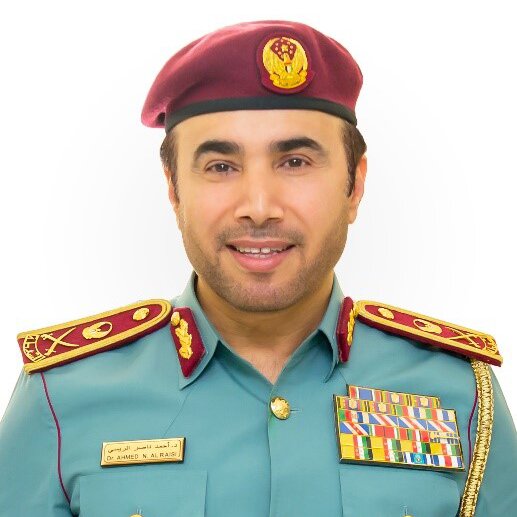
Major Gen Dr Ahmed Naser AL-RAISI
Inspector General, Ministry of Interior
INTERPOL Executive Committee Delegate for Asia
United Arab Emirates
Major General Dr Ahmed Naser Al Raisi is a leading UAE law enforcement officer and the current Inspector General of the Ministry of Interior, UAE.
Dr Al Raisi was involve by leading or supervising many successful strategic programs. Among these are the development of a UAE Search and Rescue team to earn UN recognition as Heavy SAR Team; implementation of IRIS recognition project, which has been upgraded and enforced with the latest technological innovations. In addition, there are other projects, which have been implement with the supervision or contribution of Dr Al Raisi, including the use of biometrics for disaster victim identification; GIS, e-order system; e-passport, facial recognition project. He has also contributed to the development of national ID card project and the establishment of Abu Dhabi Police Disasters Victims and Causality Bureau, which is link with the Interpol.
Major General Dr. Al Raisi has also taken the lead in the propagation of the emergency preparedness concept locally. He has been instrumental in paving ground for the establishment of an Emergency Medicine Academy (EMA) in Abu Dhabi Police GHQ. This particular project (EMA) has planned to be a joint project with the Disaster Medicine Section of Harvard Medical School to provide high quality education in pre-hospital emergency medicine and the paramedic training that prepares candidates to make a positive contribution to society.
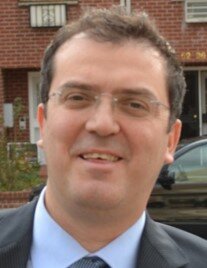
Dr Salih Hakan CAN
Professor of Criminology
Pennsylvania State University
United States
S. Hakan Can began his career in law enforcement in 1984. He earned a Bachelor of Science in Criminal Justice and Law from the Police University in Ankara, Turkey and another in Political Science (International Politics) from Ankara University. During his 18 years in the police force, he worked with Interpol, Turkish National Central Bureau, Central Anti-Smuggling Department, Drugs sub-division, and Fiscal Crimes sub-division. As part of police collaboration, he also worked for or joined the operations in Germany, Spain, Netherlands, Switzerland, Russia, Azerbaijan, Kosovo, Bosnia, Bulgaria, Romania, and Albania.
Dr. Can received his master’s in criminology from the University of North Texas and his Ph.D. in criminal justice and criminology from Sam Houston State University. During his Ph.D. studies in Texas, Dr. Can worked as research associate at Law Enforcement Management of Texas (LEMIT), the primary law enforcement training institute of the state of Texas. While he worked at LEMIT, he established a program called “Incident Command Simulation,” which received great recognition from the Department of Homeland Security.
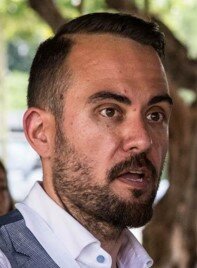
Dr John SWEENEY
Director, Qazaq Research Institute for Futures Studies
Narxoz University
Kazakhstan
John A. Sweeney is an award-winning futurist, designer, and author. He consults widely and has delivered keynote presentations, seminars, and training courses in over 40 countries on six continents. As a futurist, he focuses on the impact of new technologies, organizational strategies for surviving and thriving in an increasingly complex world, and transforming policy, planning, and strategy development processes by “using the future” as a resource. John has led, organized, and facilitated strategic planning and foresight projects for a range of clients, including numerous humanitarian and development agencies, security and police forces, government innovation units, and Fortune 500 companies. At present, John serves as an Assistant Professor of Futures and Foresight at Narxoz University where he is also the Director at the Qazaq Research Institute for Futures Studies. He tweets on trends, emerging issues, and all things postnormal at @aloha_futures.
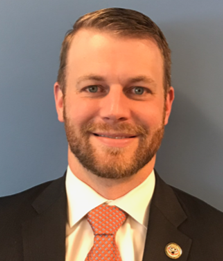
Derek BASSLER
Special Agent and Program Manager, Homeland Security Investigations (HSI)
U.S. Immigration and Customs Enforcement (ICE)
United States
Special Agent/Program Manager Derek Bassler has 12 years of federal law enforcement service in the United States of America. SA Bassler began his law enforcement career in 2007 as an Immigration Enforcement Agent and quickly transitioned to the Special Agent position within ICE’s Homeland Security Investigations (HSI) in 2009. SA Bassler has gained a wealth of experience and received numerous awards for his role enforcing everything from immigration laws to conducting child exploitation and long-term narcotics smuggling investigations.
In his current role as Program Manager with HSI’s Intellectual Property Rights Coordination Center (IPRC), SA Bassler is stationed in Pittsburgh, Pennsylvania as an IPRC liaison to the National Cyber-Forensics Training Alliance (NCFTA) which operates as a nonprofit partnership between private industry, government, and academia with the sole purpose of providing a neutral, trusted environment that enables two-way collaboration and cooperation to identify, mitigate, and disrupt cyber-crime. SA Bassler is assigned to the IPRC’s Intellectual Property Unit, Intel Section. In this role, SA Bassler is one of three Program Managers in charge of intake, vetting, and distribution of intellectual property crime and commercial fraud leads for the IPRC.

Janey YOUNG
Head of Team
Europol’s European Cybercrime Centre (EC3)
The Netherlands
Janey Young is a Team Leader in Europol’s European Cybercrime Centre (EC3) in The Hague, Netherlands. She is currently responsible for developing the European strategy for a co-ordinated law enforcement approach to tackling crime on the dark web. Janey has 22 years experience investigating a wide range of crimes, including those now committed via the darknets; drug and weapons trafficking, cybercrime, and economic crime. Her career started in the Crown Office and Procurator Fiscal Service where she was involved in investigating and prosecuting crime in Scotland. She then joined the United Kingdom’s National Crime Agency, the lead agency investigating organised crime in the UK. This enabled her to broaden her experience undertaking a variety of roles investigating serious and organised crime across international borders. Before transferring to Europol Janey was a Senior Manager in the United Kingdom’s National Cybercrime Unit (NCCU) responsible for the UK cybercrime Prevention and Industry Relationships strategies. This experience cemented her belief in the multidimensional approach that now forms the basis of the European strategy to reduce crime on the dark web.
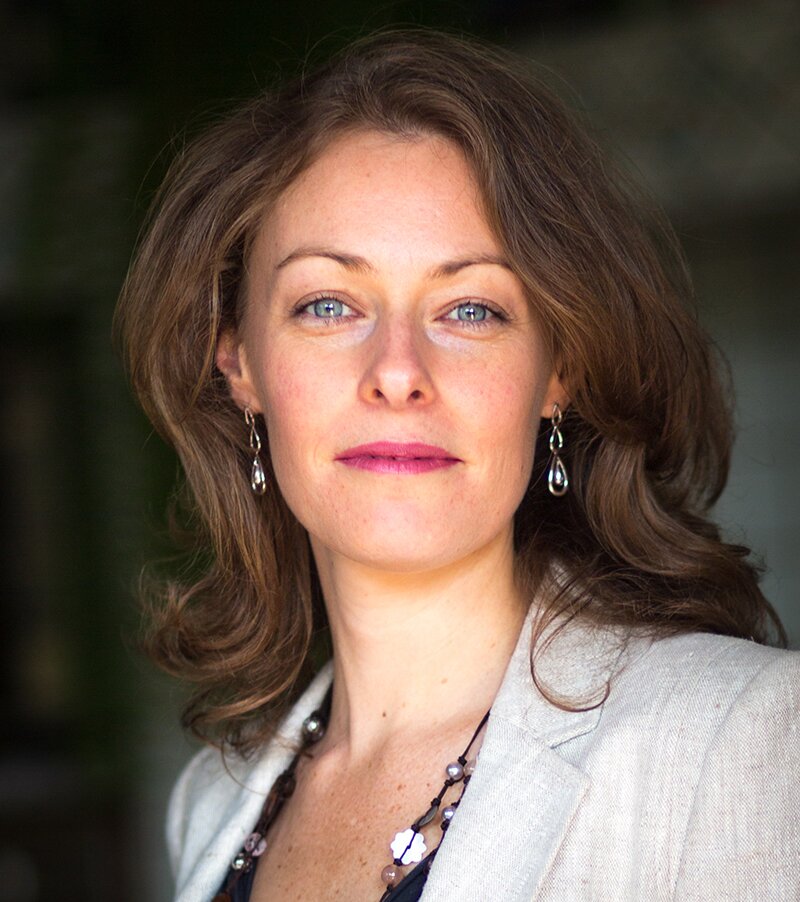
Brooke TAPSALL
CEO
DroneALERT & AGICS
Australia
Ms Tapsall has been a professional in the spatial science industry for 17 years, working around the world before establishing companies and initiatives that provide valuable services to security in the Drone Industry. Ms Tapsall is the founder and CEO of DroneALERT – a counter-UAV global drone reporting system and CEO of AGICS – a drone service and consultancy provider. Ms Tapsall has been awarded the prestigious ‘Women to Watch in UAS 2018’ award by Women and Drones. As an acknowledged Thought Leader in the drone industry, she sits on a number of European drone panels and working groups on drone regulations, standard practices and future directions. She is a qualified drone operator providing drone imagery to Government, research and private sectors.

Wouter VEENSTRA
Head Outreach and Partnerships
Global Forum on Cyber Expertise (GFCE)
The Netherlands
Mr. Wouter VEENSTRA started in 2015 as a Sr. Advisor at the GFCE Secretariat based in The Hague, the Netherlands.
In his current role as Head Outreach and Partnerships key responsibilities are to identify key stakeholders on Cyber Capacity Building, to connect them to the GFCE and to build bridges between donors, implementers and recipients for enhancing international cooperation on a broad range of cyber topics.
Wouter has an MA in Economic History from Leiden University, the Netherlands. Between 2001-2015 Wouter worked at the Dutch Ministry of Justice and Security.
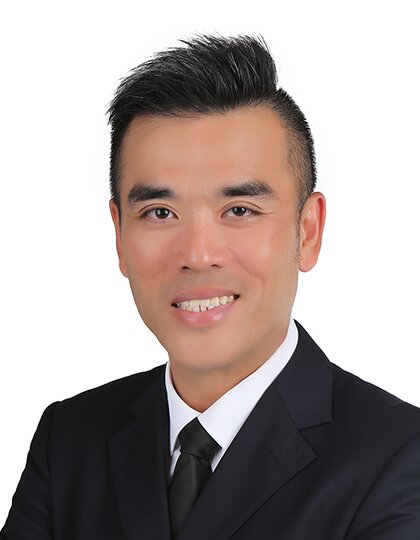
Terry LOO
Vice President of Sales, APAC
Cellebrite
Singapore
With more than 20 years of sales and management experience, Terry has successfully led and managed multiple teams in the telco and digital intelligence industry. Today, Mr. Loo leads a team of sales specialists at Cellebrite to develop digital forensics sales across the Asia Pacific region. Terry was the pioneer Cellebrite APAC employee in 2013. He has extensive experience working with multiple Intel and investigation units across Asia. His expertise is in the building and the creation of large-scale investigative platform for the modern law enforcement agencies. He is highly regarded in the region as a trusted adviser for various LEAs and he has vast experience which he could readily share with the wider security community.

Peter SHIP
Policing SME
SAS Institute Plc
Singapore
Peter had a notable 30 year career with the Metropolitan Police Service (MPS) as a highly successful detective most of his service was spent within New Scotland Yard’s Specialist Crime Directorate, managing intelligence led operations. His exceptional level of success has been recognised through the award of ten commendations.
During his last three years as a Police Officer, Peter led the strategic review of intelligence systems in London’s Metropolitan Police Force. This review led to major changes including the development and implementation of the SAS ‘intelligence platform’ across the organisation.
Since 2007, Peter has worked for SAS and now leads their ‘Intelligence and Investigation Management’ team in APAC. During this time, he has worked with a number of Police Forces and Intelligence Agencies across the world helping them to develop and maximise their intelligence systems, and providing him with a unique view of Best Practice in Managing Intelligence and Investigations.
Whilst based in Europe Peter was an active member of the Tech America, Security and Privacy Group representing major American Technology Companies in Europe. He was a member of the expert panel providing advice to the European Commission on proposed ‘Data Retention’ legislation.

Jeroen VAN VUGT
Director, Strategy and Innovation of the Commissioner’s Staff and Chief Innovation Officer
National Police
The Netherlands
Drs. J.L.J. (Jeroen) van Vugt is the Director Strategy & Innovation at the National Police. Before that, he represented the Ministry of Justice and Security as the Council in Washington DC. He was previously acting director of Strategy and Operations at the National Coordinator for Counterterrorism and Security and Deputy Director at the NCTb. Jeroen van Vugt has a background as a policy advisor and project manager at the Ministry of the Interior and Kingdom Relations and management consultant.
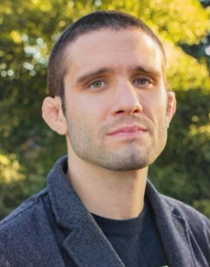
Daniel FAGGELLA
CEO and Founder
Emerj Artificial Intelligence Research
United States
Daniel Faggella is CEO and Founder of Emerj Artificial Intelligence Research. Emerj analyses the complete capability-space of AI in major sectors (banking, healthcare, defense, more), helping enterprise leaders make the best high-impact decisions on AI adoption and AI strategy.
Called upon by organizations like the World Bank, the United Nations, the OECD, and global pharmaceutical and banking companies, Daniel helps business and government leaders navigate the competitive landscape of AI capabilities, and build strategies that win.
Daniel has founded and sold two previous companies – including an Inc5000 eCommerce firm – and graduated from UPENN with a masters degree in cognitive science.

But KLAASEN
Head of Innovation Department
Ministry of Justice and Security
The Netherlands
Mr. H.M. (But) KLAASEN (1966) is head of the innovation department at the ministry of Justice and Security in the Netherlands, reporting directly to the secretary-general. He studied public administration and has extensive working experience in the policy fields of law enforcement, counter-terrorism and cybersecurity.
With a long track-record as project manager, he developed regulatory compliance strategies, realized the national counter-terrorism alert system, and put a code of conduct in place with the private sector on how to take down illegal websites.
As head of innovation his goal is to improve the innovative strength of the ministry and its executive services, and create a sustainable ecosystem for science & technology between the ministry and its public and private stakeholders.
For 8 years, Mr. Klaasen was also member of city council in Heemstede and chaired the local social-liberal democratic party.
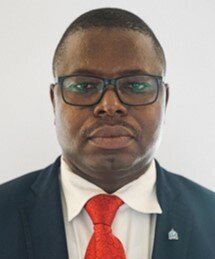
Deputy Commissioner Destino PEDRO
Head, National Central Bureau of Luanda, Angola, Criminal Investigation Service
INTERPOL Executive Committee Delegate for Africa
Angola
Mr DESTINO PEDRO “Nsevilu” is a Deputy Commissionaire in the Angolan Criminal Investigation Service, the Head of the INTERPOL National Central Bureau of Luanda, Republic of Angola and INTERPOL Executive Committee Delegate for Africa, since the 87th INTERPOL General Assembly, held in Dubai – United Arab Emirates in 2018.
He has extensive operational experience gained for the past 32 years on the official duty in the areas of Security and Law Enforcement. He started his career after graduating as cavalry officer at Military Academy Interarmy in the Republic of Cuba – 1988, serving as officer in the Angolan Army Force up until 1992. Then he migrated to the Angolan National Police, where he started a career in 1993 as a Police Detective, serving as Detective in the Department of Economic Serious Crime, former National Economic Crime Investigation Directorate for the Angolan National Police, and from 2004, he became a Senior Detective Trainer.
In 2009, the Deputy Commissioner DESTINO PEDRO was appointed as the Head of the Desk of International Cooperation for the Department International Relations at the Ministry of Interior, Republic of Angola.
In 2011, he was appointed as the Head of Criminal Investigation Training Department, at the Angolan Police College (ISCPC) – Luanda, where he conducted a deep reformulation on the Detective Training Curriculum to meet the regional and international standards.
Since 2013, he is the Head of NCB-Luanda, Repúblic of Angola, and in 2018, he was elected as INTERPOL Executive Committee Delegate for Africa.
He has among other Policing and Security Certificates and Diplomas, Degrees in Applied Linguistics – 1999 Angostino Neto University; Security Studies – 1999 (ESG – Luanda, Angola); and Master Degrees in Governance and Development – 2005 (University of Antwerp – Belgium), Master in Conflict and Sustainable Peace Studies – 2007 (Katholic University of Leuven – Belgium) and Diploma on Strategic Studies, at Angolan High Studies´ Miliatry Academy.

Dr Urszula MLODZIEJOWSKA-SEREDYN
Academic Teacher and Researcher
Radom Academy of Economics
Poland
Dr Urszula Młodziejowska – Seredyn, PhD of Law, graduated in 2004. Thesis written in the Institute of Penal Law of Warsaw University, entitled “Forgeries of passport documents between 1999-2001.Criminal problems.” Expert of documents’ verification of Polish Forensic Science Society. Working in Polish Border Guard HQs for almost 20 years now. Started as senior specialist in Law Office (HQs) – now Expert – Coordinator in Border Management Department and National Polish Border Guard Coordinator of Joint Cooperation Centres. From 2006 working simultaneously as an academy teacher in Academy of Security (Warsaw), Academy of Customs and Logistics (Warsaw), Academy of Defence (Warsaw) and now – Academy of Economics (Radom) giving lectures, active workshops and seminars on international law, internal security including migration, free movement of persons under EU Schengen Treaty and interoperability between forces and services. Started research on compensative measures after accession by EU MS Schengen Treaty, with the special view on the role of Joint Cooperation Centres established on EU internal borders, new technologies for border security and tendencies for modern border surveillance and threats.
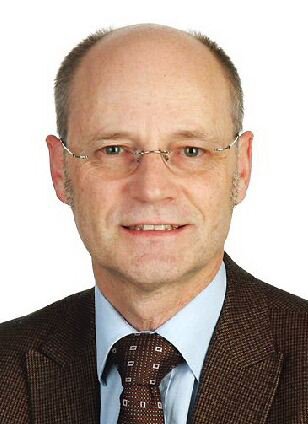
Dr Stefan BLÄTTLER
Commander
Cantonal Police Bern
Switzerland
Current Function
Commander of the Cantonal Police Bern since 1st August 2006
Language Skills
German, French, Italian, English
Working Experience
1983 – 1987 Assistant to the Chair of Criminal Law, University of Neuchâtel
1987 – 1988 Internship at UBS Bank in Geneva 1989 Officer at the Criminal Investigation Department of the Cantonal Police Bern
1993 Appointment as Chief Regional Police Seeland/Bernese Jura of the Cantonal Police Bern)
1995 Part-time Deputy Commander of the Cantonal Police Bern
2000 Appointment as Chief Planning + Intervention of the Cantonal Police Bern
2003 – 2006 Full-time Deputy Commander of the Cantonal Police Bern
2006 Commander of the Cantonal Police Bern
Institutions / Commissions
Since 2007 Member of the school board of the Intercantonal Police School Hitzkirch(IPH)
Since 2009 Strategic leader of the Desaster Victim Identification Team Switzerland
(DVI)
Since 2011 Member of the Police Foundation Switzerland
Since 2014 President of the Conference of the Cantonal Police Commanders Switzerland (CCPCS)
Since 2019 President of the Foundation Board of the Swiss Police Institute (SPI)
Teaching Activities
Since 1990 Activities as lecturer and Course Director at the Swiss Police Institute (SPI),
Neuchâtel:

Dr Michael SALTER
Associate Professor of Criminology
University of New South Wales
Australia
Dr Michael Salter is a Scientia Fellow and Associate Professor of Criminology at the University of New South Wales. He specializes in the study of complex trauma, including organized child sexual abuse and technologically-facilitated abuse. He is the author of two books, Organised Sexual Abuse (Routledge, 2013) and Crime, Justice and Social Media (Routledge, 2017), and a range of papers on child abuse and gendered violence. A/Prof Salter sits on the Board of Directors of the International Society for the Study of Trauma and Dissociation, who awarded him the 2018 Morton Prince Award for Scientific Achievement. He is an Associate Editor of the journal Child Abuse Review and a member of the Expert Advisory Council of the Canadian Centre for Child Protection. Current projects include a study of parental involvement in the manufacture of child sexual abuse material funded by the Australian Centre to Counter Child Exploitation, and a study of multi-sectorial responses to complex trauma funded by Australia’s National Research Office for Women’s Safety.

Dr Jonathan PAN
Director of Cyber Security
Ministry of Home Affairs (MHA)
Singapore
Dr Jonathan Pan is the Director of Cyber Security with the Ministry of Home Affairs (MHA), Singapore. He leads the Science and Technology development in the domain of Cyber Security and its related Digital Technologies like Artificial Intelligence and Blockchain.
Dr Pan has more than twenty years of experience in the Computer Science and Information Technology domains and is instrumental in the development of new Ops-Tech capabilities for MHA and Home Team Departments (HTDs) in Singapore. He won the prestigious Home Team Science and Technology Excellence Award – Ops-Tech Engineering (Individual) category in 2017. He started his career as a Command, Control, Communications (C3) Systems engineer. He is actively involved in the capabilities development with Law Enforcement entities in the High Tech Crime domain.
Dr Pan has a doctoral degree in Malware Forensics and Complexity Science. He is still actively involved in academia with research into Artificial Intelligence and Cyber Security. He is an Associate Professor (Adjunct) with Nanyang Technological University, Singapore and teaches in their Master degree program.

Mr Andy PRAKASH
Co-Founder
AntiHACK.me
Singapore
Andy Prakash is the Co-founder and Chief Information Officer at AntiHACK.me. Coming from the web development and Information Technology Space, he has seen his fair share of hacking incidents happen. Many companies place cyber security in the back burner when focusing on other aspects of the business due to a lack of knowledge and priorities. His goal is to change that, by introducing crowdsourced security through education and awareness. He has been featured on various media outlets like Channel NewsAsia, Berita Harian and Channel 8 News Tonight.
Amped FIVE: Forensic Image and Video Enhancement
Video has become a powerful weapon in the fight against crime. It is however, a very unstandardized and volatile media type that requires careful processing to ensure admissibility in courts. Amped FIVE is a stand-alone application to convert, interpret, analyse, bookmark, restore, enhance and output video and image evidence, all based on scientific methodolgies and peer reviewed filters. Using the software live, with real footage, this presentation will highlight the power of FIVE to the investigator, and how it enables the answering of questions and completion of tasks with unparalleled ease and speed.
Sintelix – The Text Intelligence Solution
Steve Hebble will present Sintelix as the default text analytics solution used by law enforcement, defence and intelligence customers worldwide. Sintelix offers unparalleled information extraction capabilities including entity and relationship extraction at high accuracy from text in many languages. Sintelix combines vast amounts of structured and unstructured data from multiple sources to create entity networks. Data can then be analysed with easy to use visualization tools including lists, tables, maps, link charts and timelines. Sintelix excels in analytical power, accuracy, speed and scalability. Sintelix delivers significant time and cost savings while also creating new possibilities
Webdrone – leader in cybercrime investigation software & services
Webdrone is specialist in cyber investigations via an operational analysis platform that automates online investigations across clear, deep and dark web. The core of our technology is the creation of virtual drones – called eDrones – to detect any piece of information, anywhere, and at any time. Our clients request us to find online information about their topic of interest or target (individuals, companies, websites, network of sellers).
Suspect Identification Systems
The need to secure our countries and borders is of utmost importance. The most dangerous variable in this process is the human element. Neuro Signature System is a suspect identification system built for in the world of Terrorist/Crime screening, and provides insights into a suspects past activities. NSS-BEOS provides a non-invasive means to investigate suspects and their ascertain their involvement in an event. It is built on the Brain Electrical Oscillation Signature profiling (BEOS) technique. It has been used in over 600 cases in the Forensic Labs and Courts, and been validated independently in government studies.
OSINT PLUGIN FOR IBM i2 ANALYST NOTEBOOK
Connect and Extract Information from Facebook, Linkedin, Youtube, Twitter, Vk, Instagram, Whatsapp and Telegram
Catching Phish: a step by step strategy to identify, investigate, prevent and work with LE on catching phishers.
In this talk, Nicholas Palmer, VP of International Business at Group-IB will walkthrough real cases of attempts to obtain corporate and customer facing credentials. He will share statistics on this trend, as well as a step by step guide at how to identify, prevent and investigate the criminals phishing for you and your customers sensitive information.
Biometric solutions in access control, time & attendance
Biometric solutions with focus on palm vein identification technology, 3D face identification
OSINT and Hybrid Warfare
As one of the main goals of hybrid warfare is to influence popular opinion, traditional media and social media represent suitable platforms for spreading polarising, misleading and negative narratives. Disinformation and “”fake news” are shared through internet-enabled propaganda The challenges lie in the acquisition of data and awareness of these activities as these take place across various forms of media (radio, tv, web, social media, etc.) as well in different languages and cultural contexts. We will examine examples and highlight the existing technologies and those that need to be developed in order to overcome the mentioned challenges utilizing the AI-powered solutions.
Cyberattacks on smart cities – it’s just a matter of time
Are you sure your smart city is really secure? – How smart city infrastructure can be attacked – How to withstand cyberattacks
Understanding cyber exposure and what can be predicted, detected and defended
We go through how cyberattacks happen, what are the prerequisites for successful reconnaissance and exploitation. What makes attacks successful and what are the principles of avoiding attacks. We cover how organizations are trying to safeguard their valuable information assets and how relying on cloud services and third parties make success through this approach practically impossible. In order to survive in cyber era, we have to reverse the conventional approach of owning assets and translate all security mechanisms into changing behaviour of end user. Learning objective: Improve understanding of cyber exposure, how to reduce organization’s visibility in order to reduce cost of defending the organization and building resilience within the organization.
Speaker Identification: Revolution in Accuracy and Speed of Voice Biometrics
How will the new generation of Speaker Identification technology based exclusively on deep neural networks affect the hardware resources’ efficiency, accuracy and speed? Experiences from applications of Speaker Identification and Content Analysis in governmental solutions.
Transnational wildlife crime: what catching elephant poachers can teach you about digital investigative techniques
The illegal wildlife trade is one of the largest forms of transnational organised crime, earning tens of billions of dollars per year. Fraud, money-laundering, violence and corruption often come hand in hand with wildlife crime. The challenges for law enforcement agencies are like those investigators face every day – although often in more exotic locations. Many poachers use mobile devices, social media platforms, the dark web, ecommerce and instant messaging to coordinate their activities, find buyers and sell their illicit product. Investigators must take a multifaceted approach that bridges real-world and digital activity, exposing hidden connections across people, objects, locations and events. This session will explore digital forensic techniques that enable all kinds of investigators to understand criminal networks and reveal insights that help disrupt future illegal activities.
Supply chain Cybersecurity using blockchain
Including case study lithium battery and counterfeit products.
Heart of City
What is HOC? It is the Engine of Smart City Supported by [ Full Sensing ], [ Full Intelligence ], [ Full Computing ], [Full Ecosystem ] (4 Full). It is the (1+2+N) New Smart City Architecture for application at the city, industry and commercial level. We hope that HOC can be an engine of city development, be a heart to sense the pulse of the city, to sense the rhythm of the city, then drive the city run efficiently and intelligently.
Digital Evidence Management (DEM) – from Camera to Court
Cameras have over the last years helped improve police work tremendously. Now it is down to collecting, organizing and sharing that data. How can police teams spend less time doing administrative work and more time on solving cases? DEM can reduce time significantly for police officers spent on collecting and sharing of evidence. Hear how FotoWare can help with the full process/workflow of a law enforcement agency – from Capture, Transfer, Manage, Retrieve, and Share. We will share customers stories and explain the workflow step by step.
China UAV Industry Development Status and Prospects
The introduction is divided into five parts: Ⅰ. Status Quo of China’s UAV Industry Development Ⅱ, Chinese civilian drones occupied half of the international market Ⅲ. Challenges and Opportunities Brought by the Rapid Development of UAV Industry Ⅳ, Civil drones have entered a period of rapid development Ⅴ. UAV Development Trends and Forecasts
Exploiting Diversity (in technology, information, knowledge) in accelerating innovations for Smart and Safe Cities
From Stopping Terrorist Attacks to Spotting Fake News: How NLP Saves the World!
Sure, AI has incredible potential, but we’ve already heard the hypotheticals. So, instead prophesying about what AI will do, this presentation is about what it’s already doing. Did you know AI stops terrorist plots, spots fake news, predicts civil unrest, and protects our borders? Well, it does, and this presentation explores the stories and explains the technology behind each of these amazing capabilities.
Paradigm shift in Investigations
With the emergence of IOTs, the world of investigations has changed drastically. This talk illustrates the traditional data, information, knowledge and wisdom approach to investigation and how it has evolved and where it would be in the near future.
Integrated Population Register: A key pillar in a holistic appproach to citizen identification
– The Integrated Population Registration System is a high-level Integrated set of registries sourced from primary government agencies and actualized in real time.
– It comprises of a central database containing information of registered citizens and registered foreign nationals residing in a country
– The project centralizes all Registration data with an engine that checks for duplication and generation of a unique PIN per record.
– MAIN OBJECTIVE of IPRS is to establish and maintain a comprehensive central database with The citizens’ data and registered foreigners resident of The country as a single point of truth of information regarding all residents.
Towards a Cybersecurity Innovation Ecosystem
The Singapore Cybersecurity Consortium is a nation-wide engagement platform between industry, academia, and This presentation will give an overview of the Consortium’s initiatives to foster discussions and partnerships leading to technology innovations in the Singapore ecosystem, including highlights of existing research projects.
The increasing trend of contactless Biometrics
A presentation on the current trend of contactless biometrics being used in border management, law enforcement, passports and national ID, aviation and commerical applications.
Technologies and usecases on how contactless biometrics are being deployed and why.
Visual Analytics for Sense making in Criminal
One challenge facing criminal intelligence analysts and investigators is that they often ever only have fragments of information to assemble a picture of what might or have happened. In this talk we explain how research from the EU-funded VALCRI project is addressing this challenge by driving the design of a next generation visual analytics intelligence and investigation system: where humans decide and machines do the heavy lifting, that facilitates transitions between human expert intuition and testing with scientific methods, and that augments rather than replace human ability to discover and assemble evidence without distraction of tedious, effortful and error-prone tasks.
Recent Trends in Cryptocurrency Crime
In 2018, cryptocurrency exchange hacks generated billions of dollars in criminal proceeds, darknet market activities netted hundreds of millions of dollars in illicit revenues, and scams targeting individuals stole tens of millions of dollars. Ransomeware attacks are becoming more targeted and sophisticated. The good news is governments and law enforcement can leverage technology to gain transparency into cryptocurrency’s blockchains to better understand how and why bad actors move money across the world. In this session, Duncan Hoffman, Account Director, International Public Sector at Chainalysis, the leading provider of cryptocurrency compliance and investigation solutions, will discuss trends in crypto crime, how law enforcement can take action, and what organizations can do to mitigate exposure to these types of crime.
Hushmeeting: creating an iron-clad and quantum-safe communication environment
An integrated approach to prevent attacks, detect intruders and collaborate within a backdoor-free and malware-proof communication framework. Real use cases and attacking scenarios.
Unified Video Computing Platform powered by Deeper Look AI & DL Framework
Rapid DNA testing and it’s applications in Law enforcement
Introduction of the latest RAPID DNA instruments and it’s applications in Forensics and Law Enforcement. The presentation will provide an overview of how Rapid DNA is used in investigative leads and casework as well as for intelligence work and disaster victim identification. An emphasis on investigative leads will include usage cases and successfully solved crimes – these will then demonstrate how the RAPID approach translates into benefits for the law enforcement community.
Prevention: The Strategic Element in Your Security Stack
RAPID DNA testing and it’s Forensic applications
Data Encryption: The Unfinished Business
Combining the latest imaging technologies with forensic science: A presentation on the most unique devices in history
To introduce ourselves in the simplest way, we are a research and development company that is tightly focused on software & hardware technologies and scientific research for forensic sciences, our intent is to provide the best and most unique technologies for forensic science. We are the founders of mobile multispectral imaging and forensic colposcopy, we have the most unique lighting and imaging systems imaginable in our days technology. Our systems are used by doctors and forensic scientists and CSI in 4 different continents, in over 80 countries, we provide for every branch of forensic science, from forensic medicine to forensic photography even to forensic anthropology and forensic graphology.
Introduction of HID Global latest iCLASS SE fingerprint reader RB25F
Biometrics has been expanding into every part of our daily lives in recent years, from unlocking mobile devices to authenticating payment. Fingerprint biometrics is getting increasing adoption in the physical control access system because of its uniqueness and convenience. HID Global is introducing a new iCLASS SE RB25F fingerprint reader which is built on its best-in-class Seos credential technology and the globally patented multispectral imaging technology that will consistently work for diverse user populations in a wide range of environment, offering a secure, reliable, powerful and robust solution.
Citizen Experience in the Digital Age
Transforming the citizen experience in the Digital Age: Connecting devices, data and stakeholders.
Exploring collaboration between security, mobility and environment to enable cities to provide a better quality of life and become both smarter and safer for its citizens.
Applying Global Data Standards to fight against fraud in the food and financial sectors
How is the use of global standards enabling safety and improving efficiency in international trade? Through unique identification, greater transparency and visibility in the supply chain, global standards can help mitigate international fraud in the food and financial sectors. This discussion is drawn from extensive work with APEC and with customs organisations in Asia-Pacific. It explains how the use of Global Data Standards can help customs and other regulatory bodies to better control cross-border trade flows, allow more efficient inspection methods, and thus bridge the gap between the government’s need for stricter inspections, and industry’s need for easier cross border trade procedures.
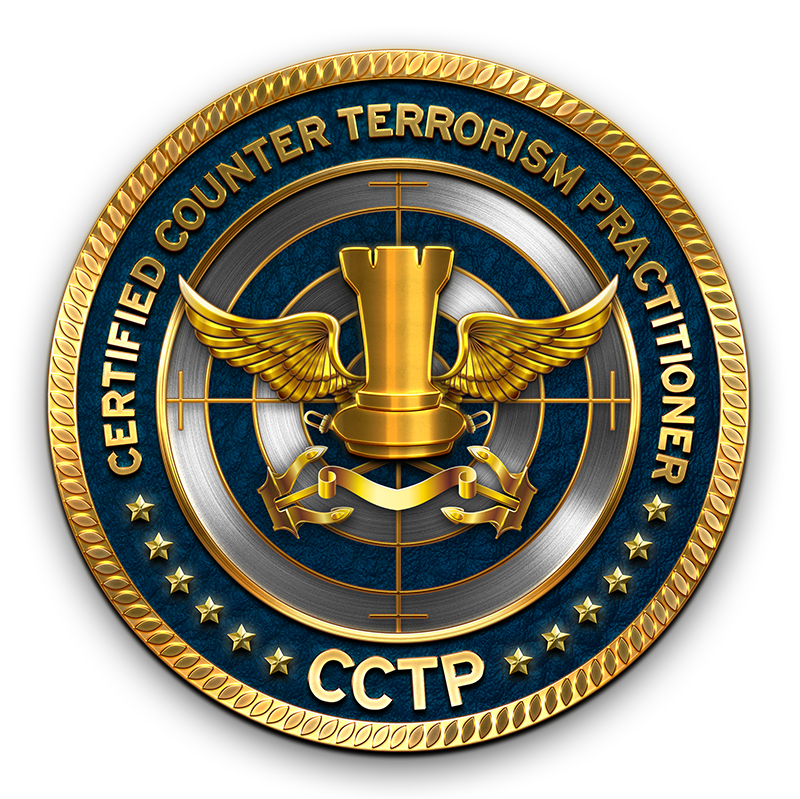
CCTP Certified Counter Terrorism Practitioner
CCTP is a professional development program and a CREDENTIAL which provides the demonstrable proof of knowledge and expertise in terrorism prevention, detection and deterrence. The credential will be awarded to the eligible candidates who have successfully passed the examination, which assess the knowledge of 14 main areas of the counter terrorism field.

Council of International Investigators
The Council of International Investigators is a professional organization of over 400 privately owned security and investigative agencies located in 72 countries on all six continents. Our mission is to provide clients with a network of highly skilled professionals who offer effective solutions to complex problems. Each of our members is carefully vetted prior to acceptance for competence, skill set, professionalism, ethics, and integrity. We offer our members continuing education through seminars at meetings throughout the world, via our educational portal, and with our quarterly journal.

International Trademark Association (INTA)
The International Trademark Association (INTA) is the global association of brand owners and professionals dedicated to supporting trademarks and related intellectual property to foster consumer trust, economic growth, and innovation. Members include more than 7,200 corporations, law firms and universities from more than 191 countries, who benefit from the Association’s global trademark resources, policy advocacy, education, training, and international network. Founded in 1878, INTA is headquartered in New York City, with offices in Brussels, Santiago, Shanghai, Singapore, and Washington, D.C., with representatives in Geneva and New Delhi. www.inta.org

Tech Wire Asia
Tech Wire Asia is where technology, business, and culture converge. Part of the Hybrid, Tech Wire Asia is a content platform for innovators, entrepreneurs, business managers and change makers who are passionate about technology and turning ideas into solutions.
Compliance and Detection on the Blockchain
The decentralised nature of cryptocurrencies which makes it ideal for cross-border ransactions also make it the perfect mode of money transfer for criminals. However, by applying network analysis and behavioural sciences it is possible to detect suspicious transactions and detect illegal use of cryptocurrency. With increasing adoption and AML Regulations, learn how new age compliance tools are being used for AML/CFT protection on the blockchain.